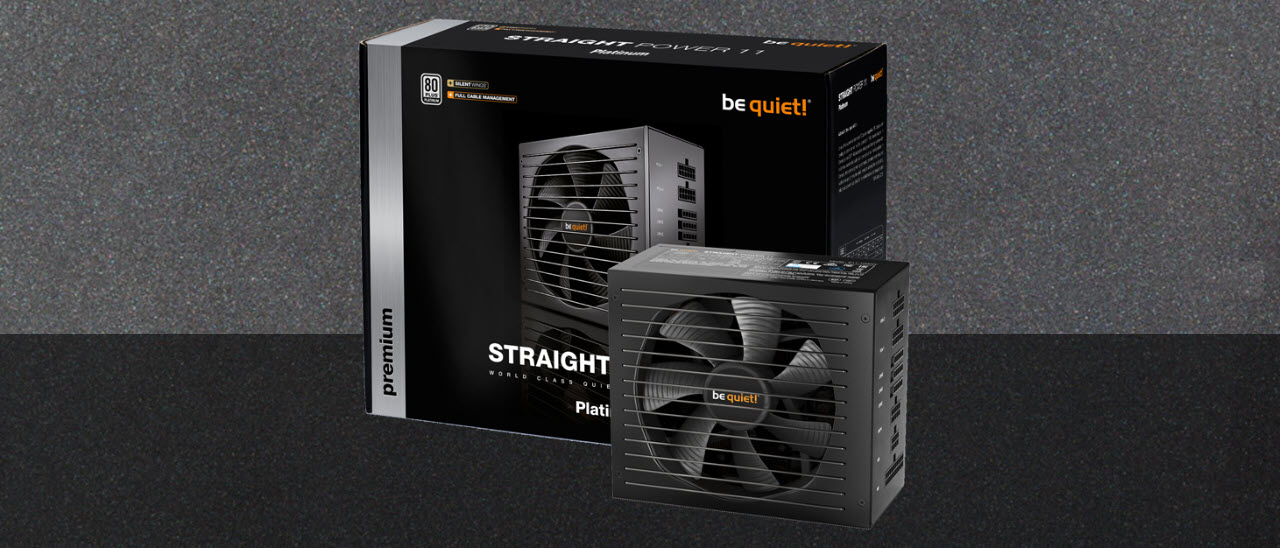Tom's Hardware Verdict
The be quiet! Straight Power 11 Platinum with 650W max power is silent and uses quality parts. These features are not enough, though, to allow it to meet the competition effectively, and its price in the US market is stiff.
Pros
- +
Full power at 47 degrees Celsius
- +
Silent operation
- +
Efficient
- +
Quality components
- +
Long hold-up time
- +
Fully modular
- +
Compatible with the alternative sleep mode
- +
Adequate distance between the peripheral connectors
Cons
- -
Expensive
- -
The protection features are not configured correctly
- -
Not so high overall performance
- -
One of the EPS cables has two of these connectors
- -
High Vampire Power
- -
Lower than 70% efficiency with 2% load
- -
Mediocre soldering quality
Why you can trust Tom's Hardware
The be quiet! Straight Power 11 Platinum with 650W capacity (E11-PT-650) offers dead silent operation and has compact dimensions. Are those two features enough, though, to match opponents like the formidable Corsair RM650x and the Seasonic Focus Plus Platinum 650W? Although the RM650x has a lower efficiency rating in the 80 PLUS scheme, still its overall performance is notably higher than the E11-PT-650, and the same goes, of course, for the Seasonic model. Given the high prices of all be quiet! products in the US, there is no reason to select the E11-PT-650 over the two products mentioned above. It's a solid choice but not one of the best power supplies.
The new Straight Power 11 Platinum line from be quiet! is made by FSP, like the previous one, and uses a new platform featuring a full-bridge topology. The Straight Power 11 Platinum models start from 550W and go up to 1200W, for users that need more power. The older, Gold, line starts from 450W and reaches up to 1000W. Besides the different capacities, the number of EPS connectors has also been increased in the new models. Only the E11-PT-550 comes with a single EPS, with all the other models featuring two, except the 650W and 750W units, which have three EPS connectors! There is no need, of course, for three EPS in any power supply. The E11-PT-750W and 650W might come with three EPS connectors, but only two of them can be used at the same time, with both of them hosted on the same cable. You can read more on this below, in the cable and connectors description.
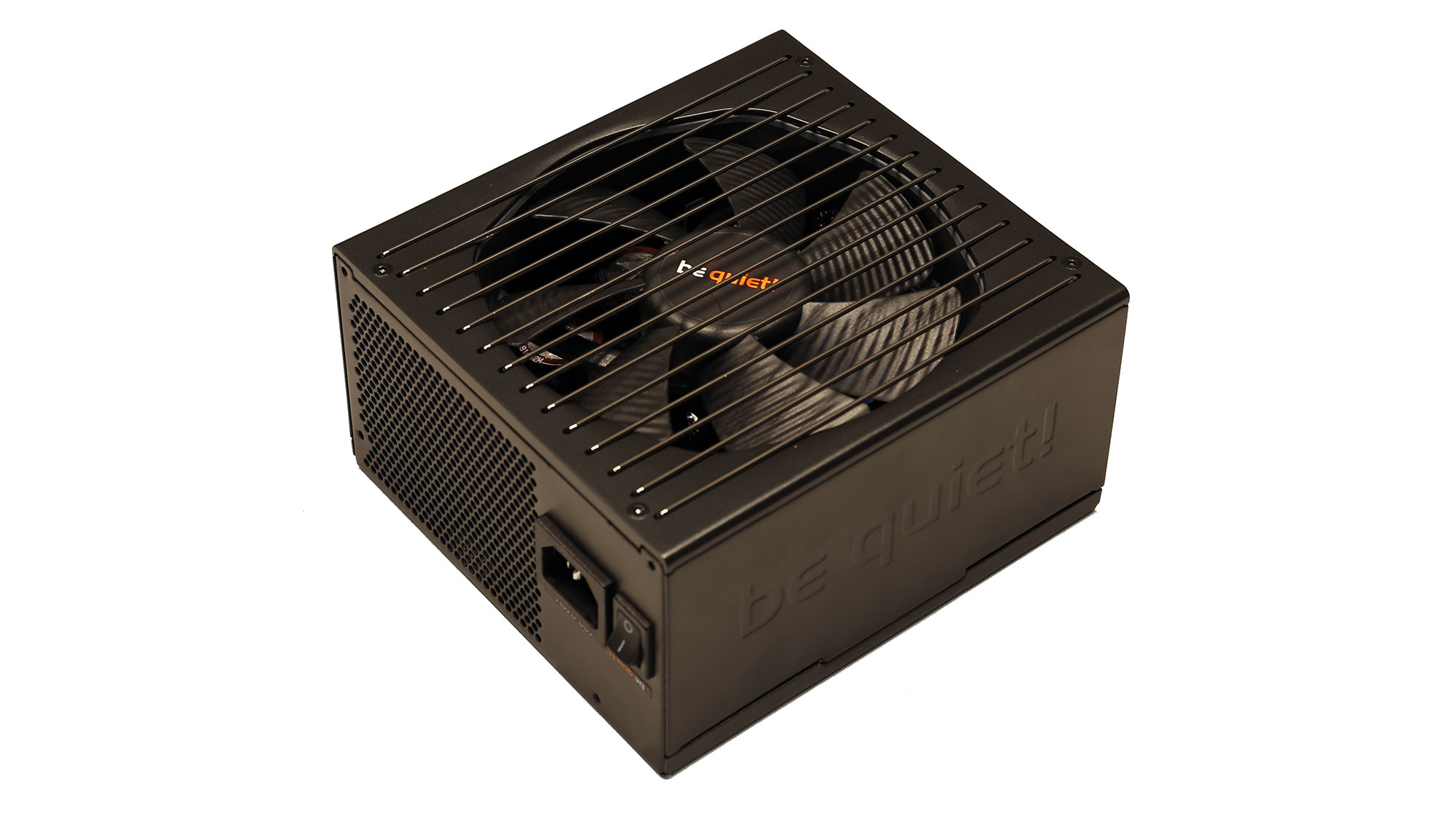
Product Photos
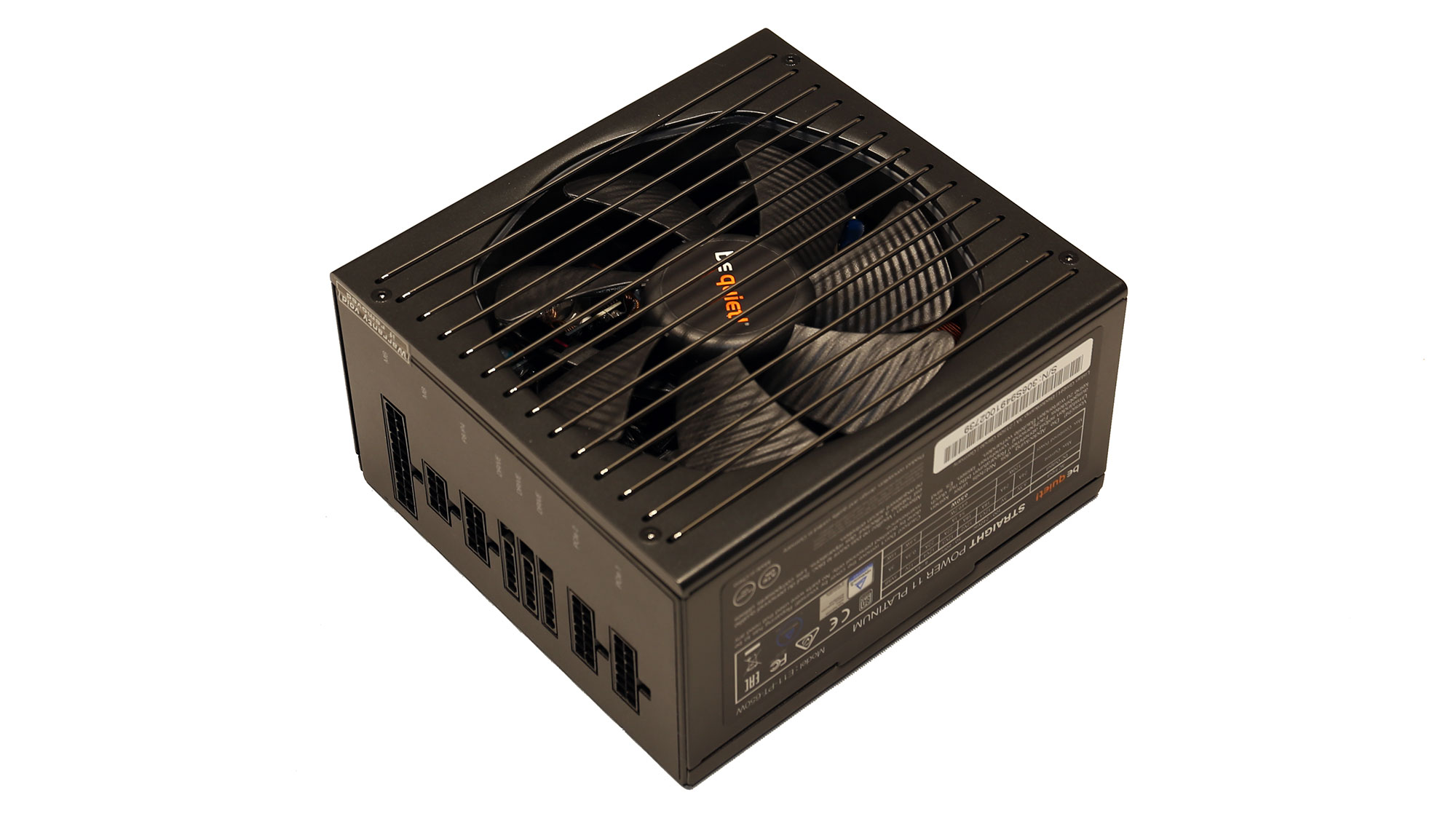
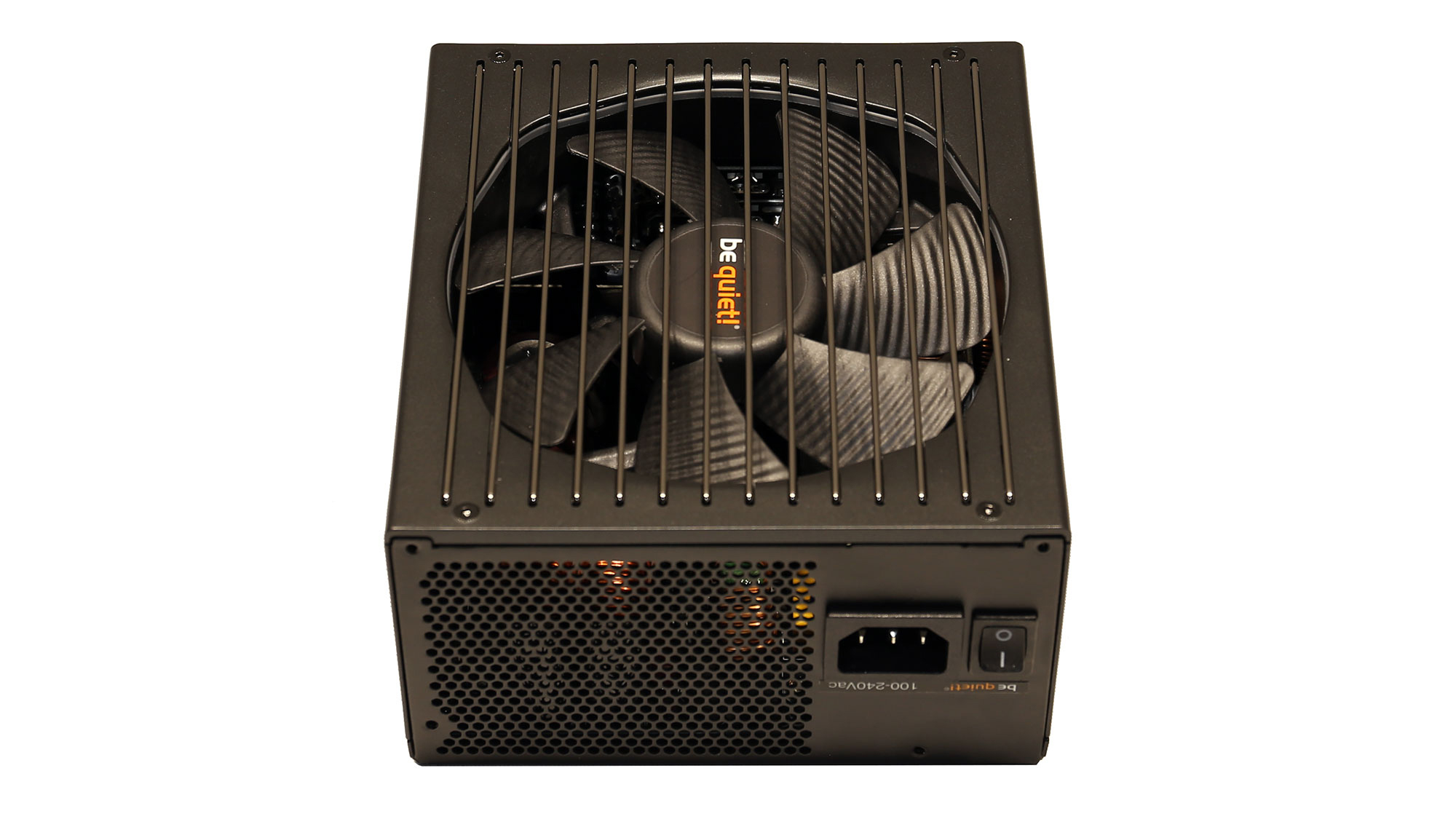
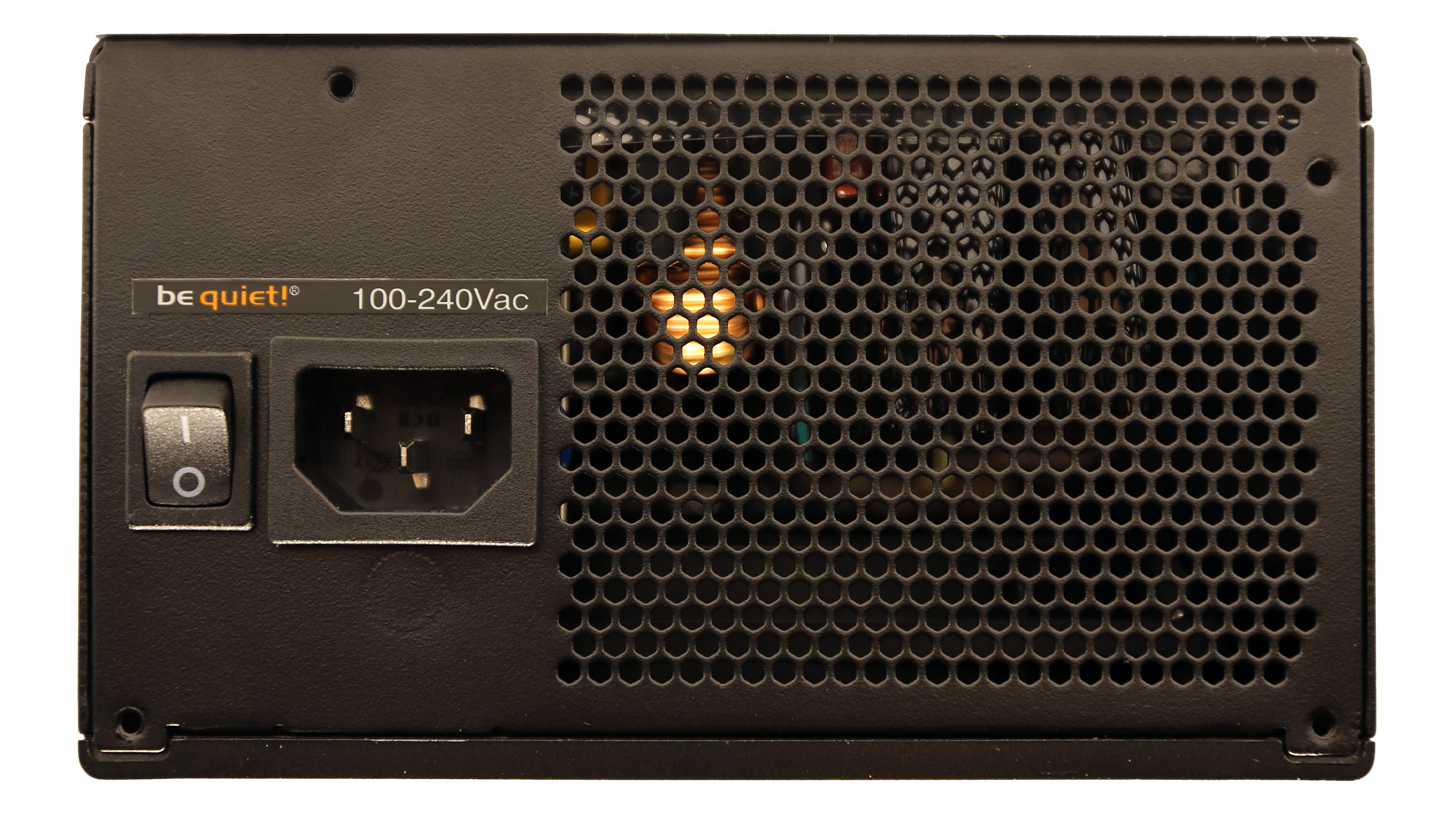
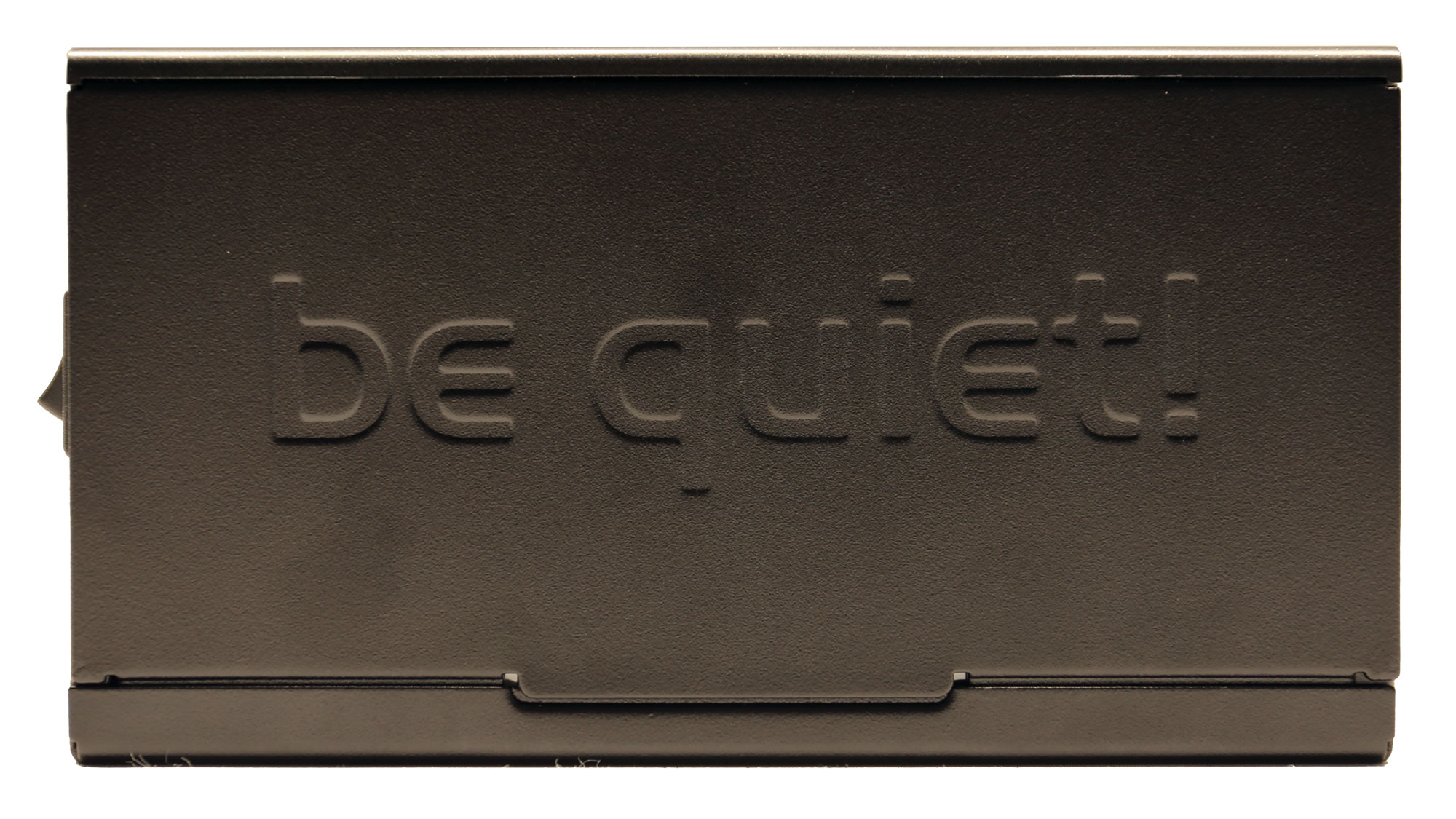
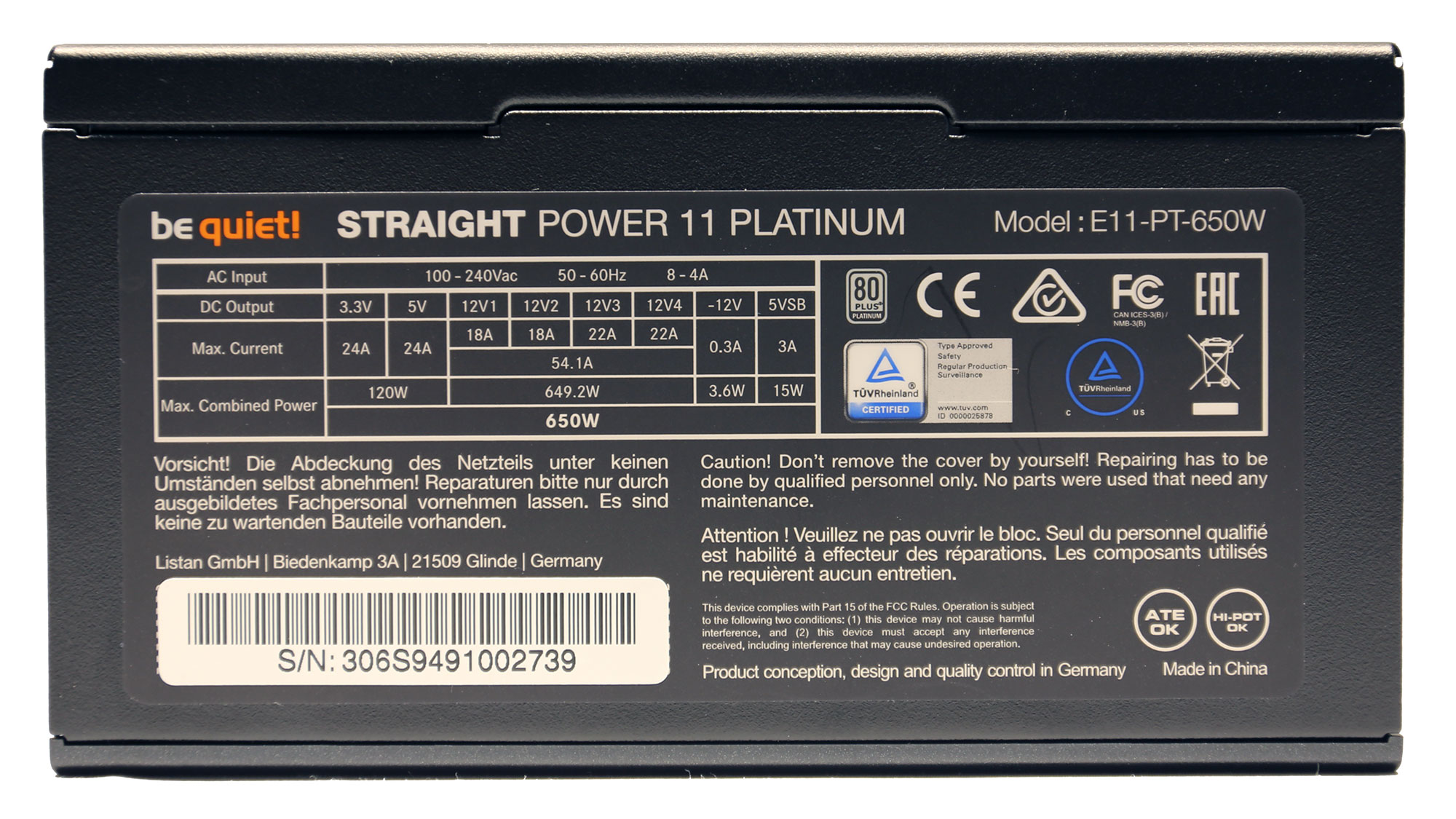
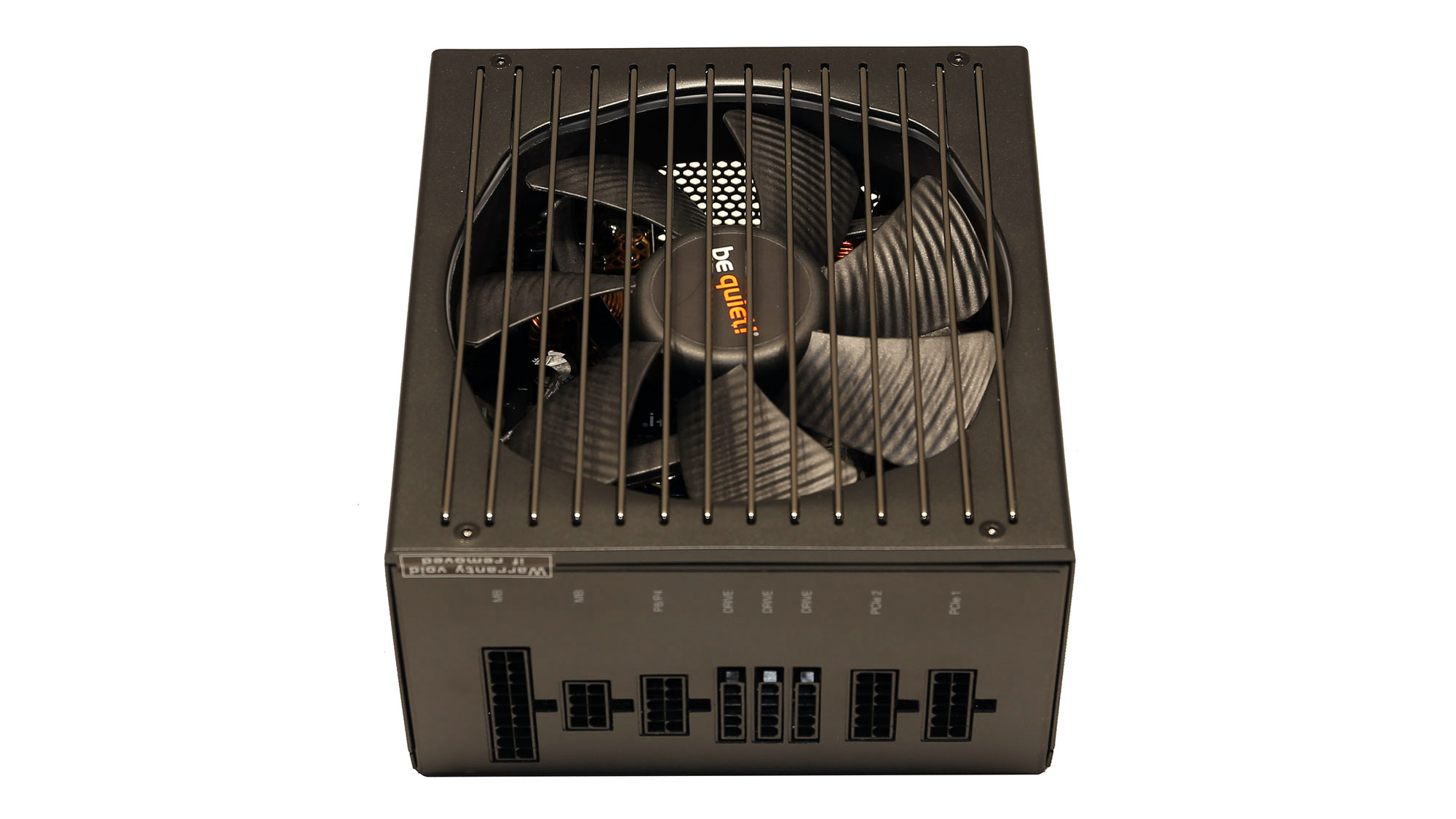
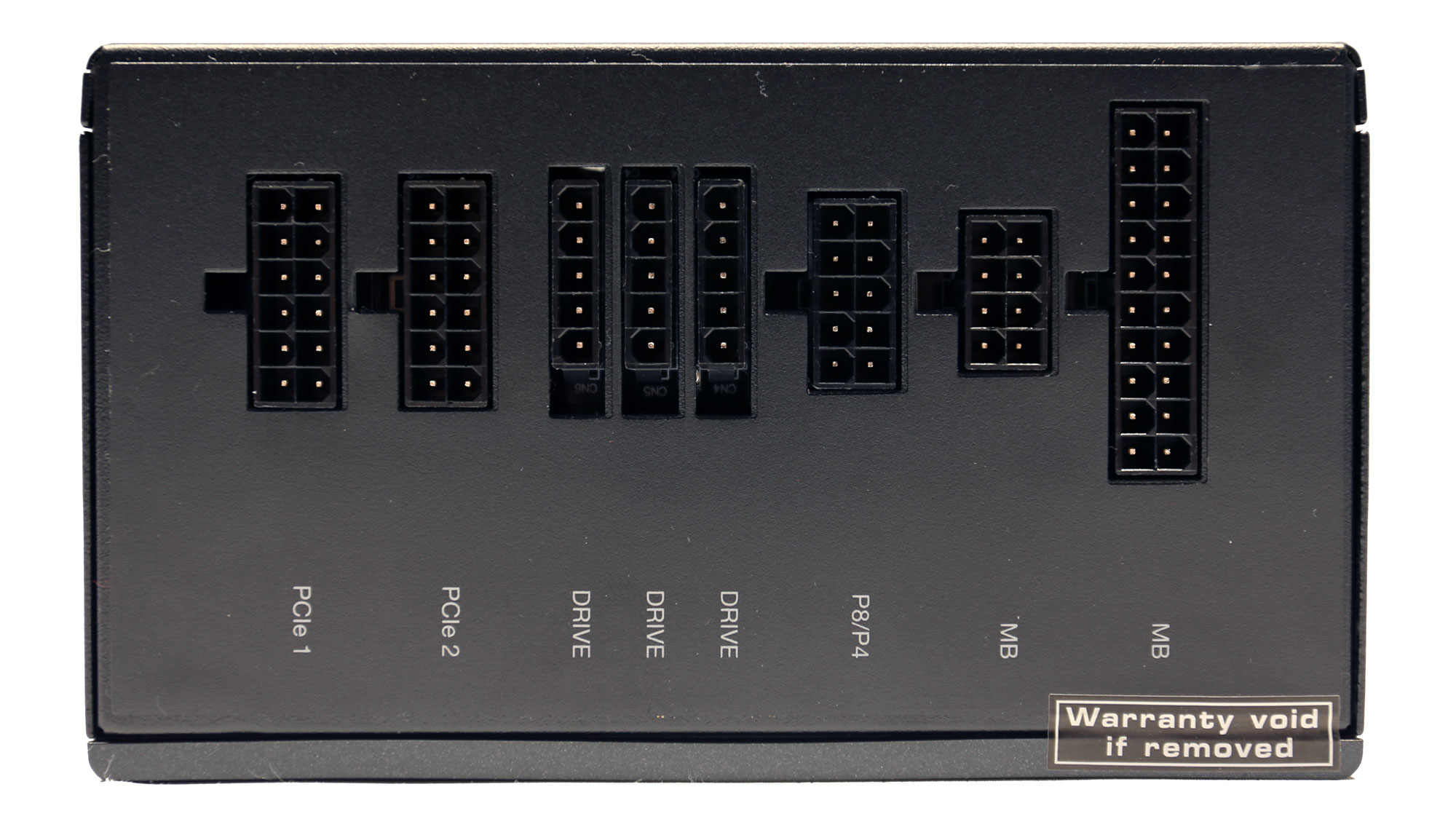
The E11-PT-650W is the second smallest member of the family. Besides a fully modular cable design, it also features a Silent Wings 3 fan, which is driven by a relaxed fan speed profile. All be quiet! products are known for their quiet operation, and this PSU is not an exception. Finally, for the internals, FSP used high-quality components, and this is why the price of this product is increased, especially in the US market.
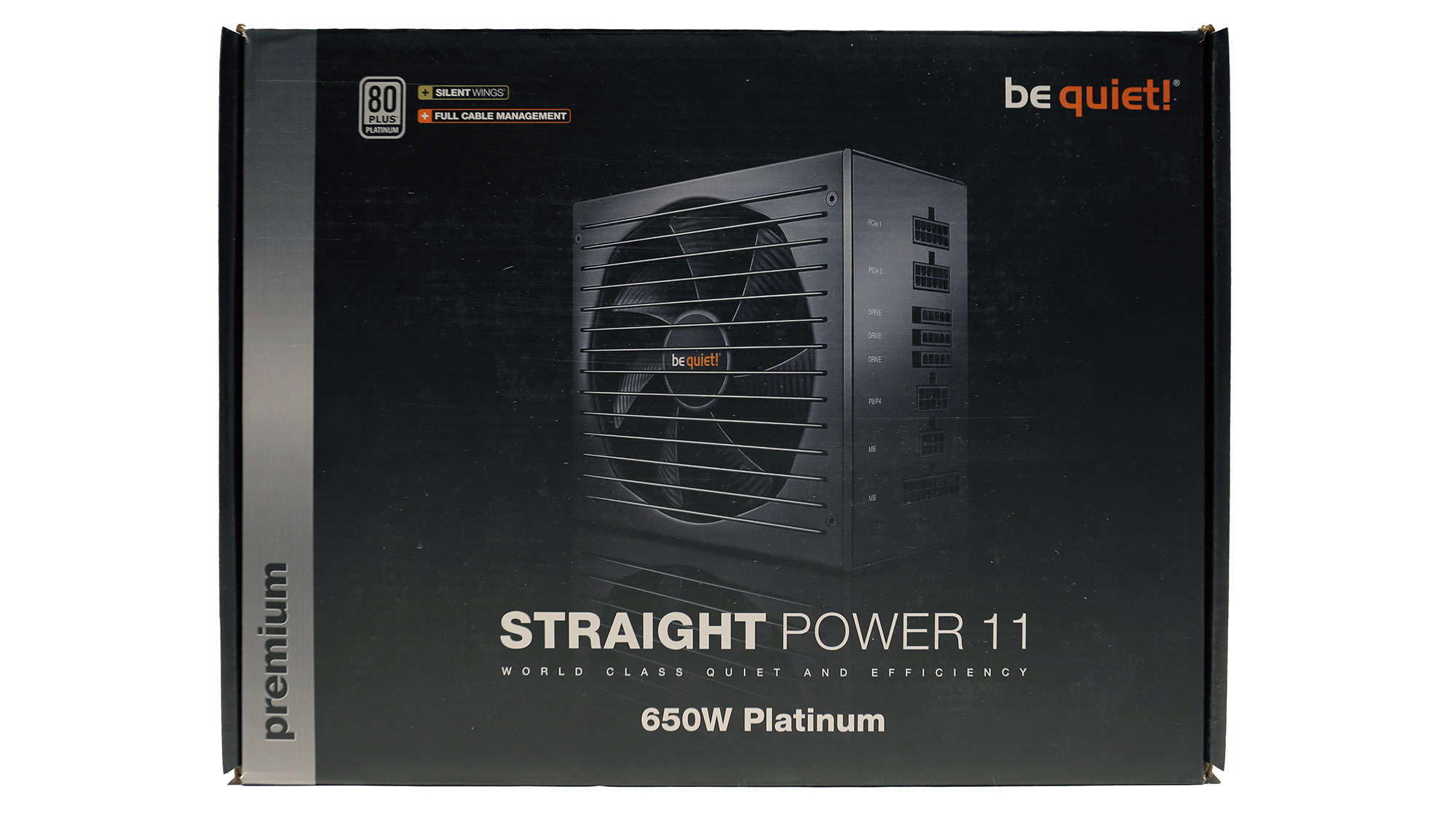
Product Photos
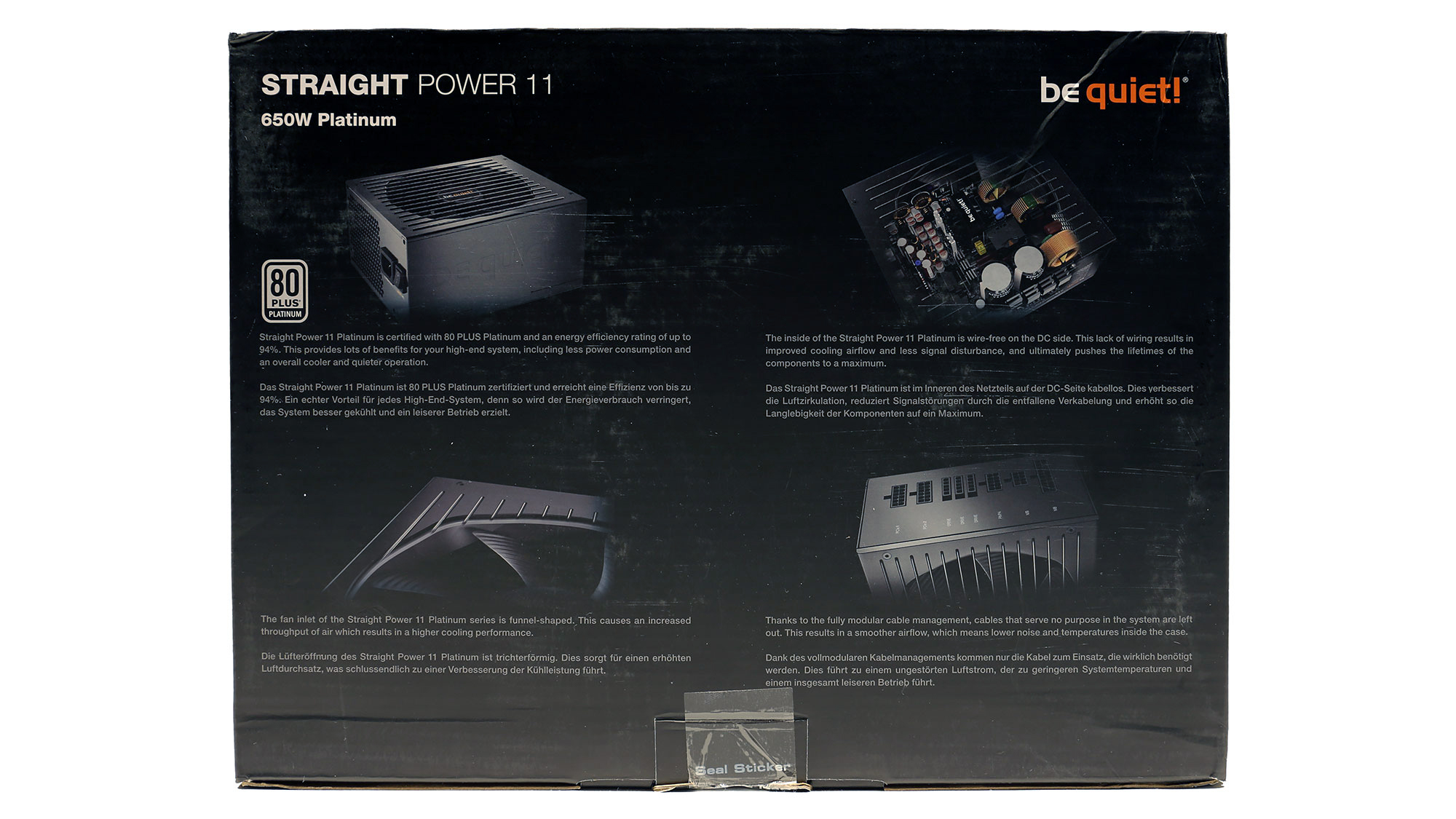
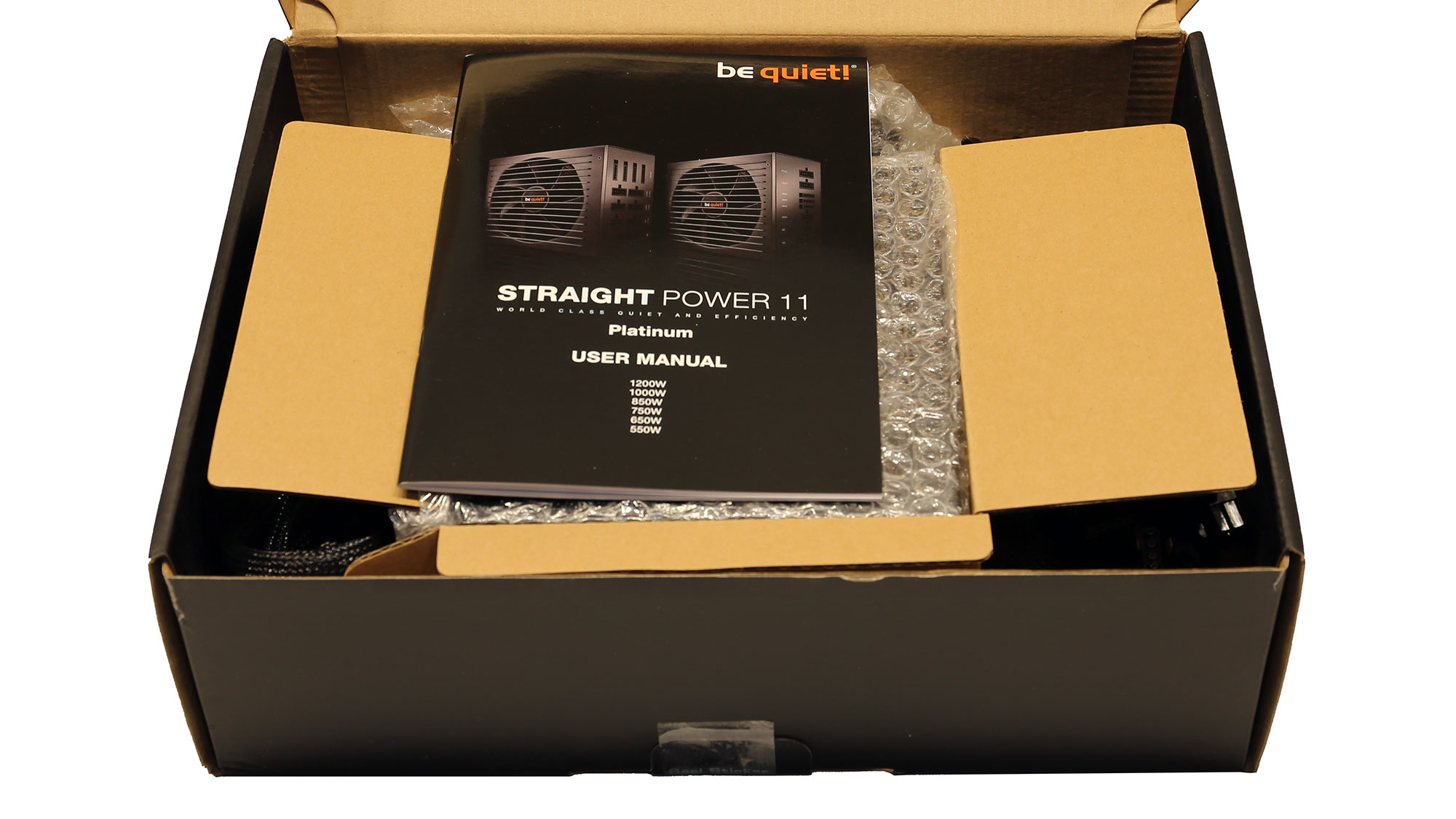
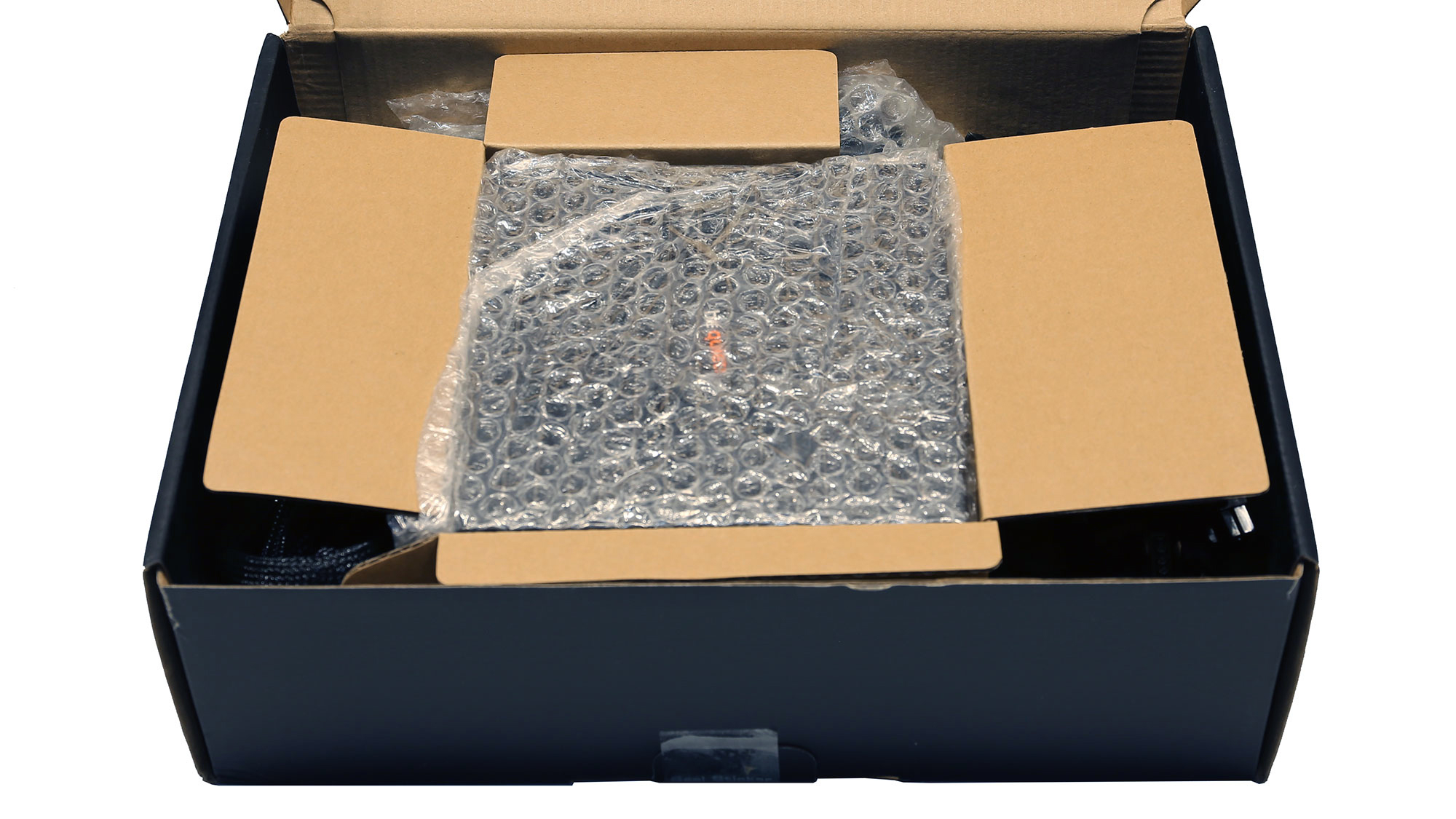
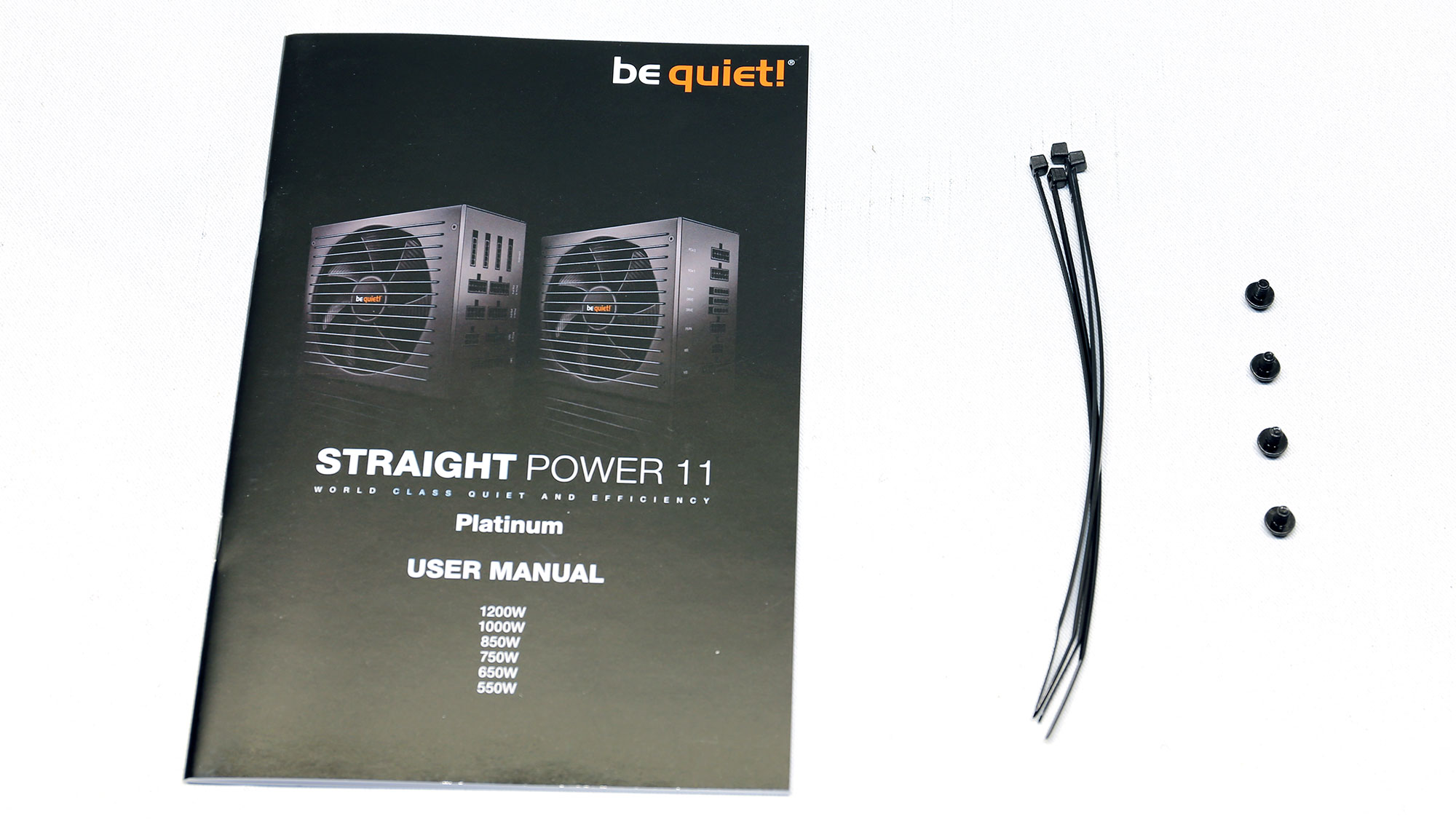
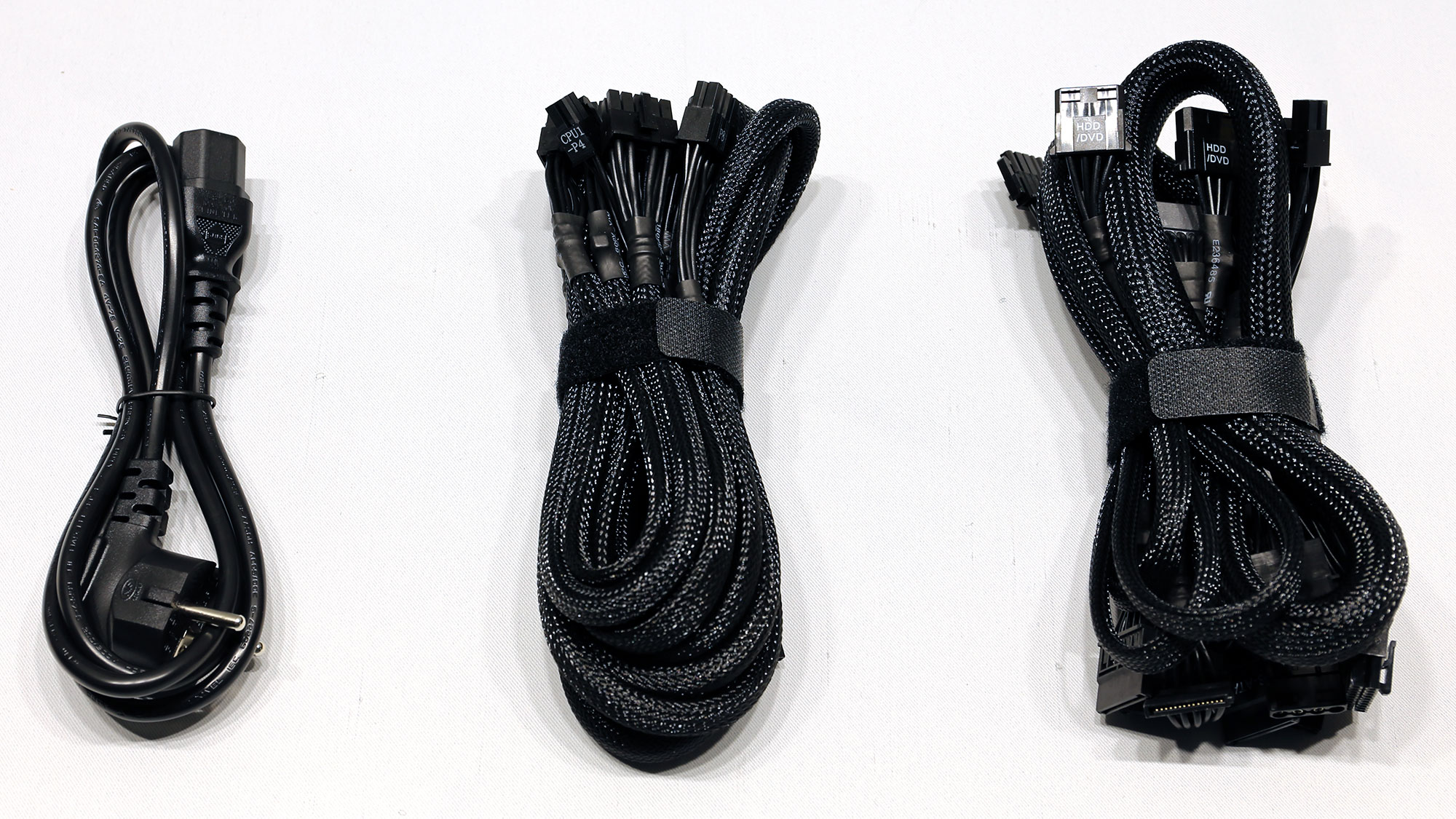
Specifications
|
Manufacturer (OEM) |
FSP |
|
Max. DC Output |
650W |
|
Efficiency |
80 PLUS Platinum, *ETA-A (88-91%) |
|
Noise |
*LAMBDA-A+ (15-20 dB[A]) |
|
Modular |
✓ (Fully) |
|
Intel C6/C7 Power State Support |
✓ |
|
Operating Temperature (Continuous Full Load) |
0 - 40°C |
|
Over Voltage Protection |
✓ |
|
Under Voltage Protection |
✓ |
|
Over Power Protection |
✓ |
|
Over Current (+12V) Protection |
✓ |
|
Over Temperature Protection |
✓ |
|
Short Circuit Protection |
✓ |
|
Surge Protection |
✓ |
|
Inrush Current Protection |
✓ |
|
Fan Failure Protection |
✗ |
|
No Load Operation |
✓ |
|
Cooling |
135mm Fluid Dynamic Bearing Fan (BQSIW3-13525-HF) |
|
Semi-Passive Operation |
✓ |
|
Dimensions (W x H x D) |
150 x 85 x 155mm |
|
Weight |
1.65 kg (3.64 lb) |
|
Form Factor |
ATX12V v2.4, EPS 2.92 |
|
Warranty |
5 Years |
Power Specifications
| Rail | 3.3V | 5V | 12V1 | 12V2 | 12V3 | 12V4 | 5VSB | -12V |
| Max. Power | Amps | 24 | 24 | 18 | 18 | 22 | 22 | 3 |
| 54.1 | ||||||||
| Watts | 120 | 649.2 | 15 | 3.6 | ||||
| Total Max. Power (W) | 650 |
Power Distribution
| 12V1 | ATX, Peripheral |
| 12V2 | EPS |
| 12V3 | PCIe1 |
| 12V4 | PCIe2 |
The power distribution is good, because the EPS and PCIe connectors are powered by different rails.
Cables & Connectors
| Description | Cable Count | Connector Count (Total) | Gauge | In Cable Capacitors |
|---|---|---|---|---|
| ATX connector 20+4 pin (600mm) | 1 | 1 | 16-22AWG | No |
| 4+4 pin EPS12V (700mm) | 1 | 1 | 16AWG | No |
| 4+4 pin EPS12V (700mm) / 8 pin EPS12V (700mm) | 1 | 2 | 18AWG | No |
| 2x 6+2 pin PCIe (600mm) | 2 | 4 | 18AWG | No |
| SATA (550mm+150mm+150mm+150mm) | 1 | 4 | 18AWG | No |
| SATA (550mm+150mm+150mm) / 4-pin Molex (+150mm) | 1 | 3 / 1 | 18AWG | No |
| SATA (550mm+150mm) / 4-pin Molex (+150mm+150mm) | 1 | 2 / 2 | 18AWG | No |
| FDD Adapter (150mm) | 1 | 1 | 22AWG | No |
| AC Power Cord (1360mm) - C13 coupler | 1 | 1 | 18AWG | - |
Since the PSU only has one EPS socket, and be quiet! wanted to equip it with a pair of those connectors, it comes with two different EPS cables. The first hosts a single connector while the second has two of these connectors. The problem is that you cannot fully exploit two of those connectors with the same cable, especially if you use 18AWG gauges. Each EPS can draw up to 336W, so a pair of them can easily damage the corresponding socket on the modular panel, along with the connector on the PSU side. Nevertheless, be quiet! chose to go on with this weird cable because the PSU has four +12V rails, so with the proper OCP setting on the corresponding rail, it is safe to use a pair of EPS on the same cable.
All cables are long enough, and the number of peripheral connectors is satisfactory. Finally, the distance between the SATA and the 4-pin Molex is adequate, at 150mm.
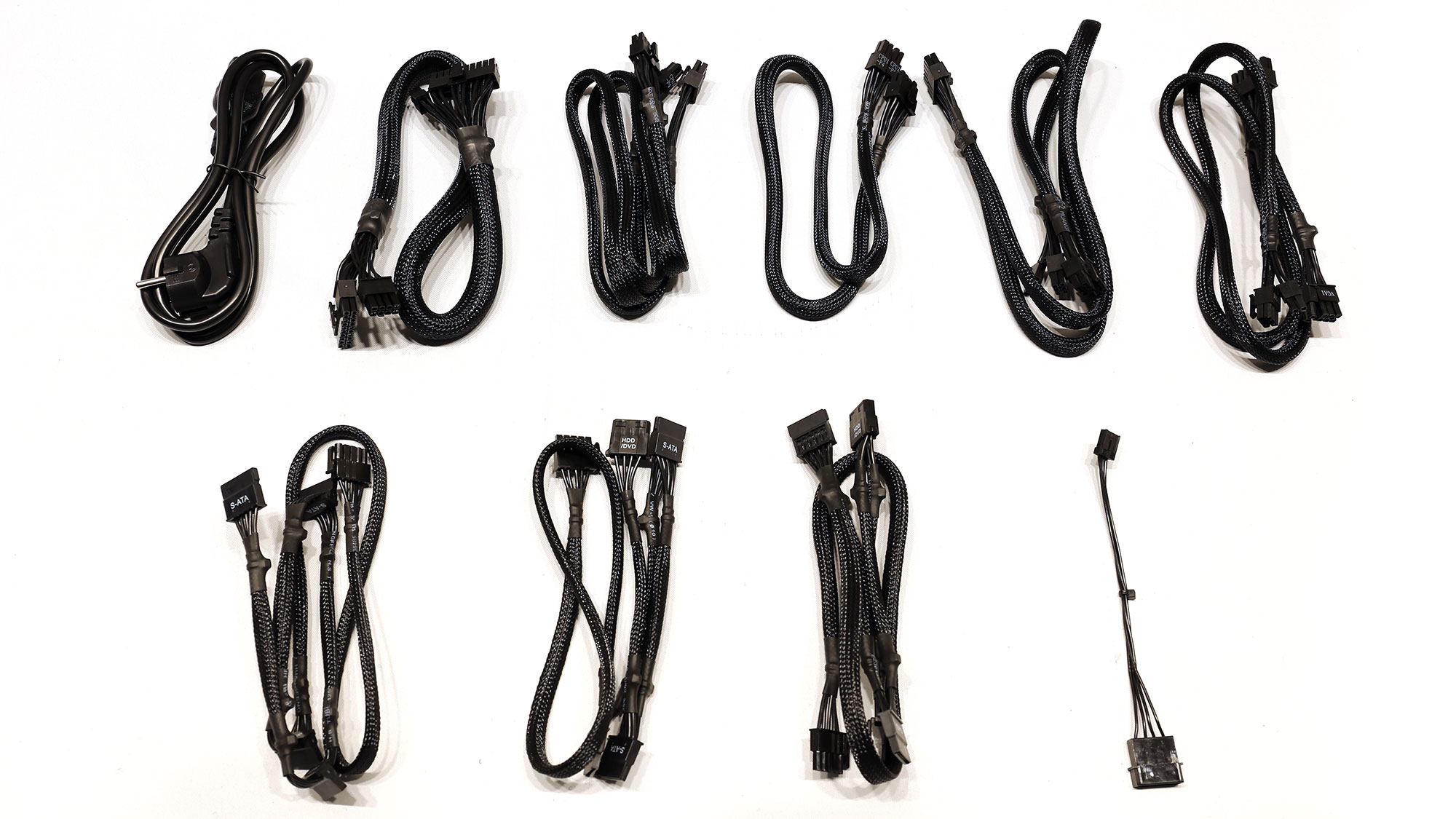
Cable Photos
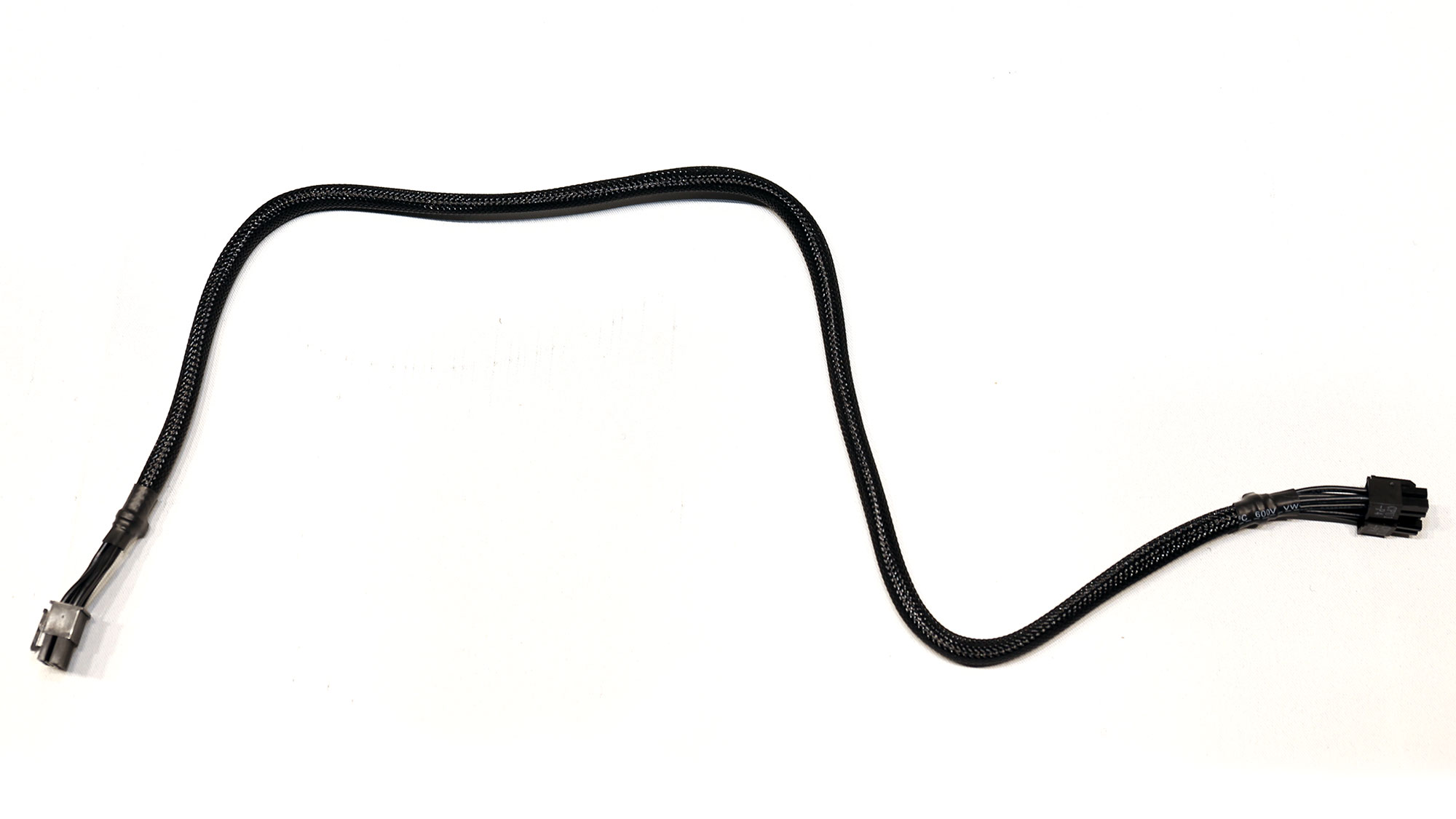
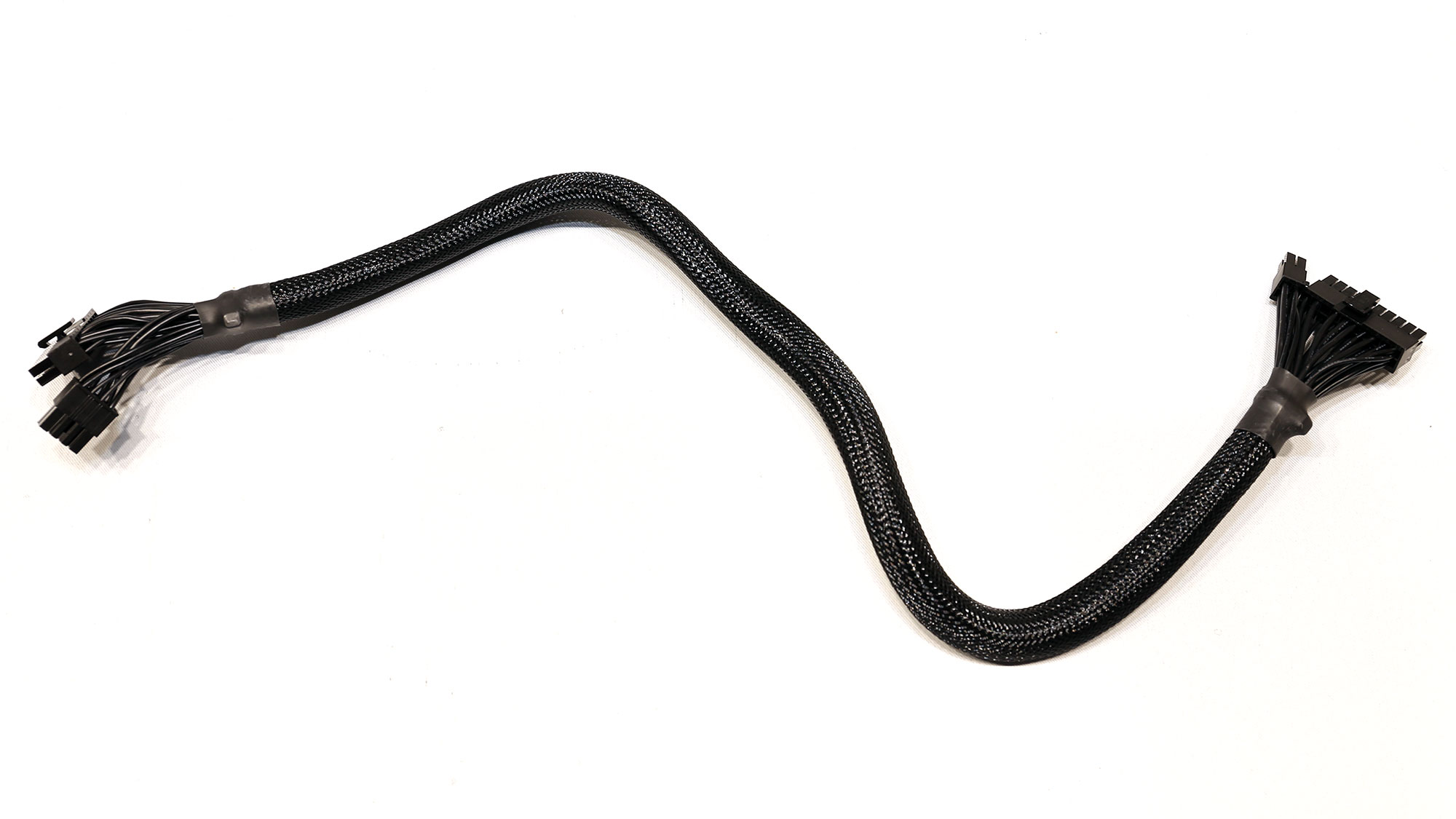
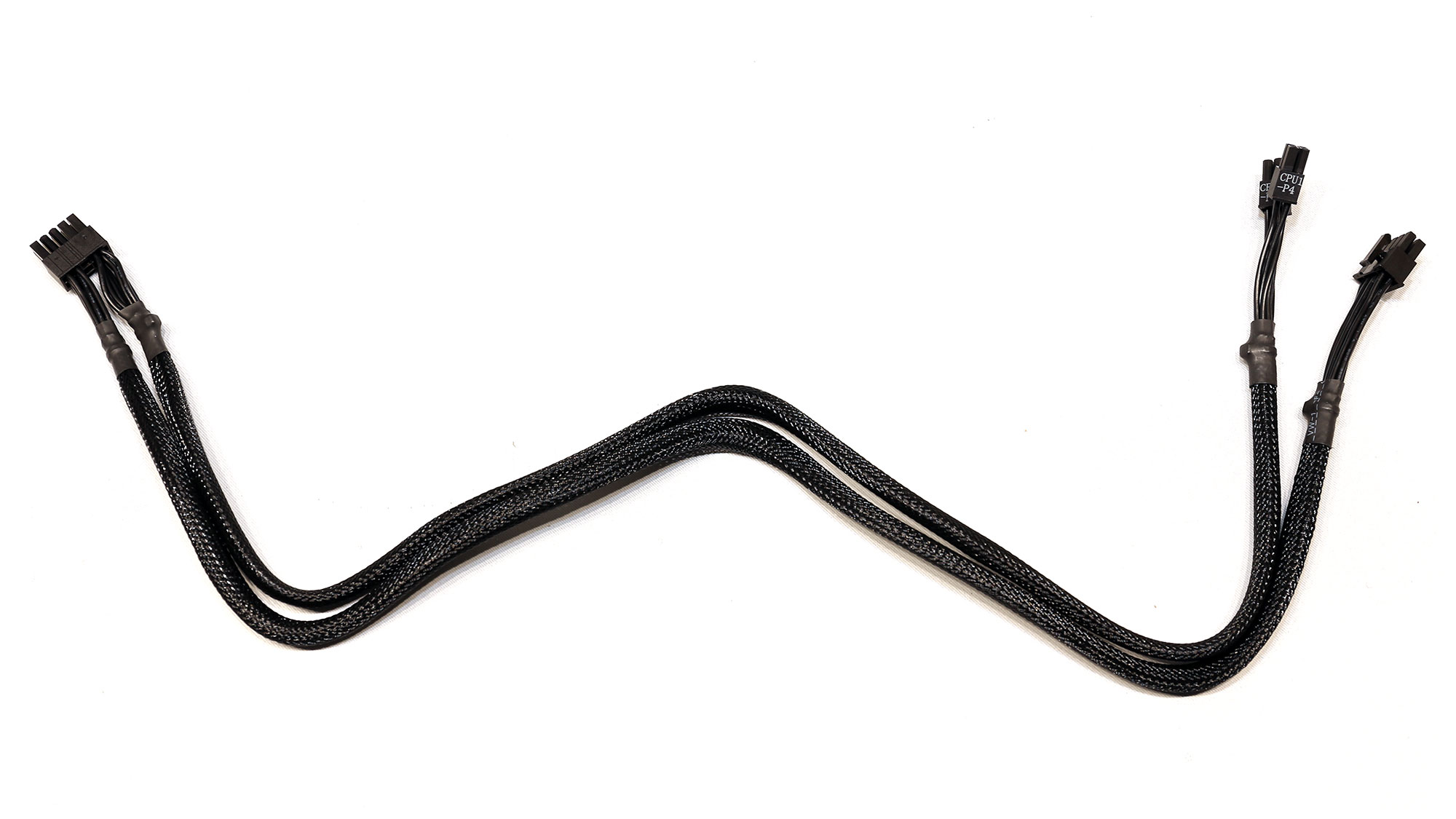
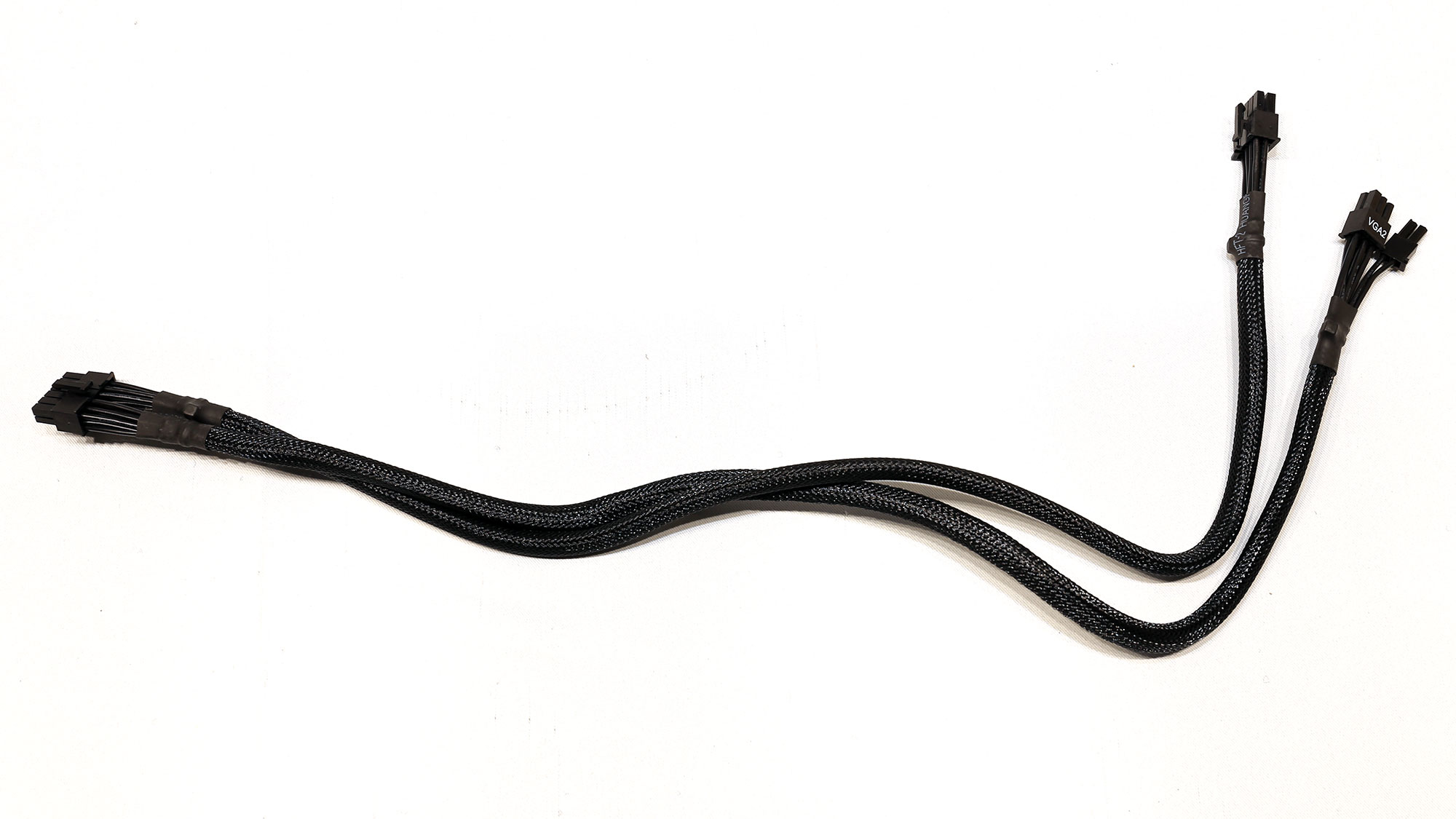
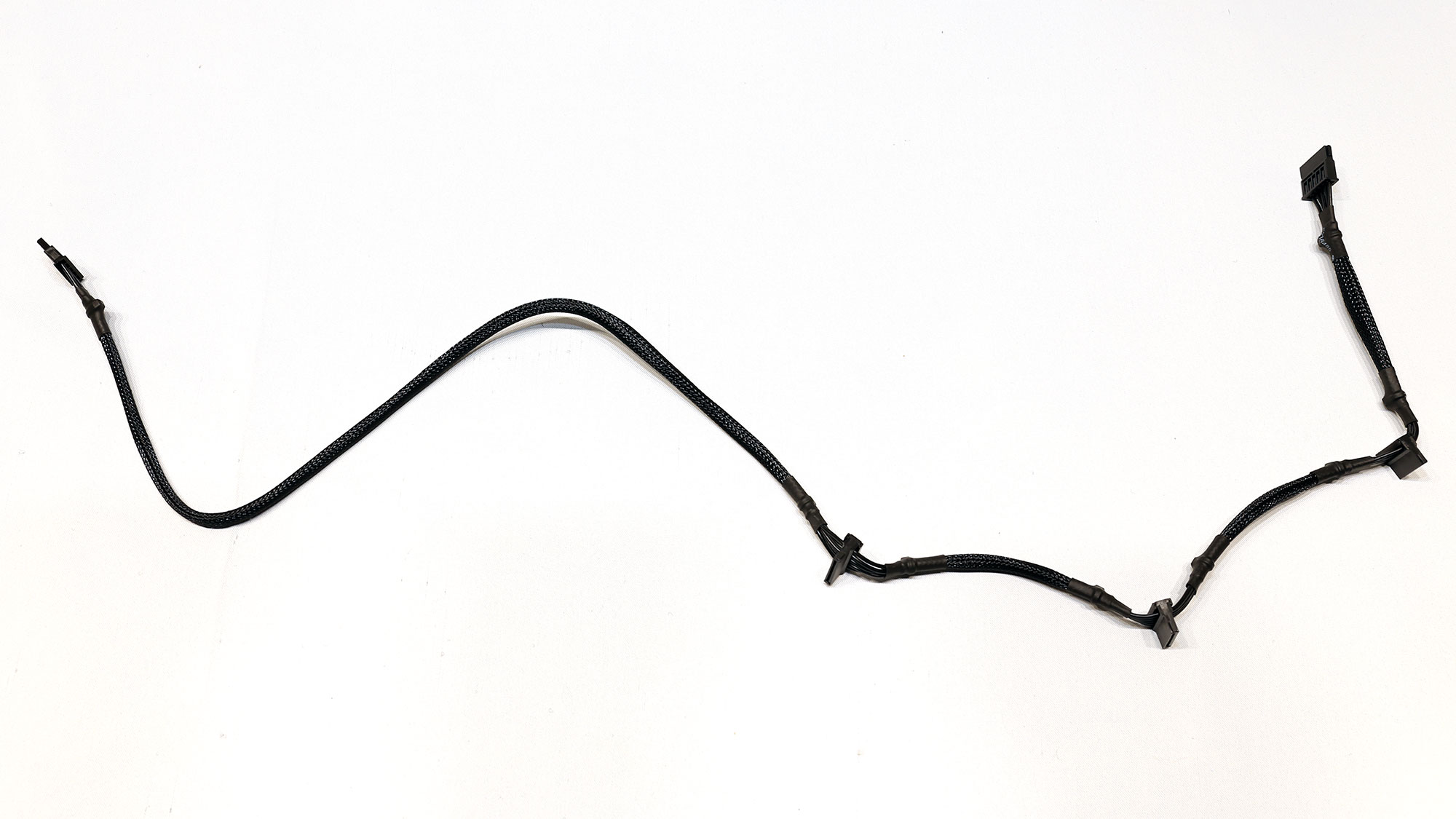
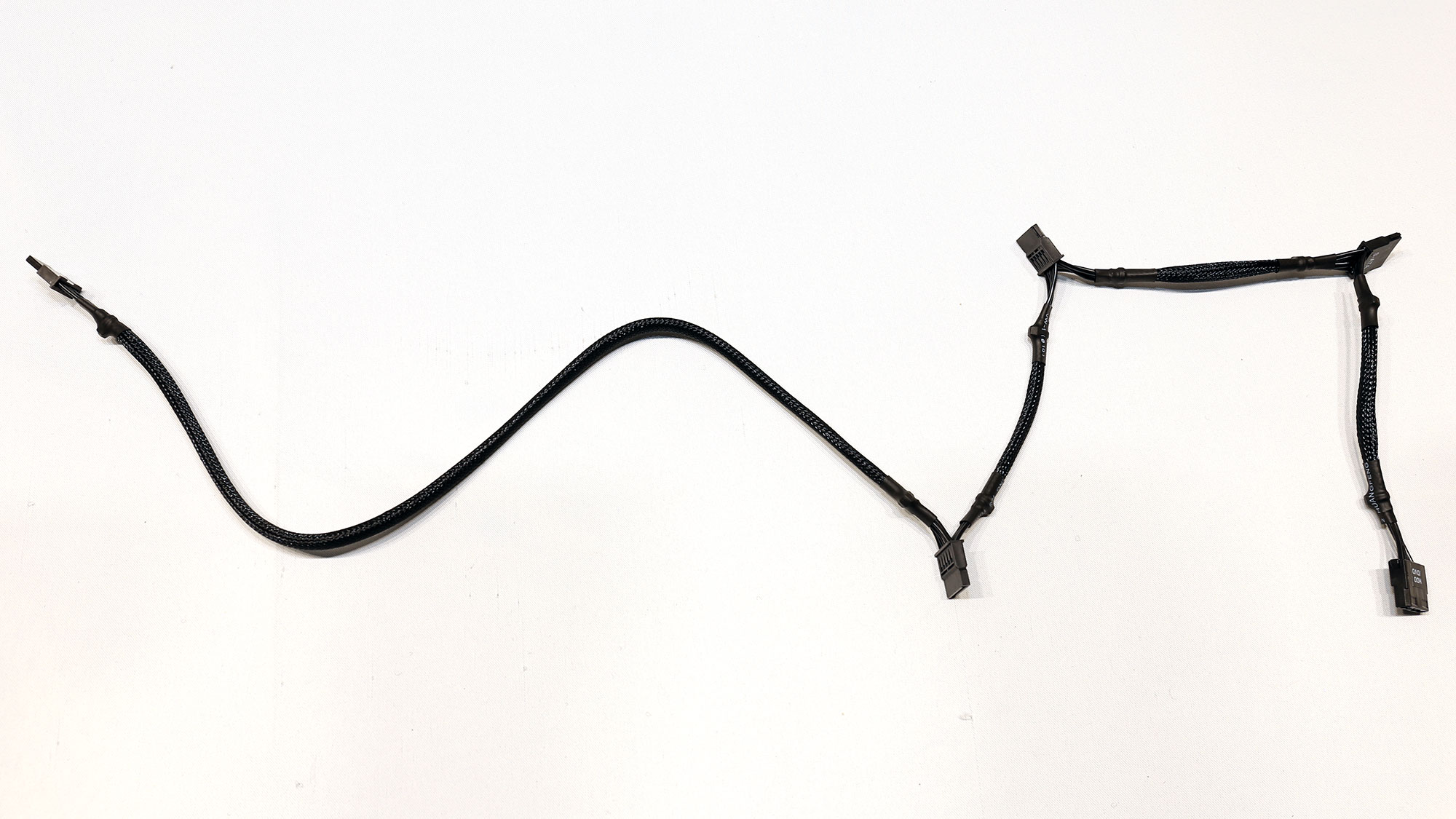
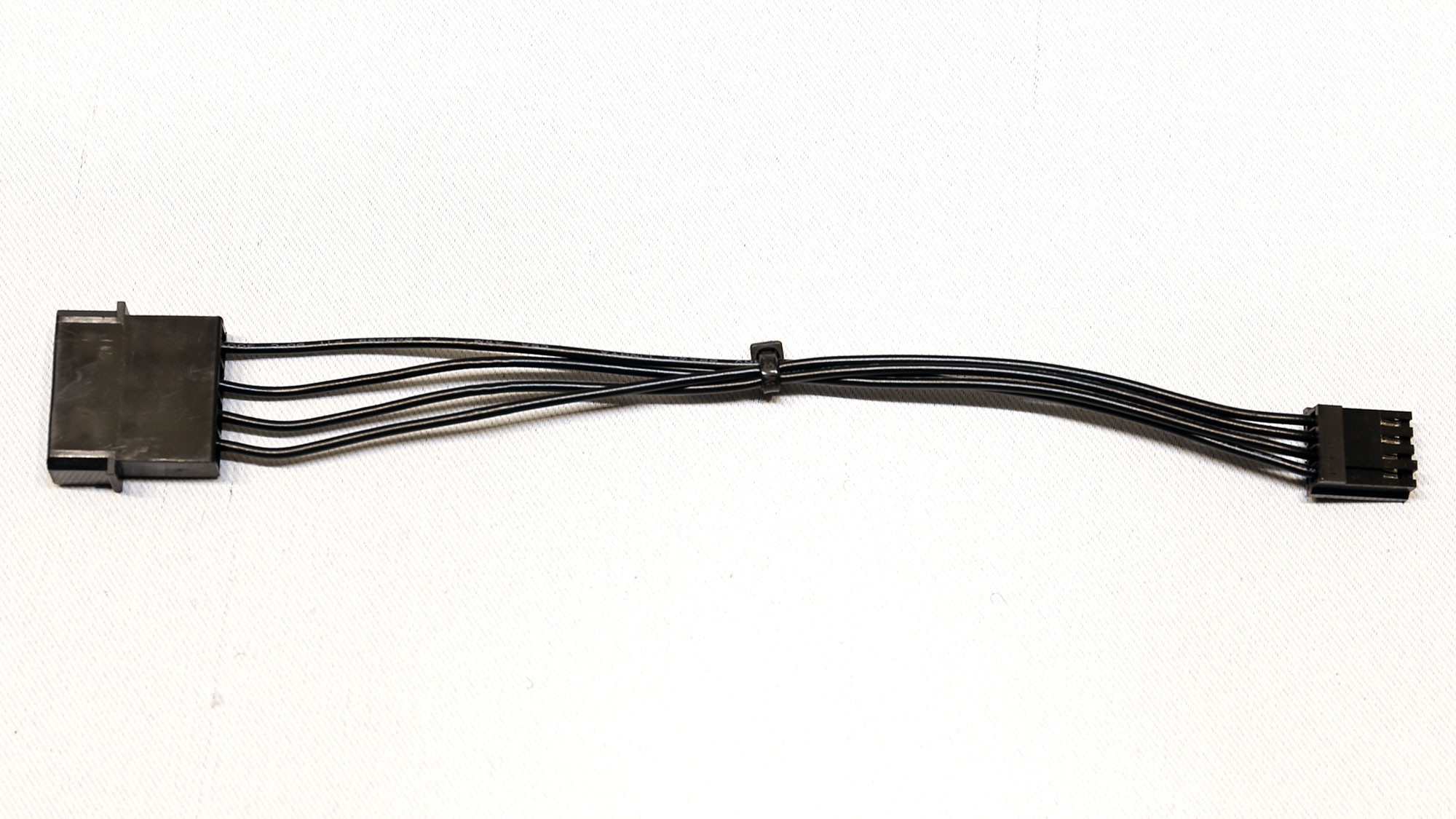
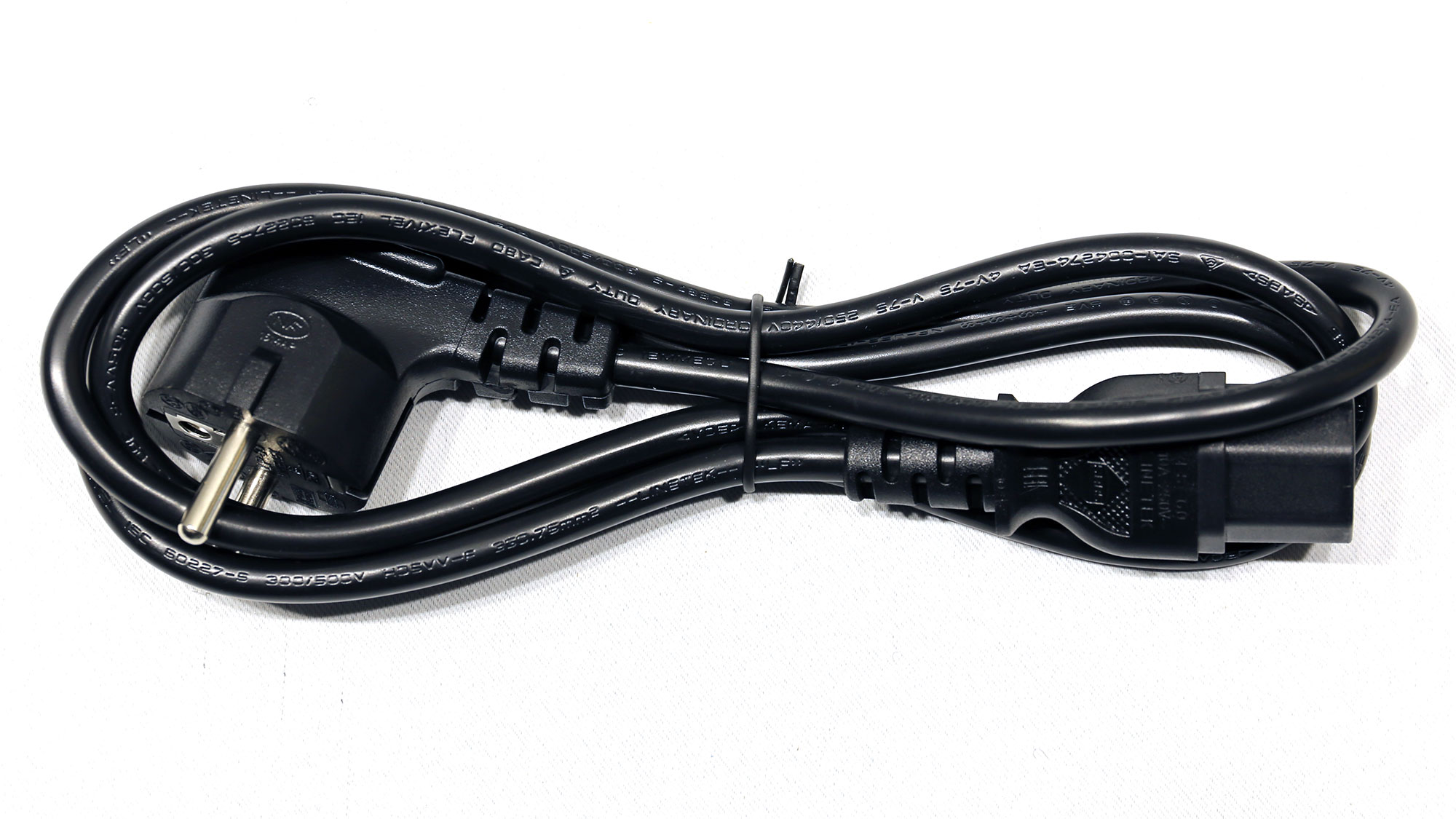
Component Analysis
We strongly encourage you to have a look at our PSUs 101 article, which provides valuable information about PSUs and their operation, allowing you to better understand the components we're about to discuss.
Get Tom's Hardware's best news and in-depth reviews, straight to your inbox.
| General Data | - |
| Manufacturer (OEM) | FSP |
| PCB Type | Double Sided |
| Primary Side | - |
| Transient Filter | 5x Y caps, 2x X caps, 2x CM chokes, 1x MOV |
| Inrush Protection | NTC Thermistor (SCK-056) & Relay |
| Bridge Rectifier(s) | 1x |
| APFC MOSFETs | 2x ROHM R6030KNX (600V, 30A, 0.13Ohm) |
| APFC Boost Diode | 1x STMicroelectronics STPSC6H065 (650V, 6A @ 110°C) |
| Hold-up Cap(s) | 1x Nippon Chemi-Con (420V, 270uF, 2,000h @ 105°C, KMQ) & 1x Nippon Chemi-Con (450V, 180uF, 2,000h @ 105°C, KMR) |
| Main Switchers | 4x ROHM R6020KNX (600V, 20A, 0.196Ohm) |
|
IC Driver |
2x Silicon Labs Si8233BD |
| APFC Controller | Champion CM6500UNX |
| Resonant Controller | Champion CM6901X |
| Topology | Primary side: Full-Bridge & LLC converter Secondary side: Synchronous Rectification & DC-DC converters |
| Secondary Side | - |
| +12V MOSFETs | 4x Infineon BSC010N04LS (40V, 100A @ 100°C, 1mOhm) |
| 5V & 3.3V | DC-DC Converters: 8x Advanced Power AP3R303GMT (30V, 25A @ 70°C, 3.3mOhm) PWM Controllers: 2x ANPEC APW7164 |
| Filtering Capacitors | Electrolytic: 4x Nippon Chemi-Con (4-10,000h @ 105°C, KY), 2x Nippon Chemi-Con (5-6,000h @ 105°C, KZH), 5x Rubycon (3-6,000h @ 105°C, YXG) Polymer: 4x FPCAP, 18x United Chemi-Con |
| Supervisor IC | Weltrend WT7527 (OCP, OVP, UVP, SCP, PG) |
| Fan Model | be quite! BQ SIW3-13525-HF (135mm, 12V, 0.56A, Fluid Dynamic Bearing Fan) |
| 5VSB Circuit | - |
| Rectifier | 1x CET CEF03N8 FET (800V, 2A @ 100°C, 4.8Ohm) |
| Standby PWM Controller | Leadtrend LD7750R |
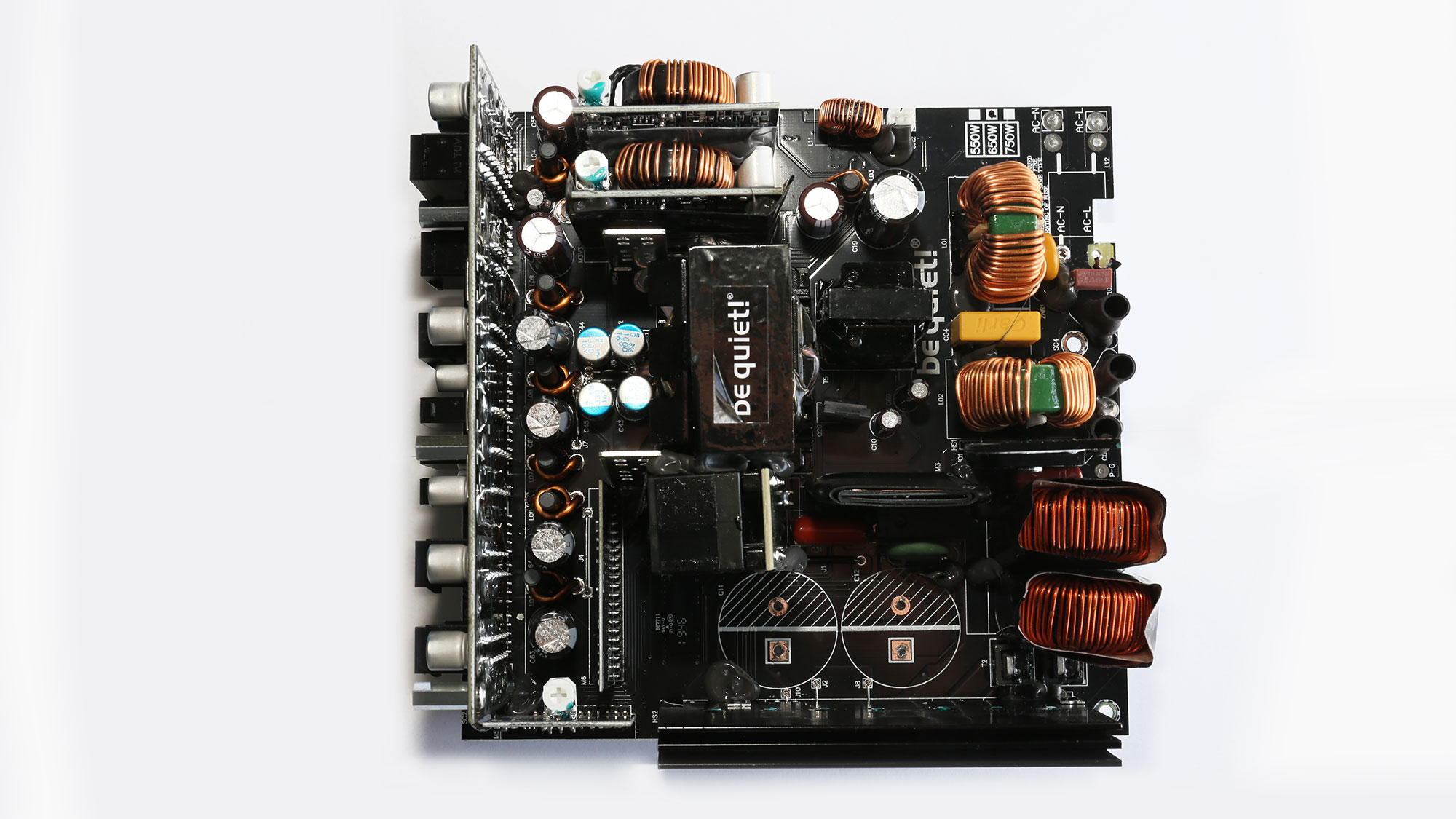
Overall Photos
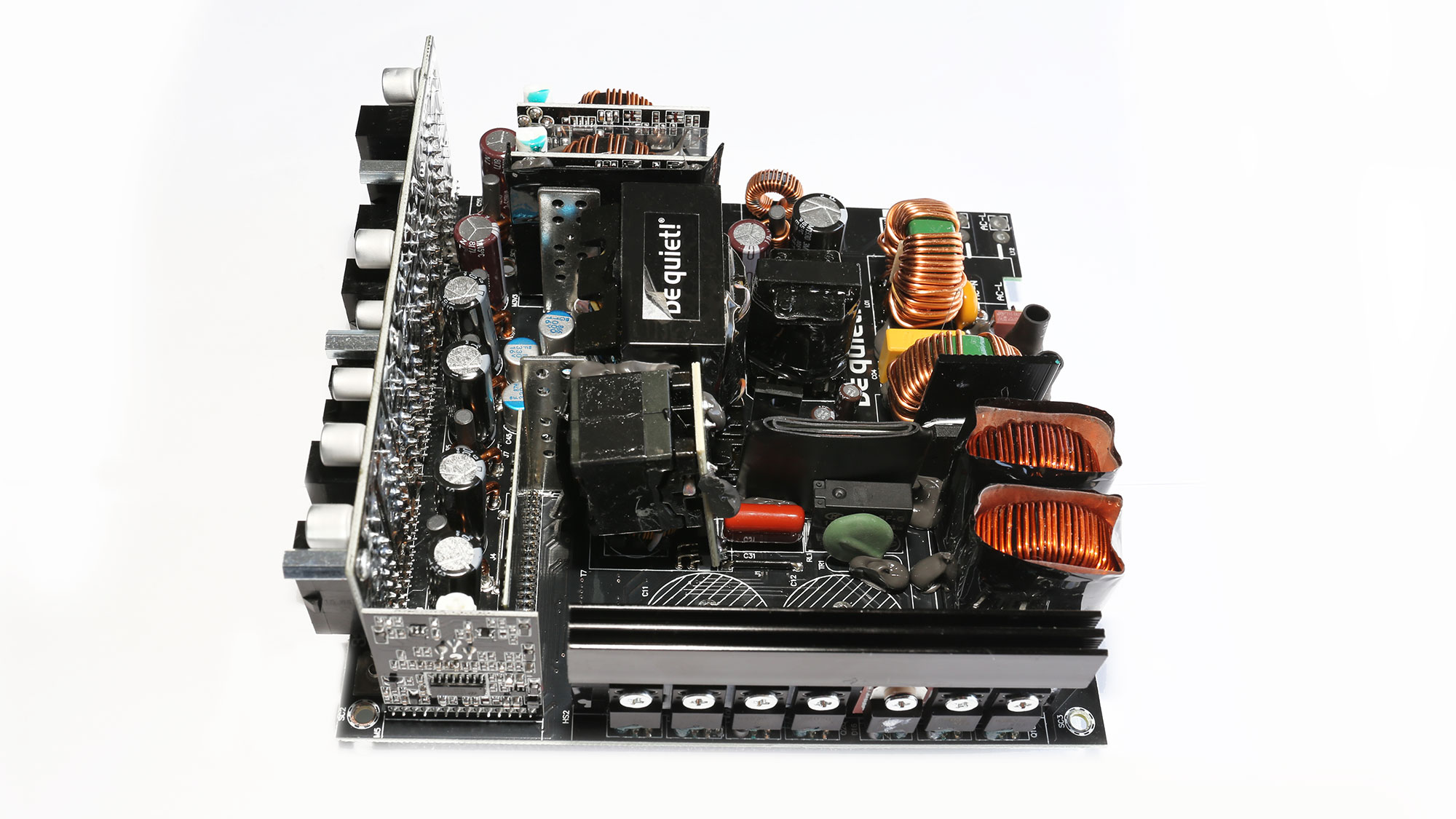
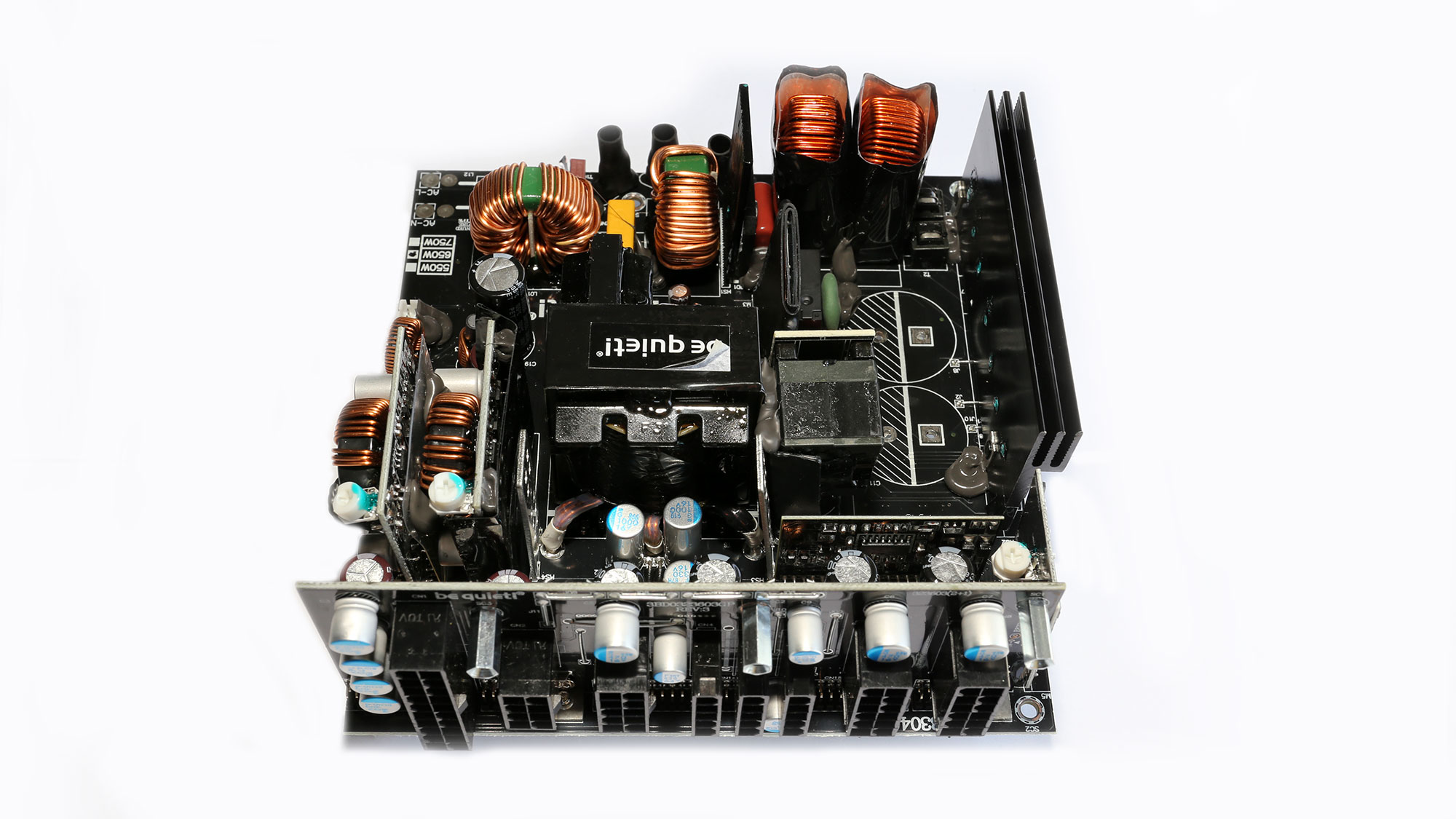
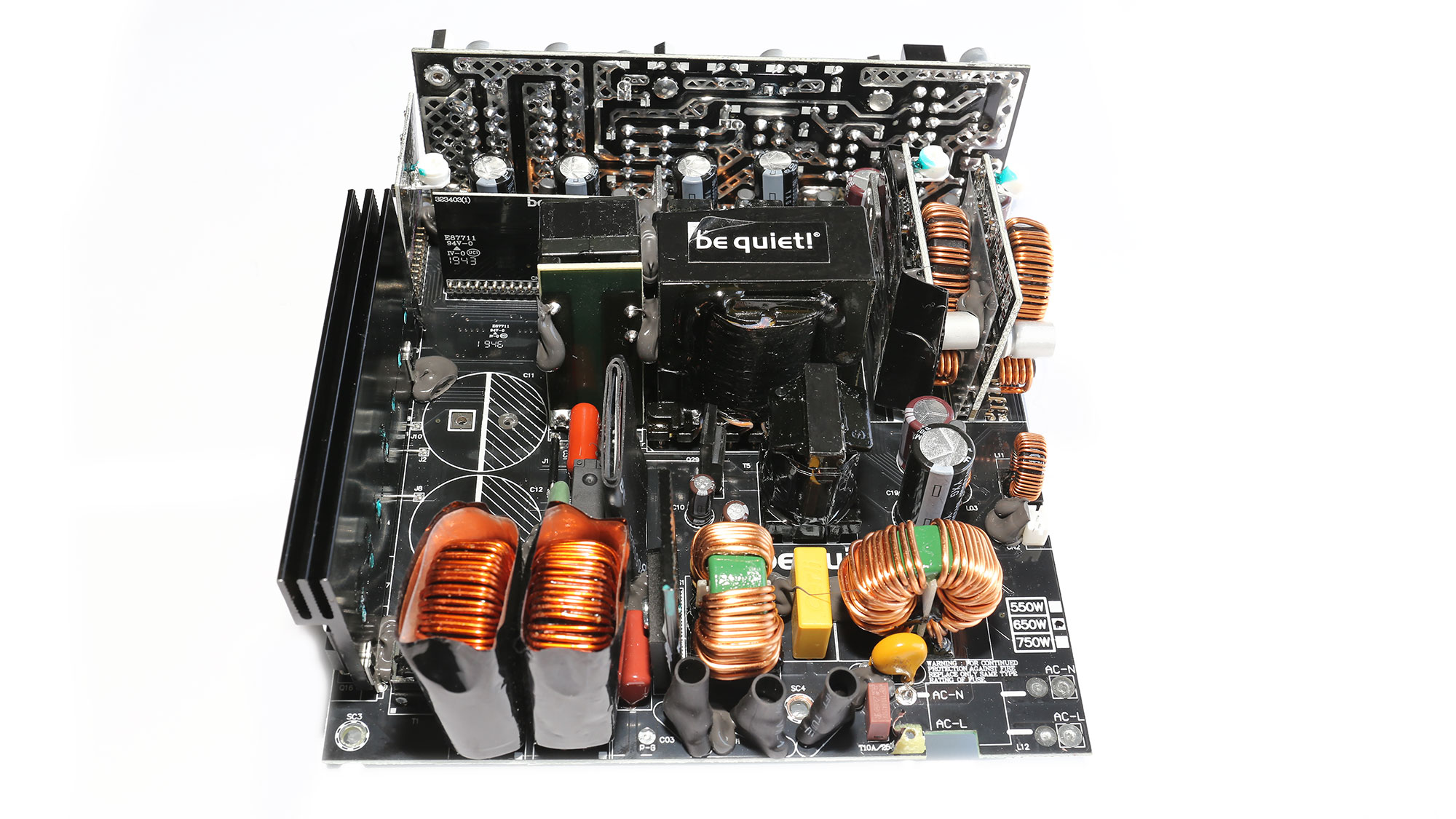
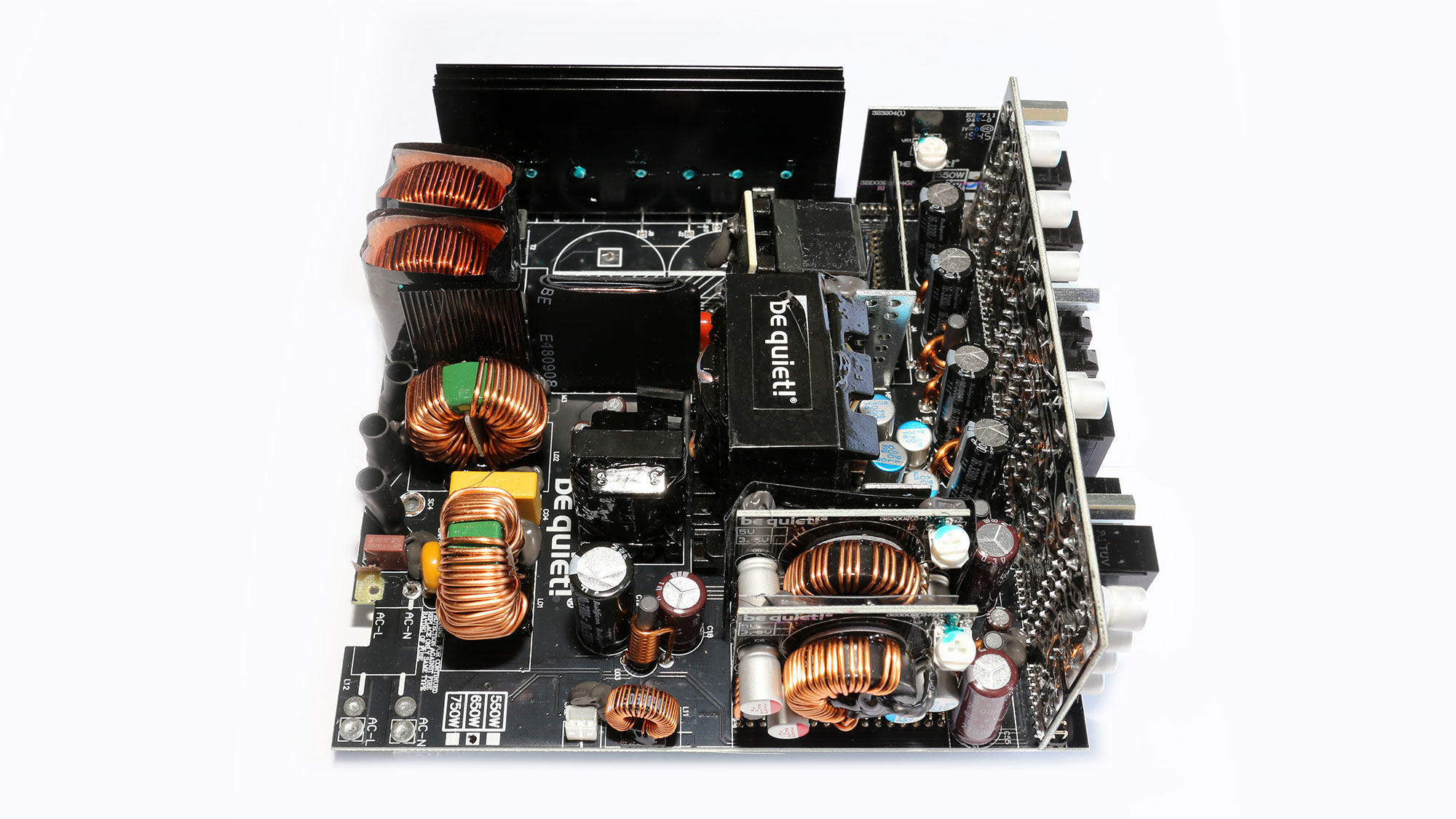
As we also state in the E11-PT-550W review, this line uses a brand new FSP platform, which we will also see in the Hydro PTM Pro line. The design is modern with a full-bridge topology on the primary side, which is supported by an LLC resonant converter, for increased efficiency. On the secondary side, several FETs regulate the +12V rails, and a pair of VRMs handle the minor rails.
The parts are of good quality, especially the bulk caps and the filtering caps on the secondary side.
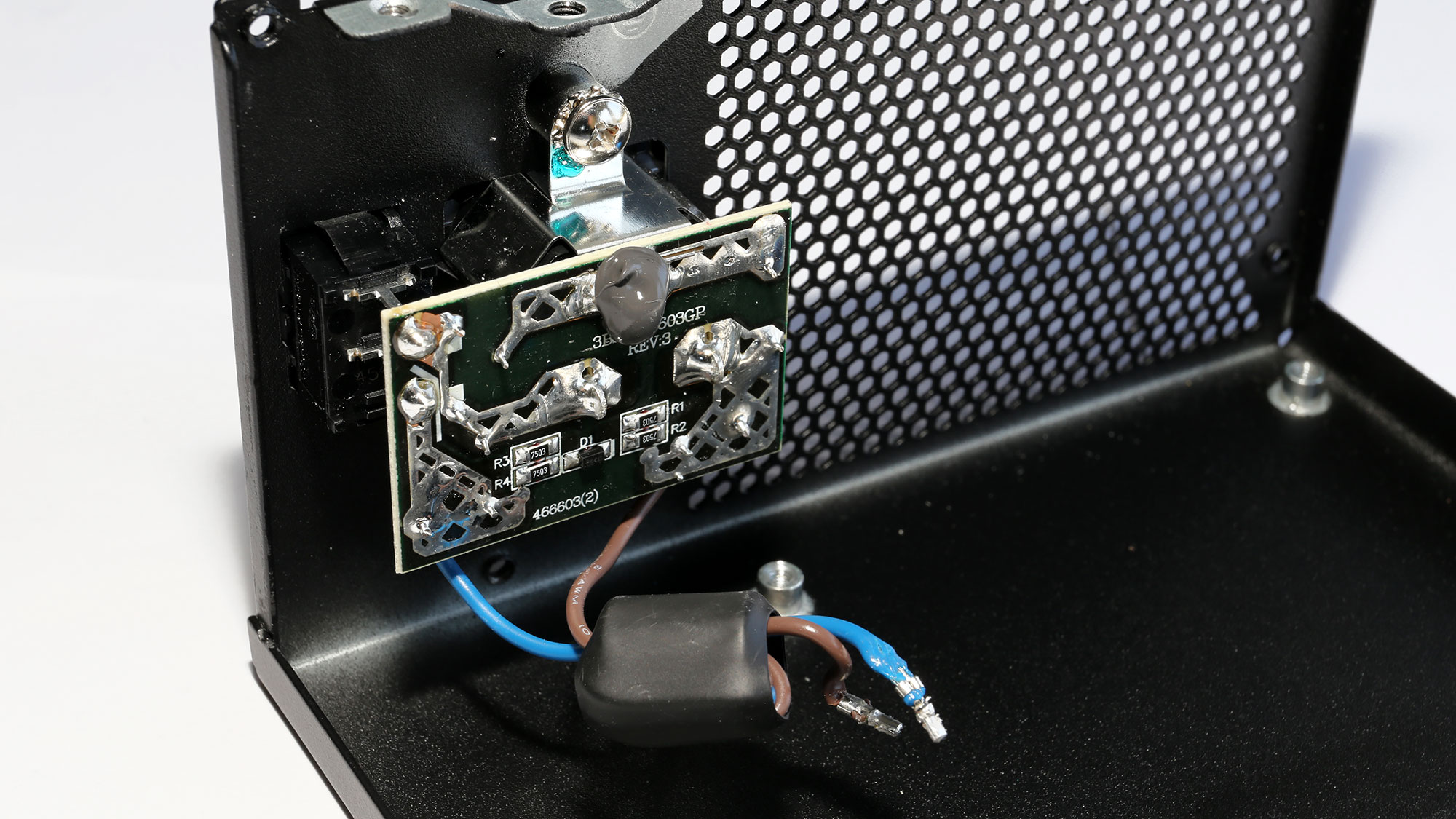
Transient filter
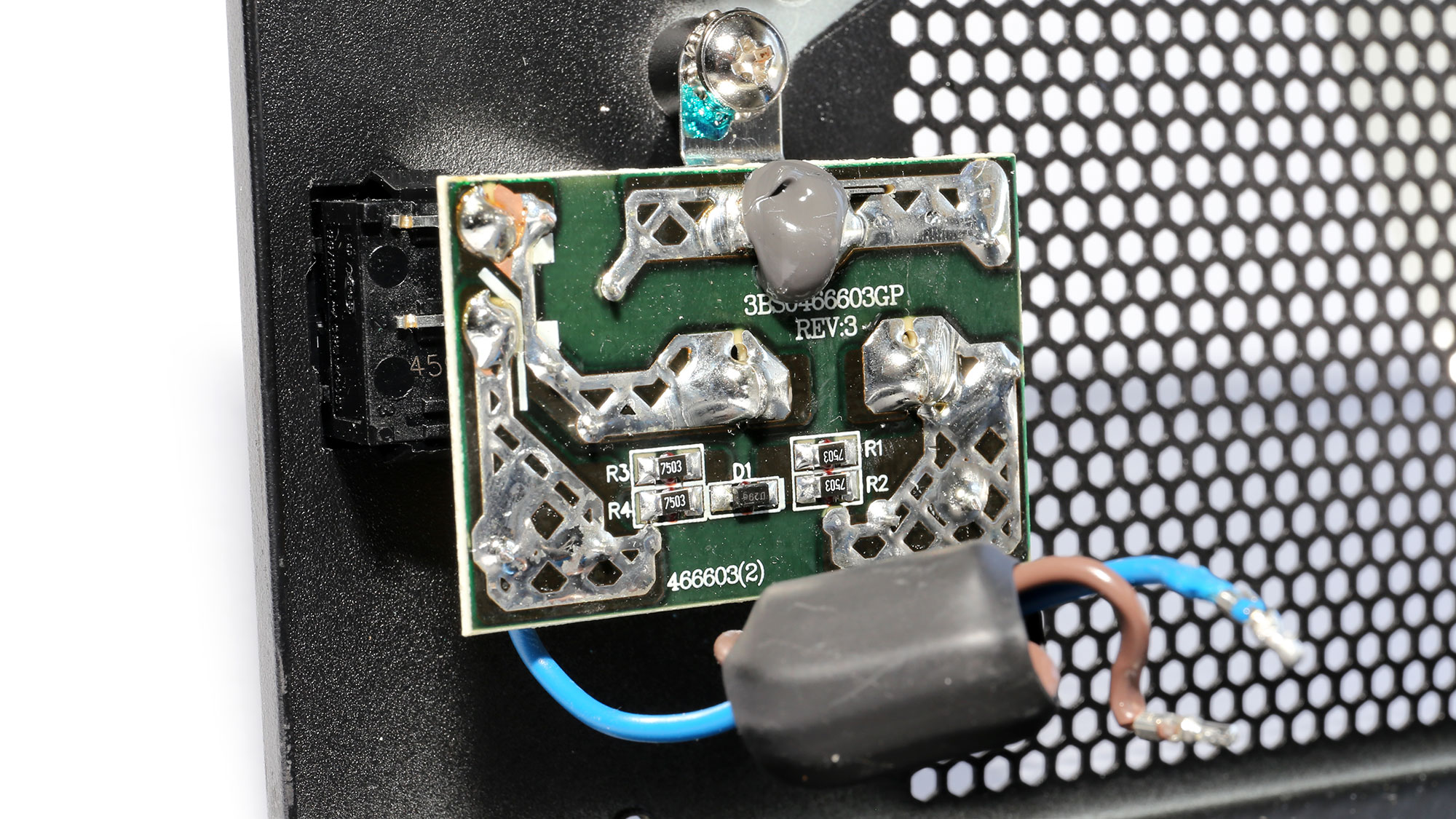
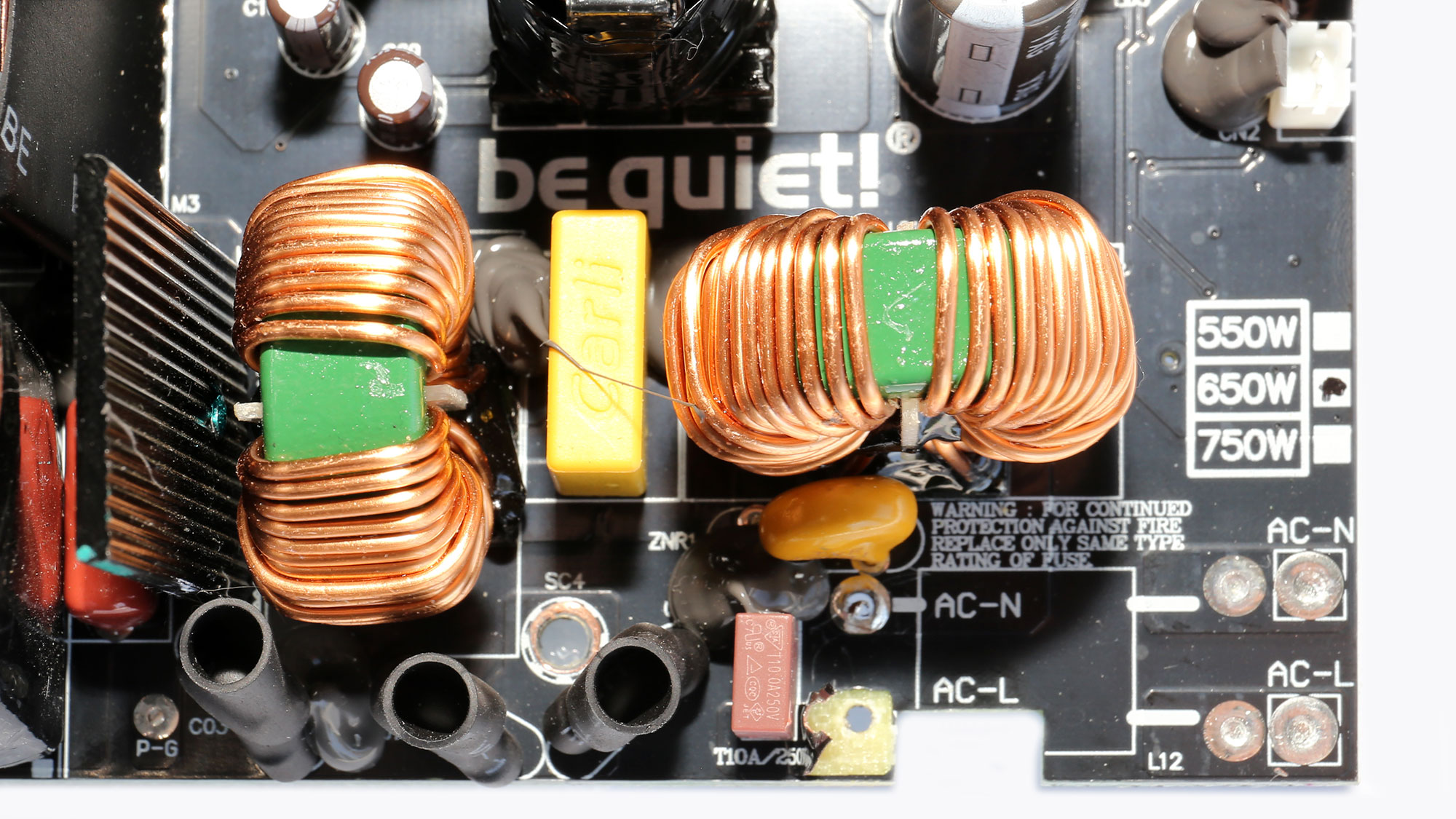
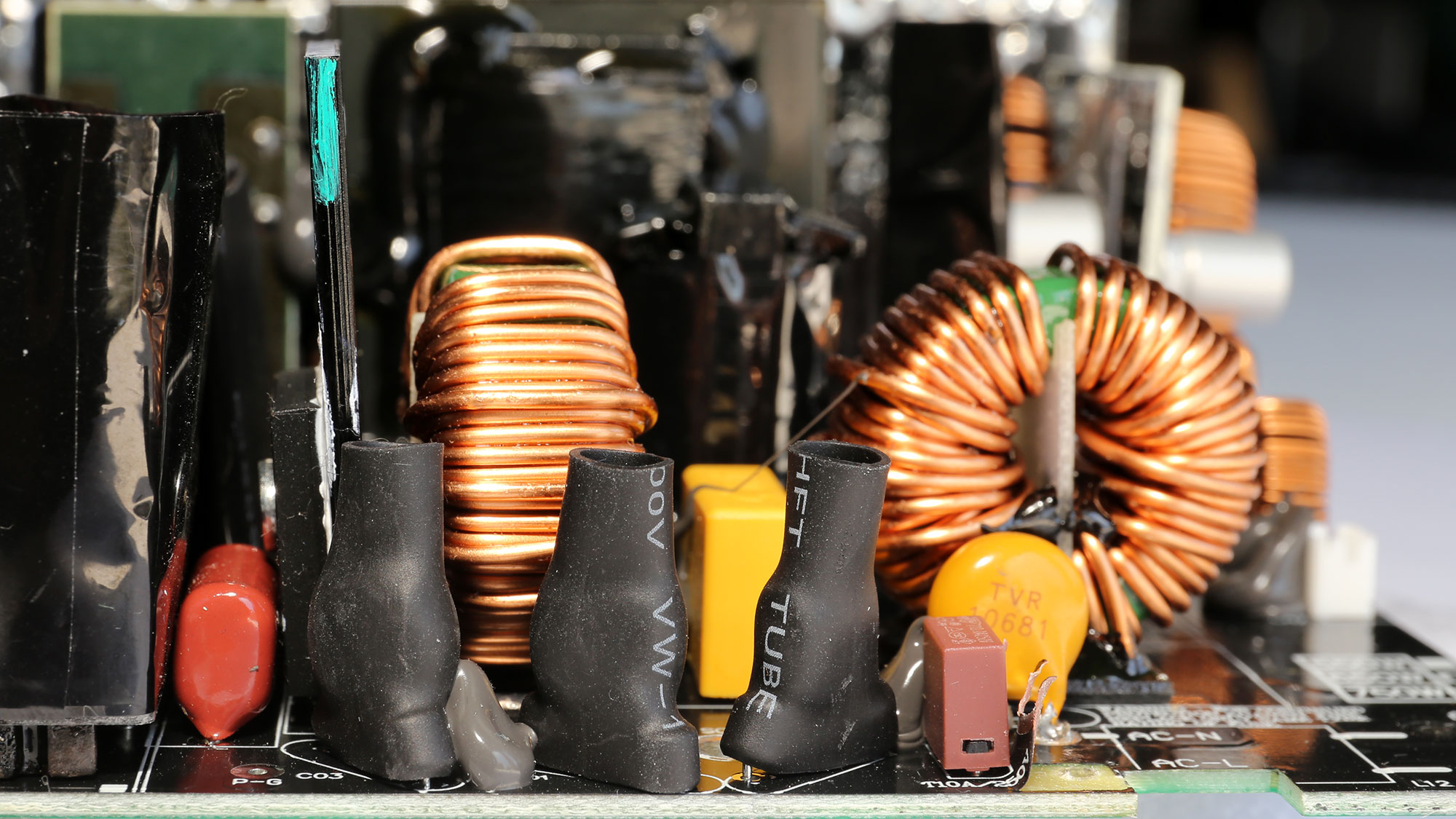
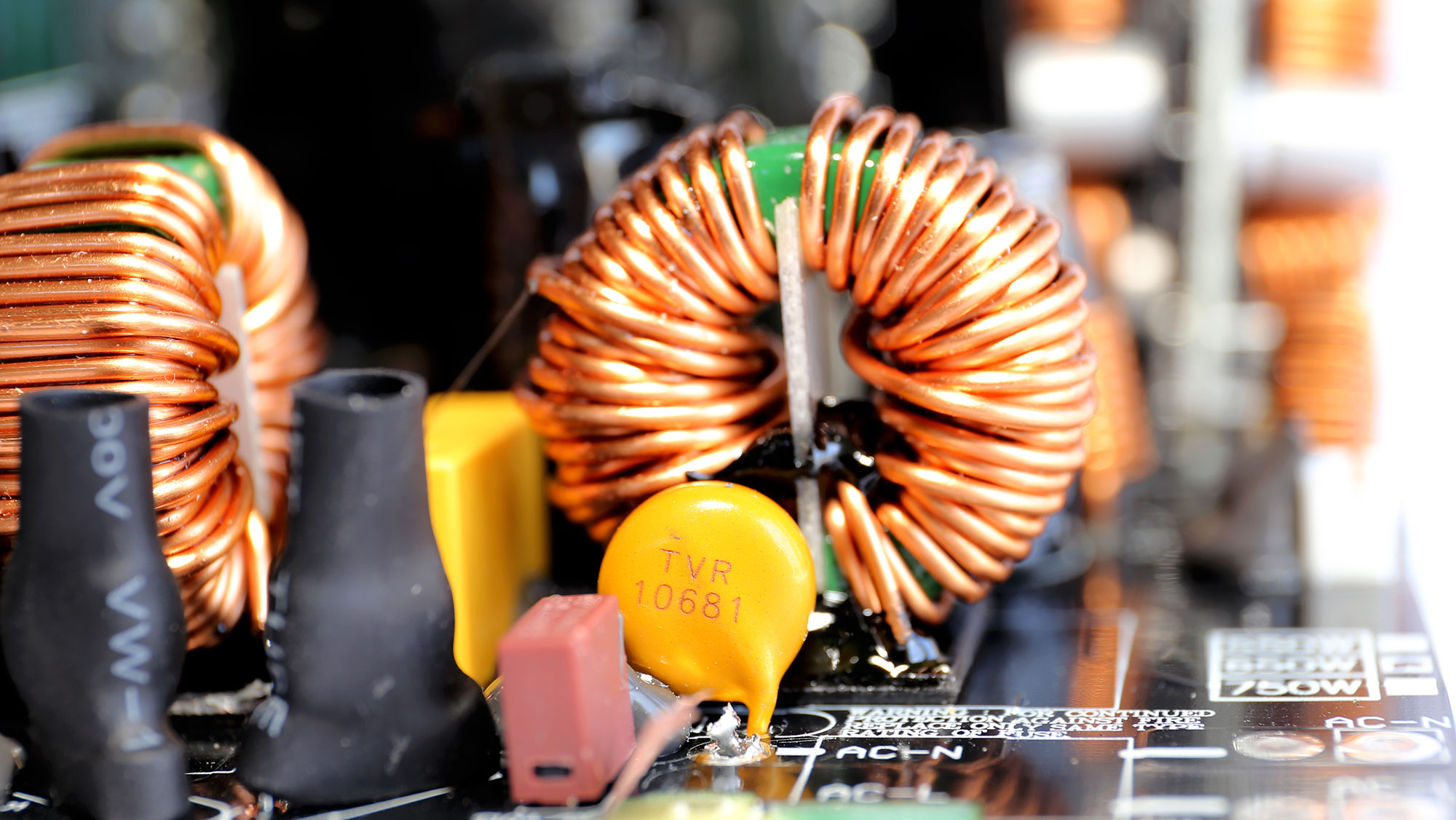
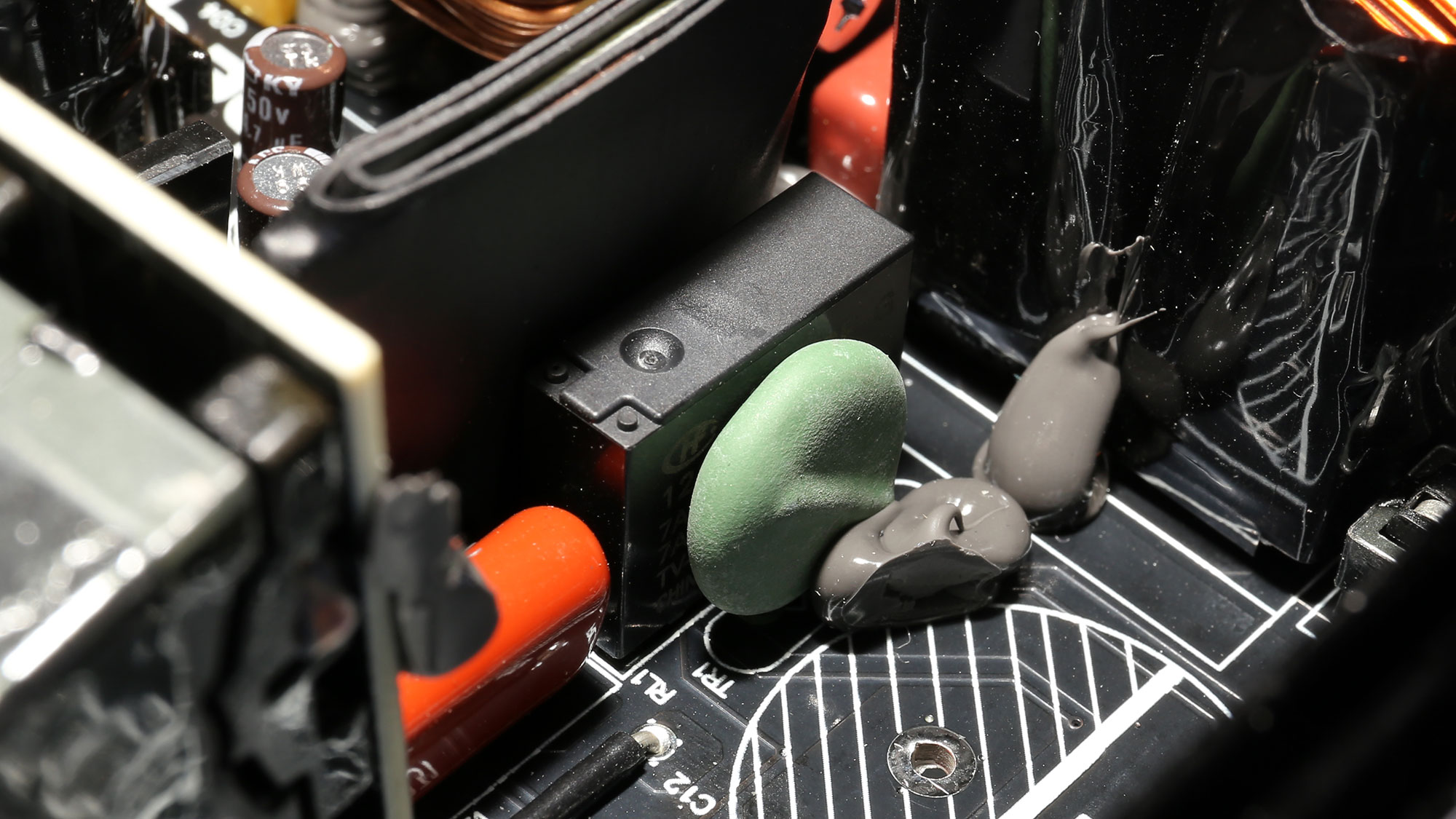
The transient filter has all necessary parts, to effectively deal with EMI emissions, both incoming and outcoming.
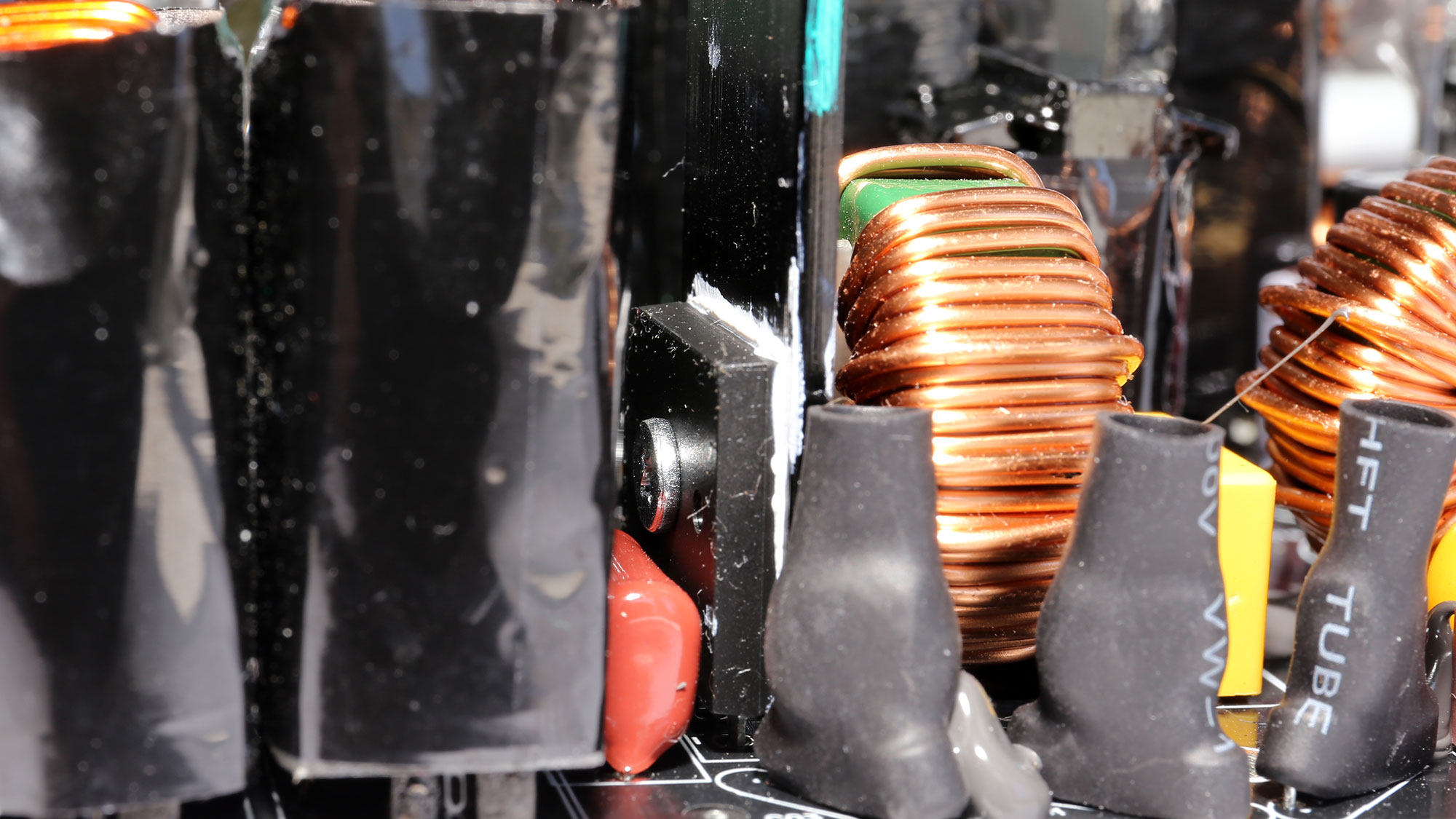
There is one bridge rectifier, while most PSUs in this price range and capacity use two, for lower energy losses.
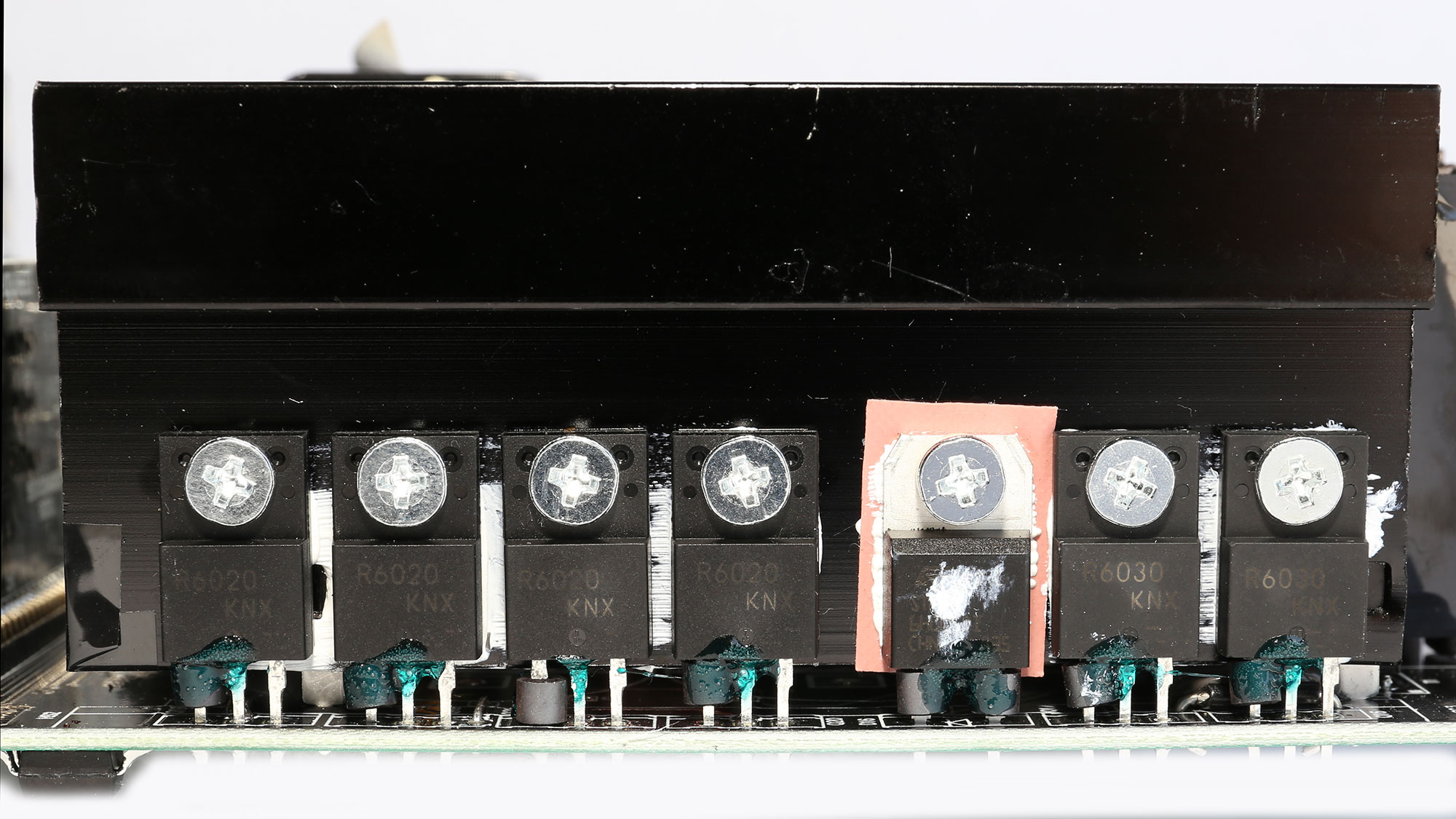
APFC converter
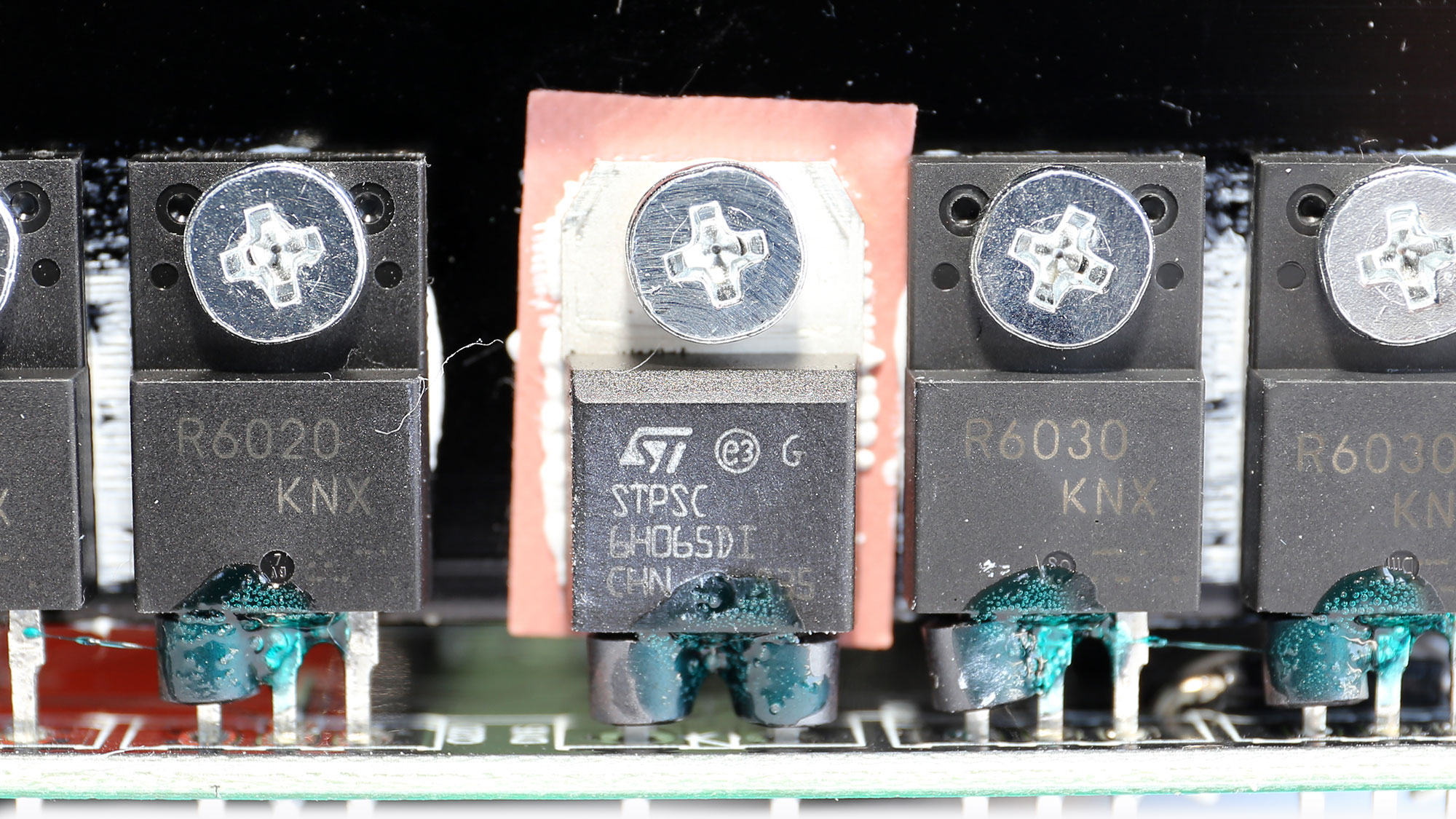
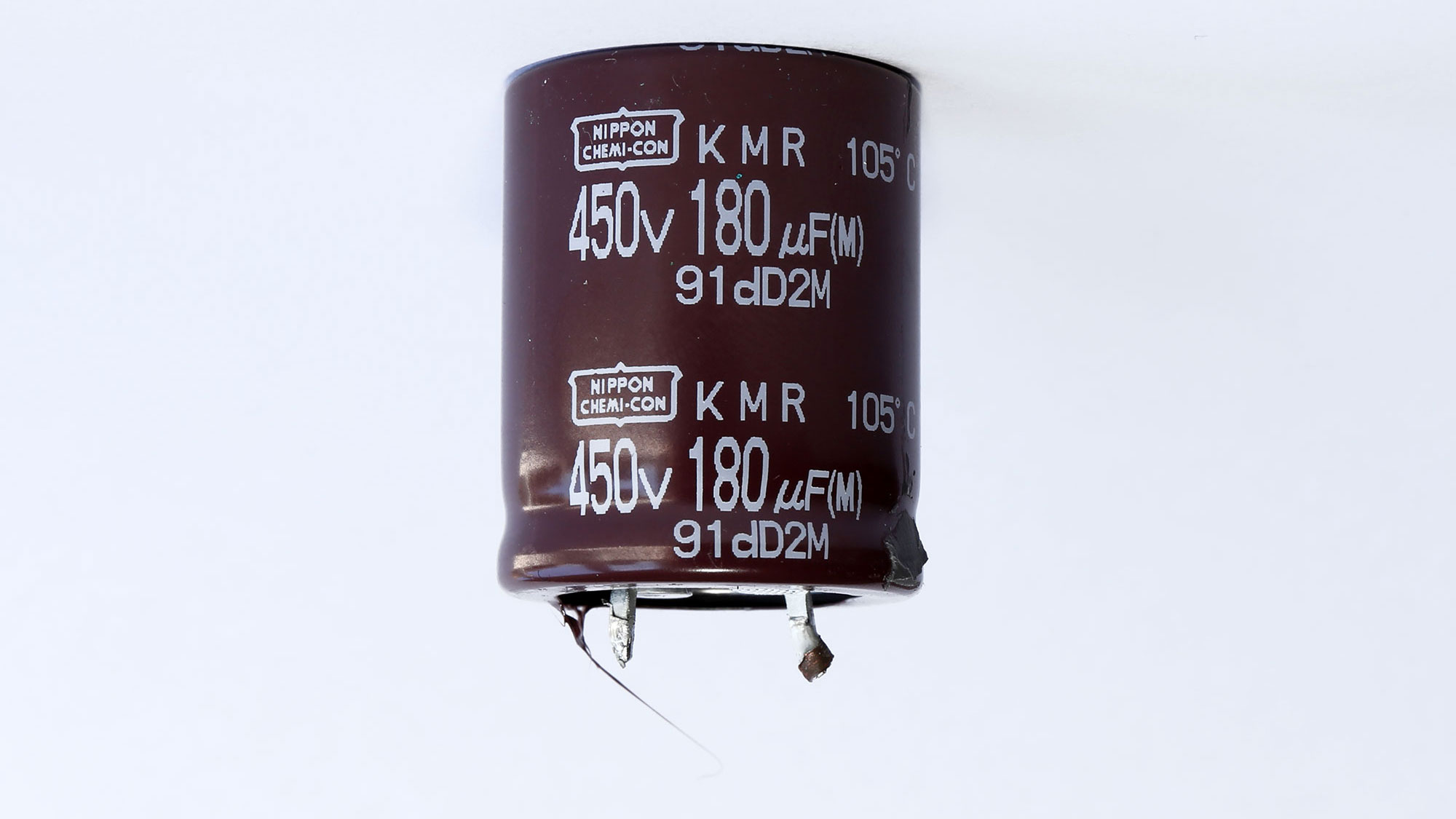
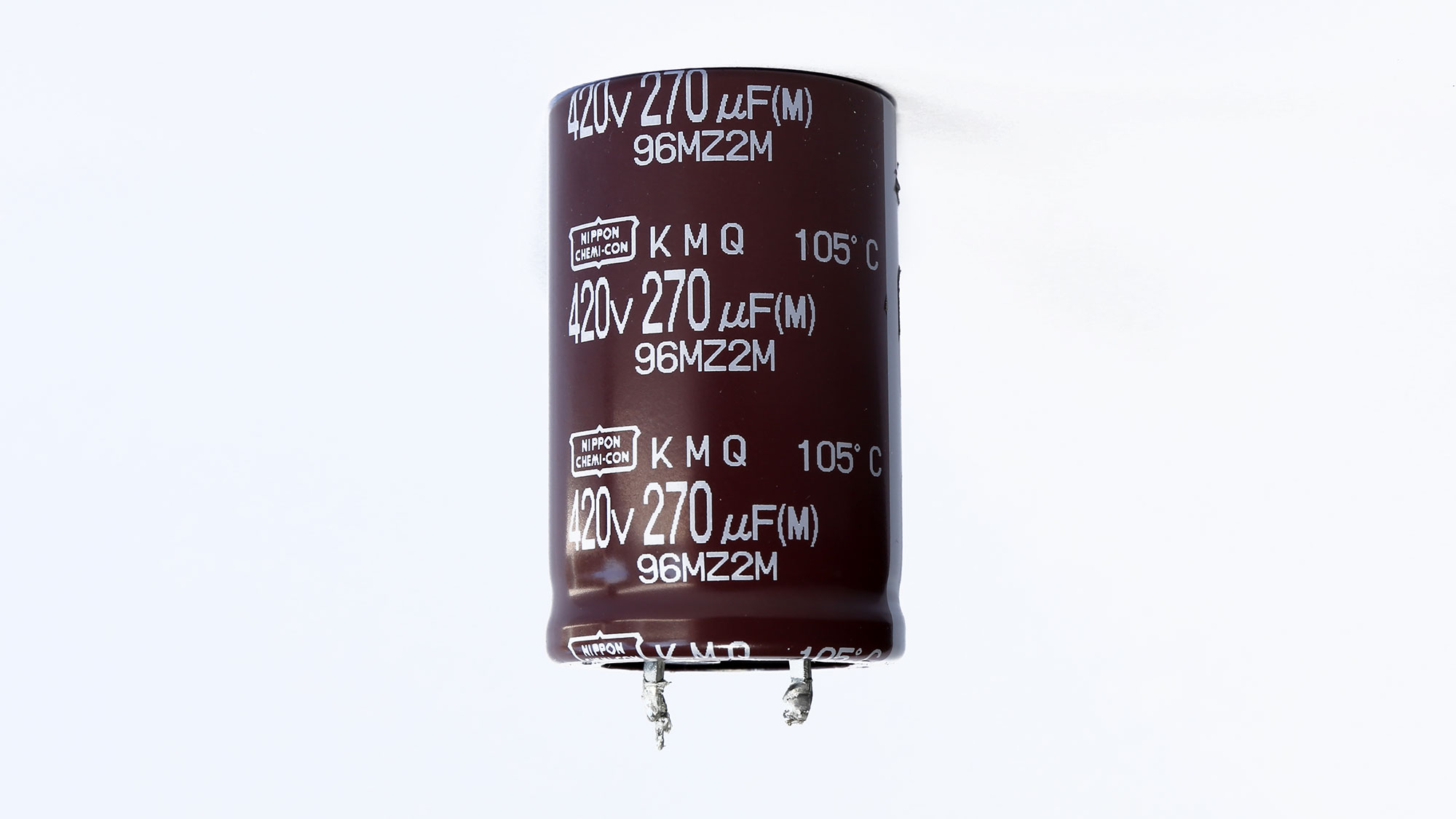
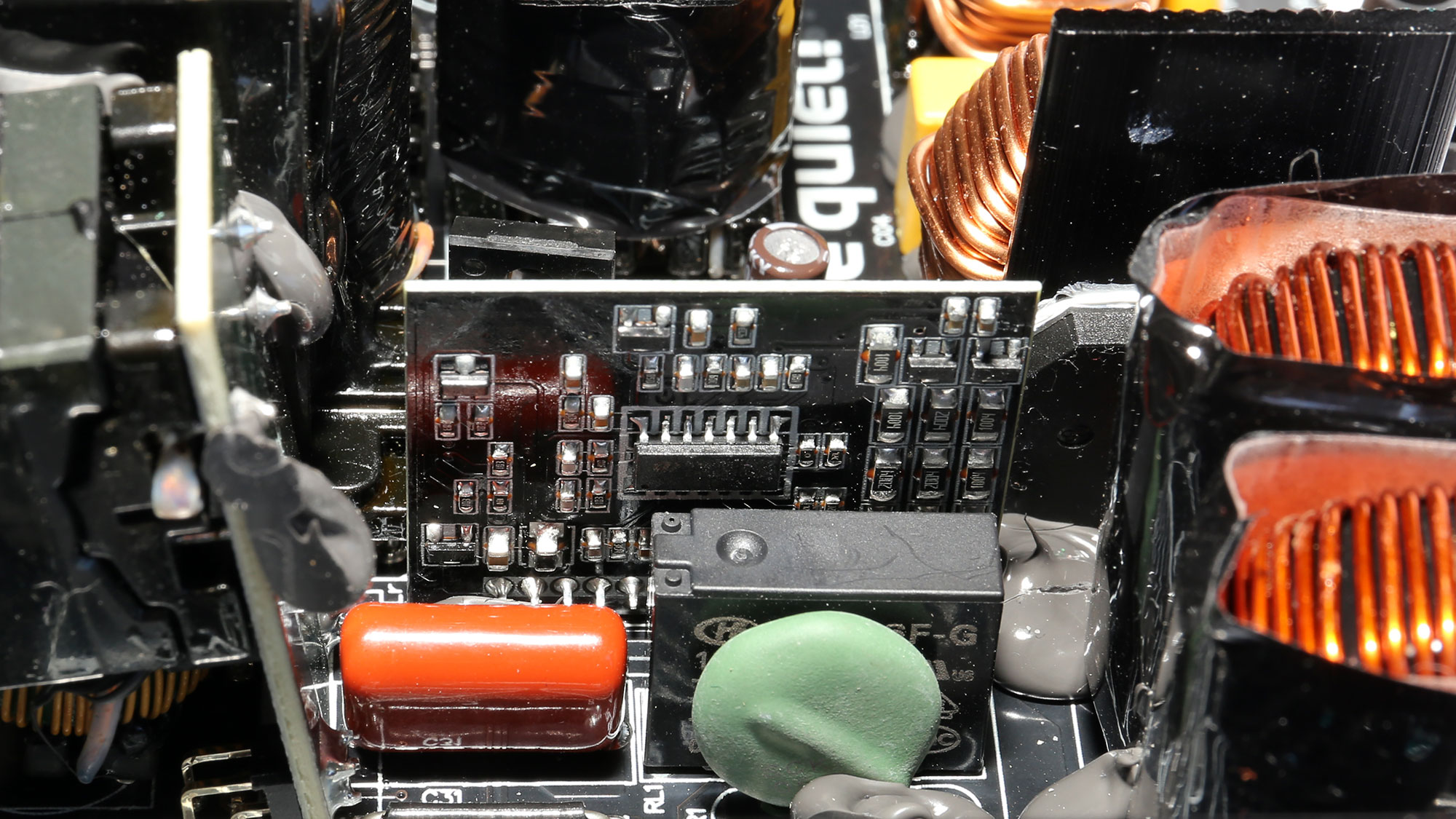
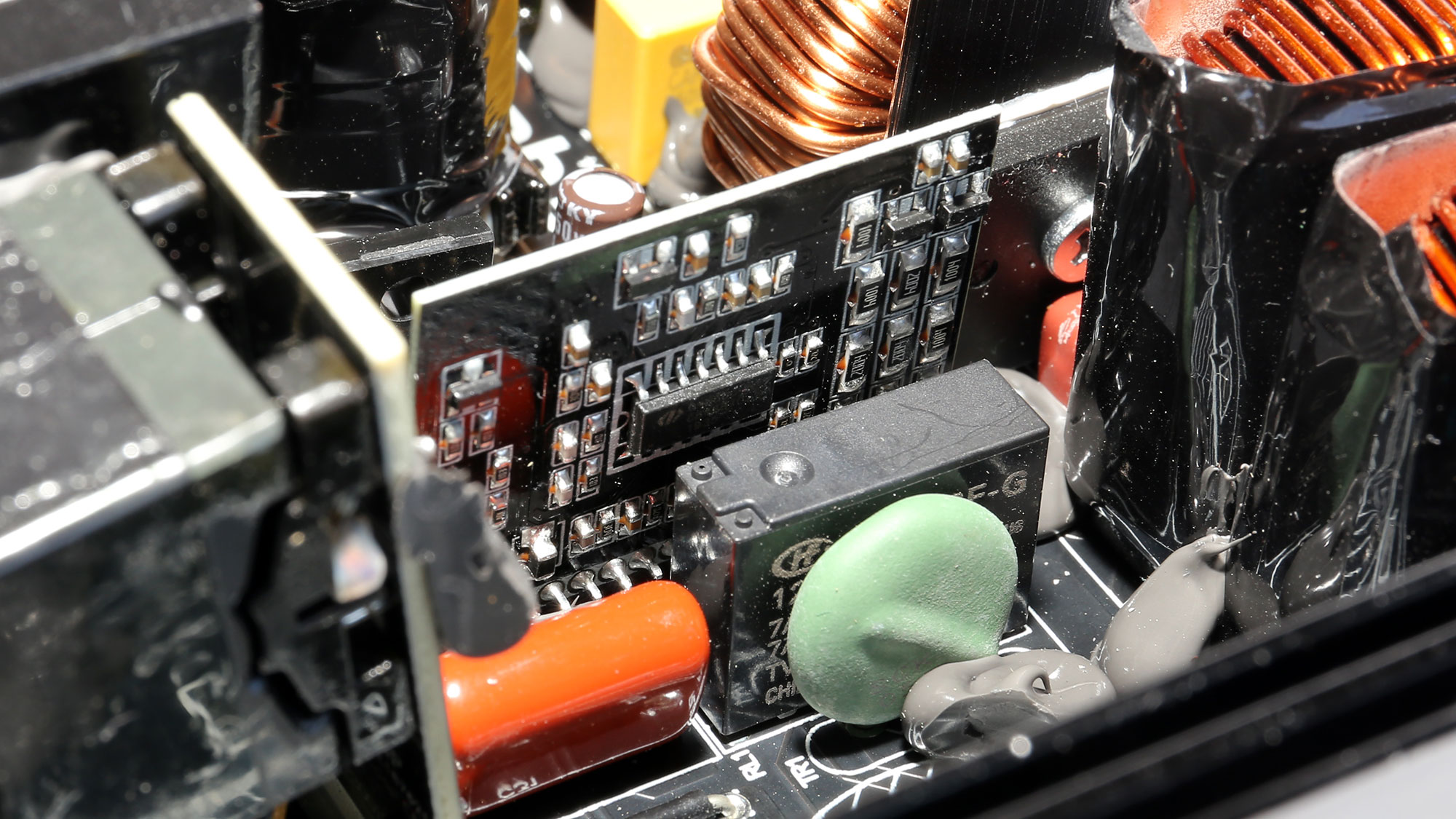
The APFC converter uses two ROHM FETs and a single boost diode, provided by STMicroelectronics. There are two bulk caps, with their combined capacity reaching 450uF, which is low for a 650W power supply. But the hold-up time also has to do with the design and the APFC controller's tuning.
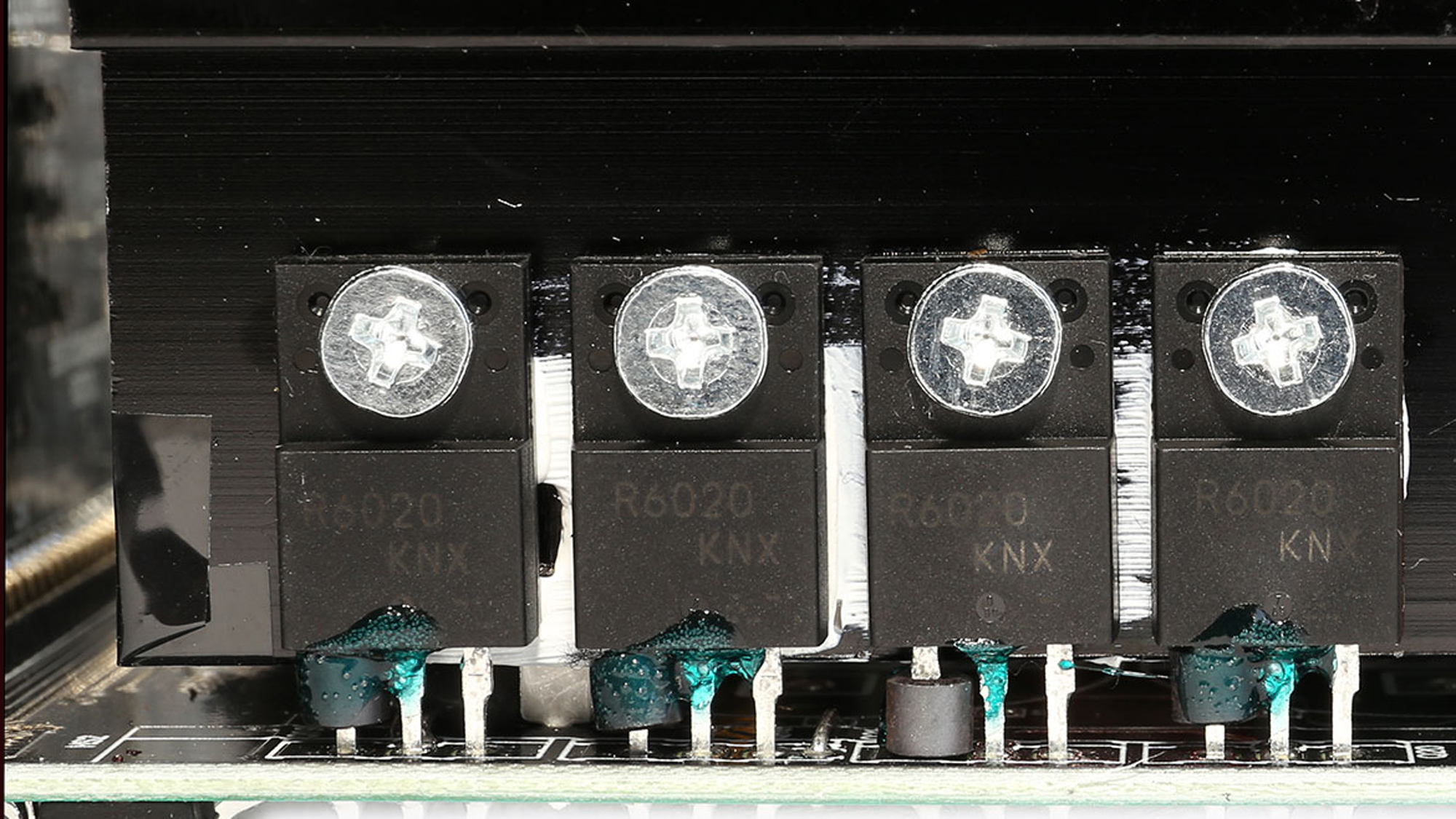
Main FETs and primary transformer
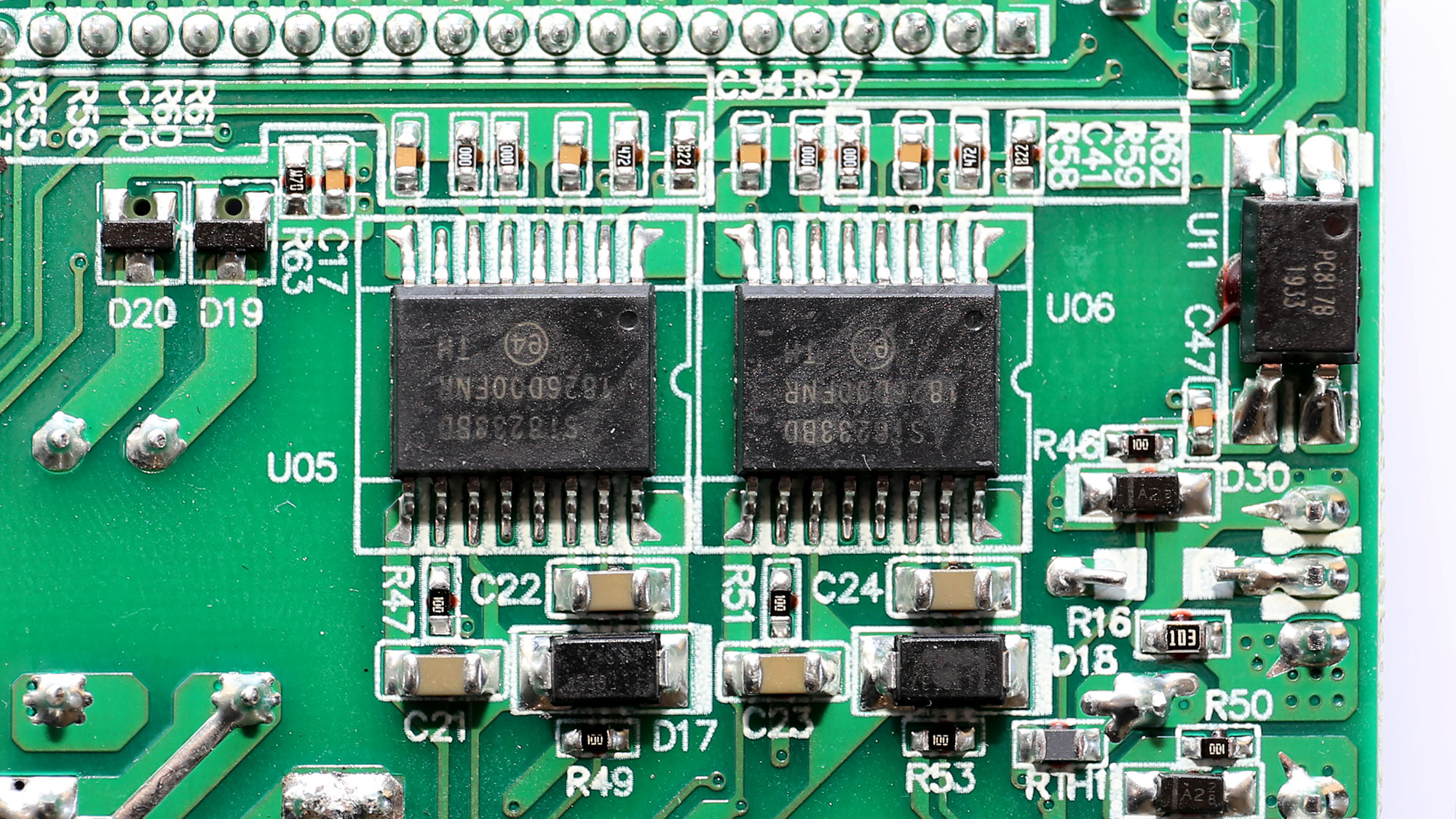
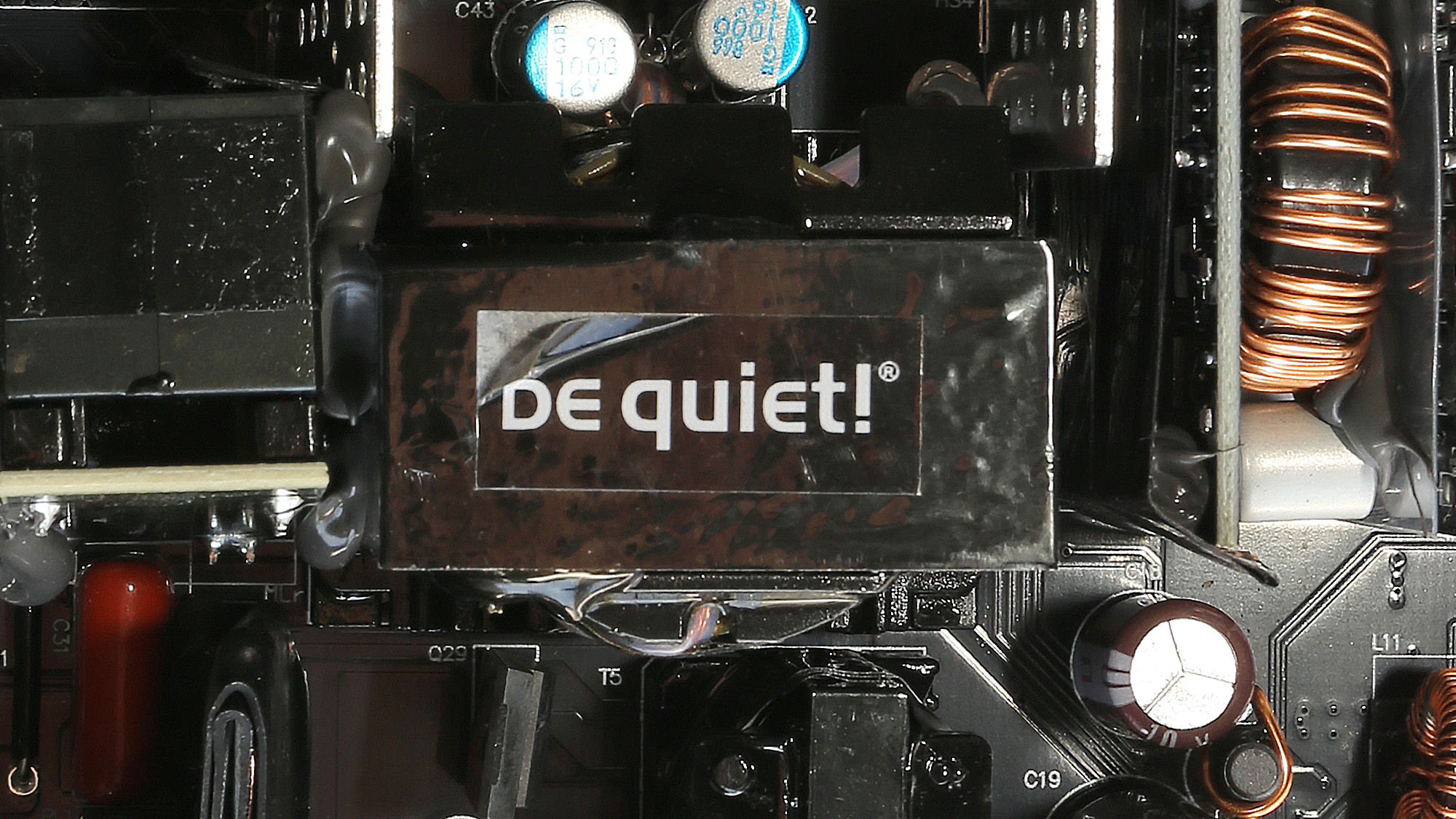
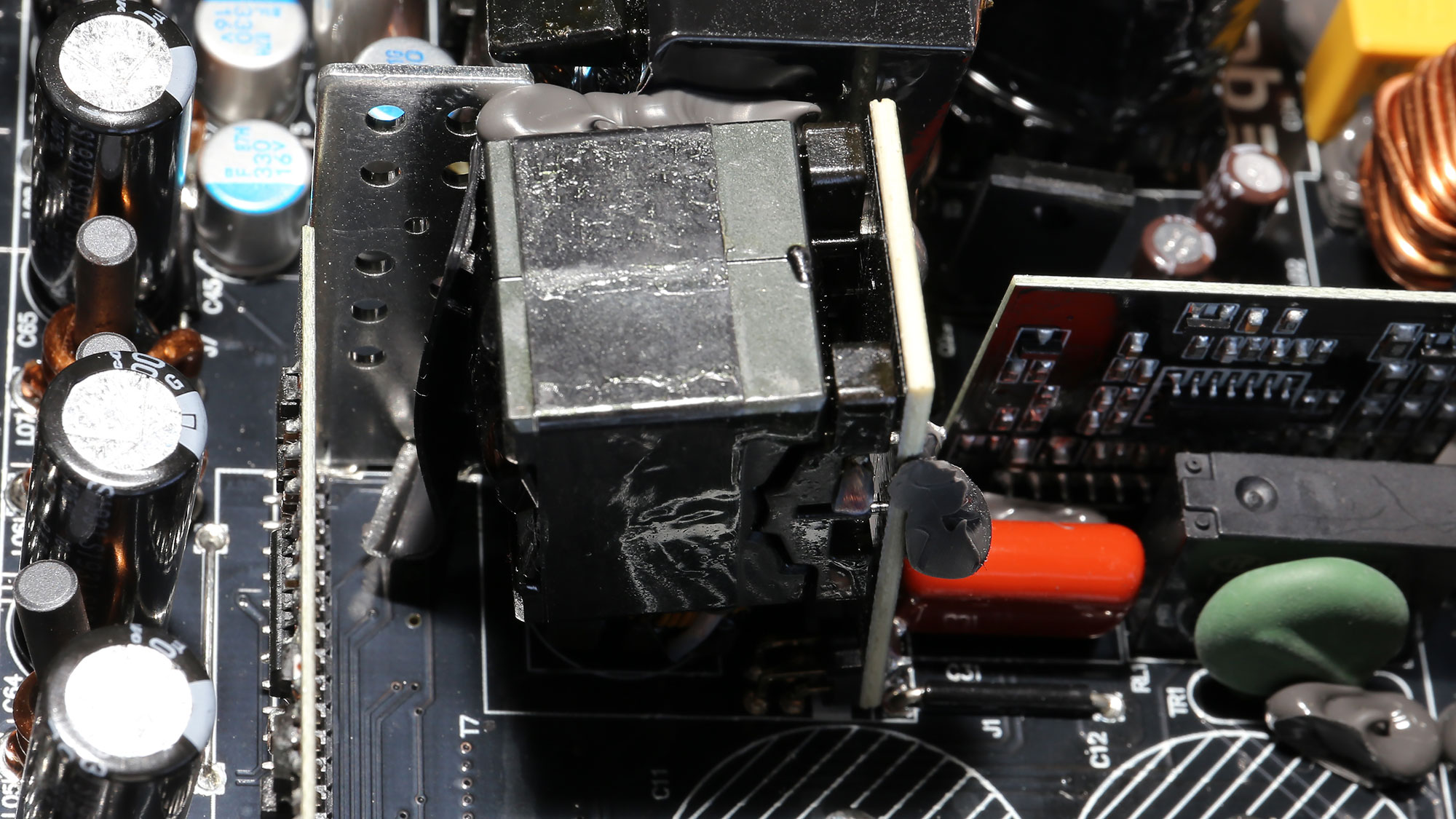
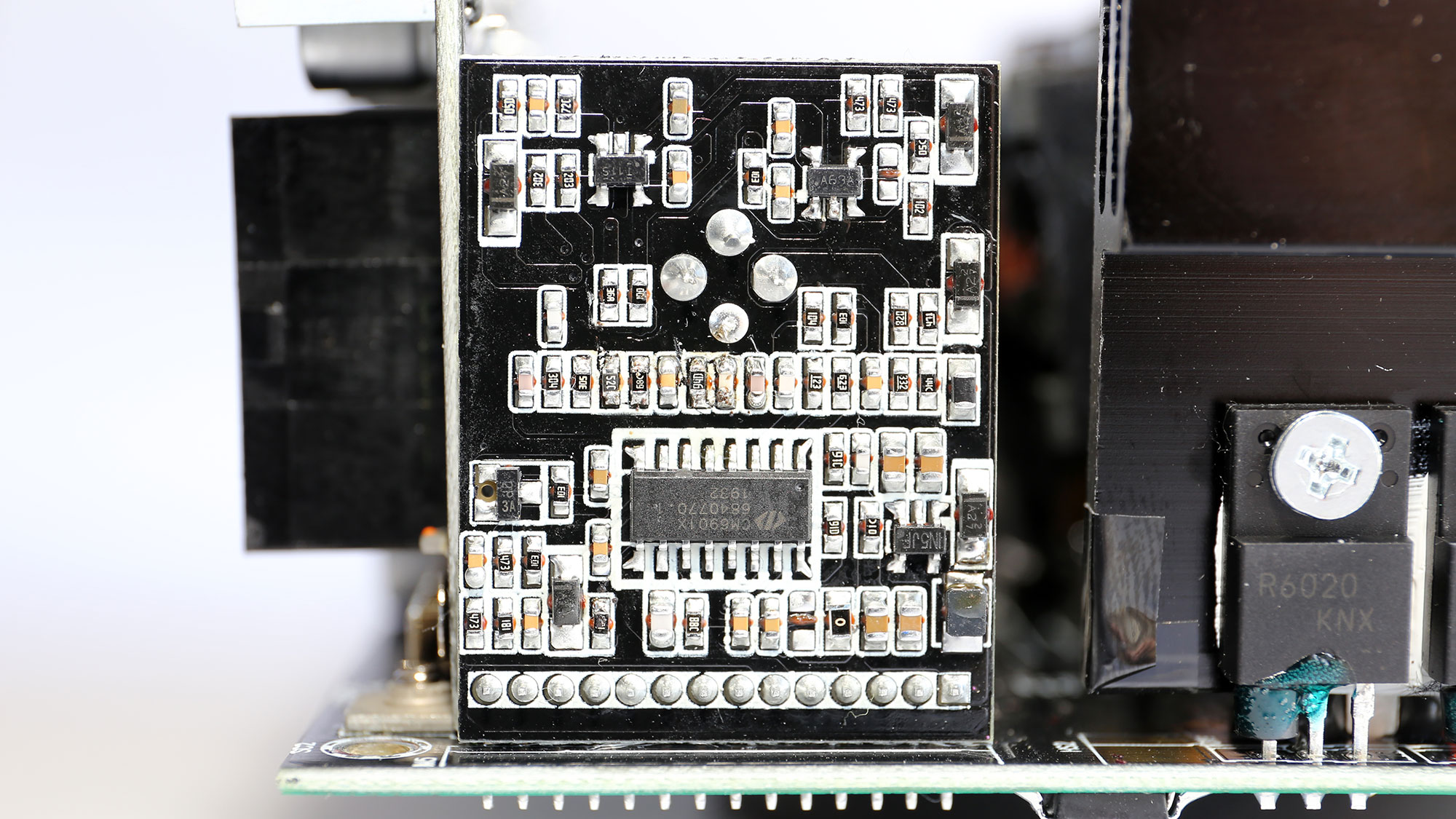
The four primary switching FETs are configured in a full-bridge topology, with an LLC resonant converter also used for higher efficiency.
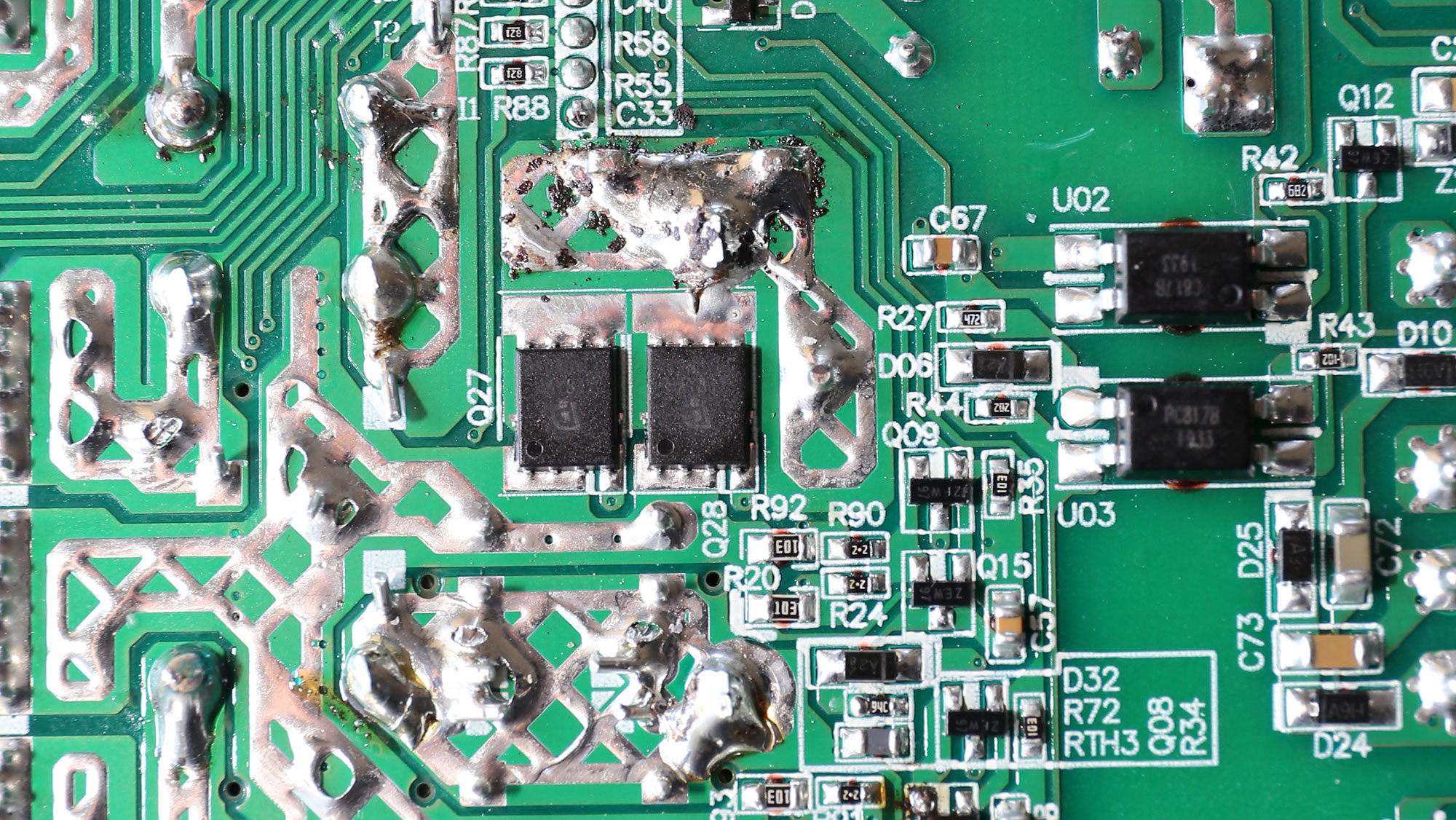
12V FETs and VRMs
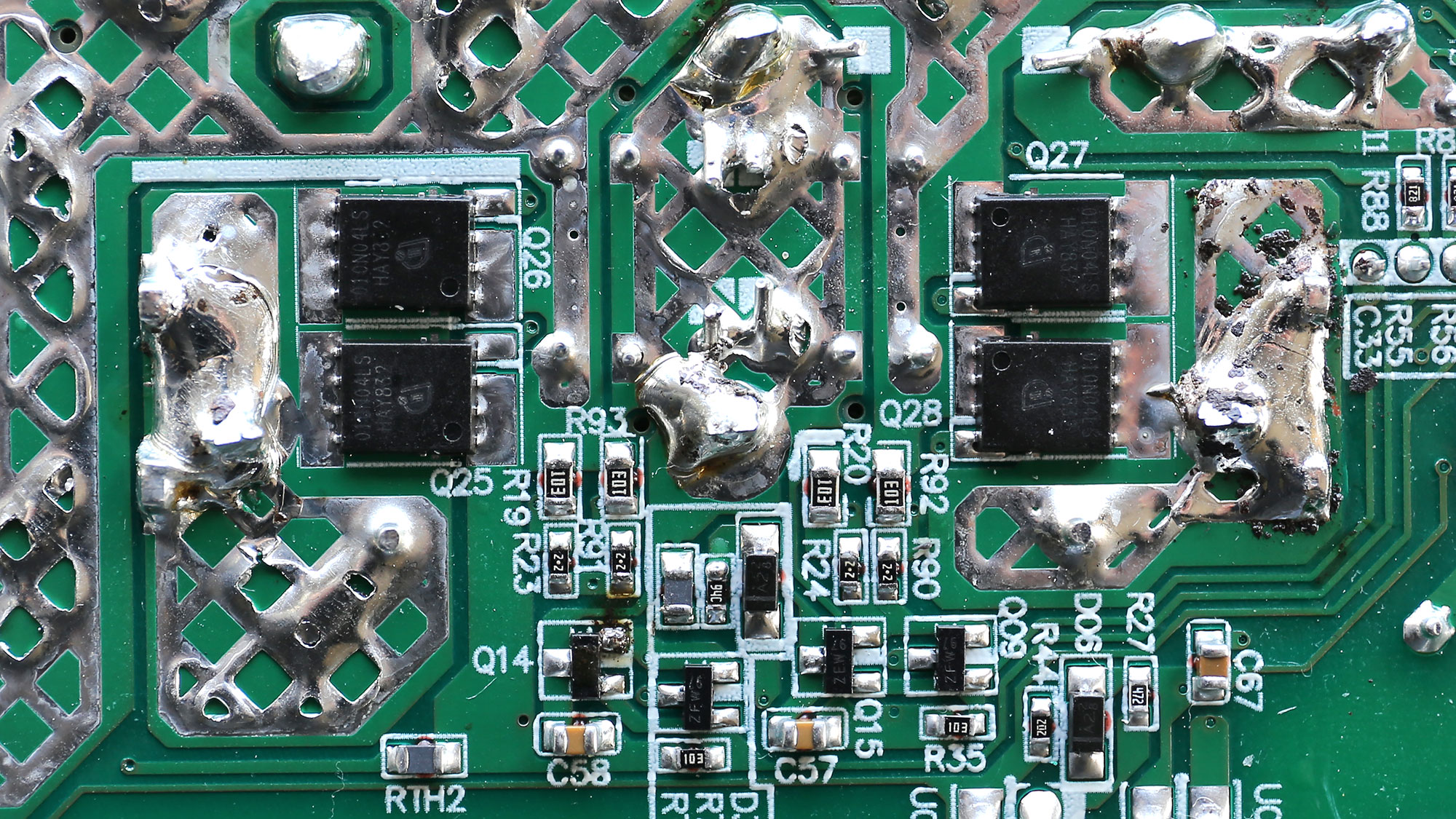
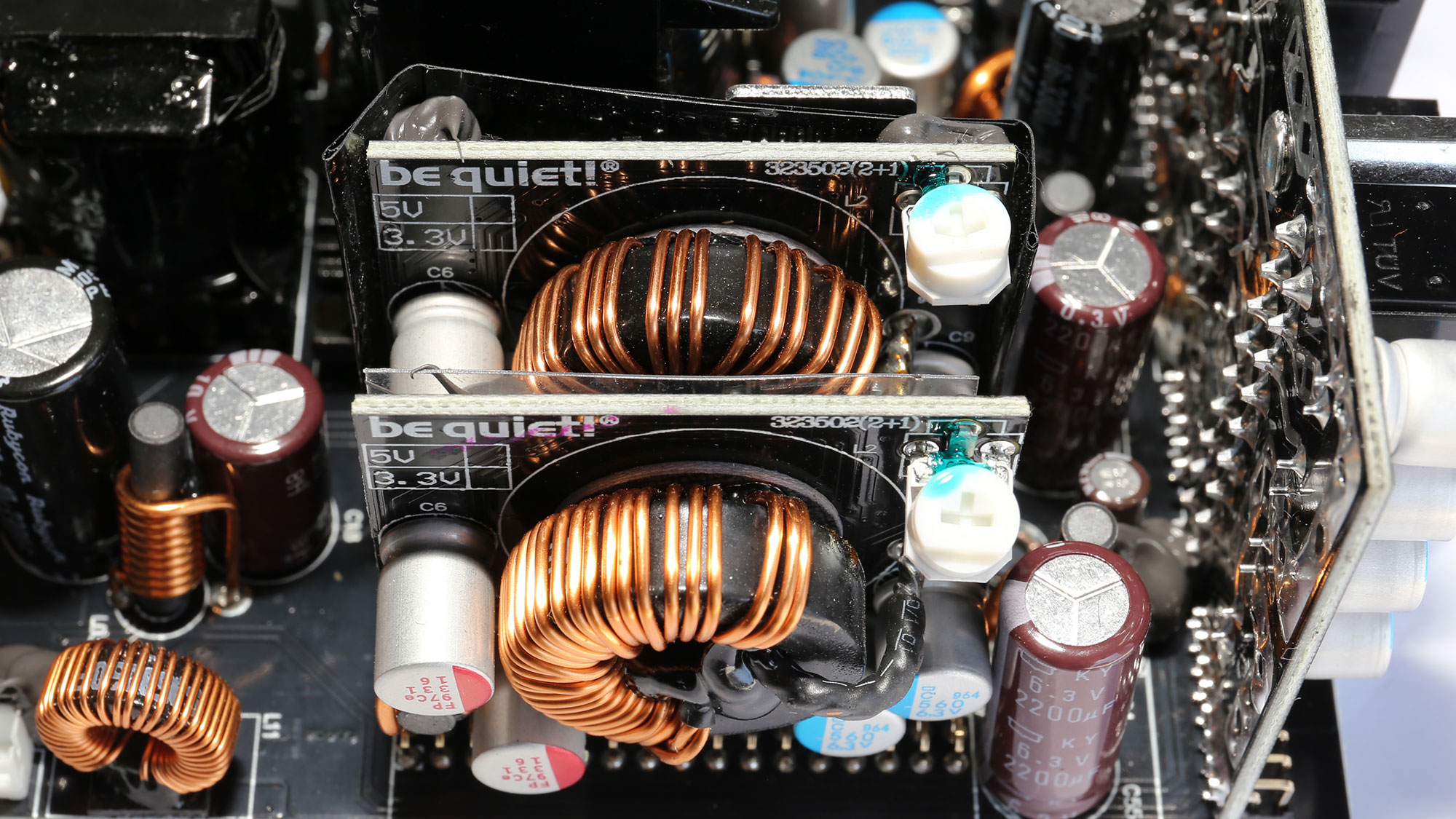
The +12V FETs are installed on the rear side of the PCB, and the soldering quality in this area doesn't look good.
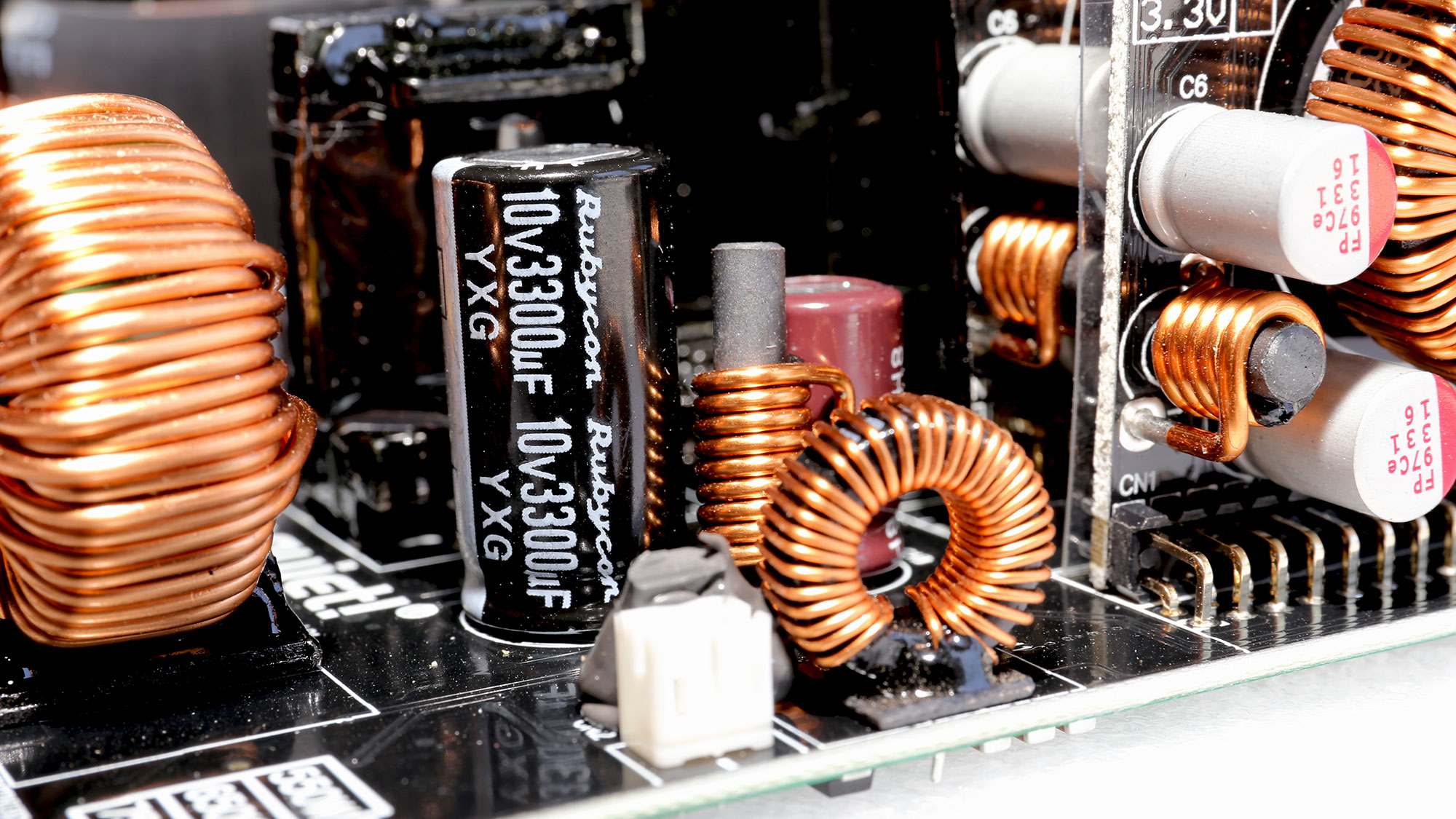
Filtering caps
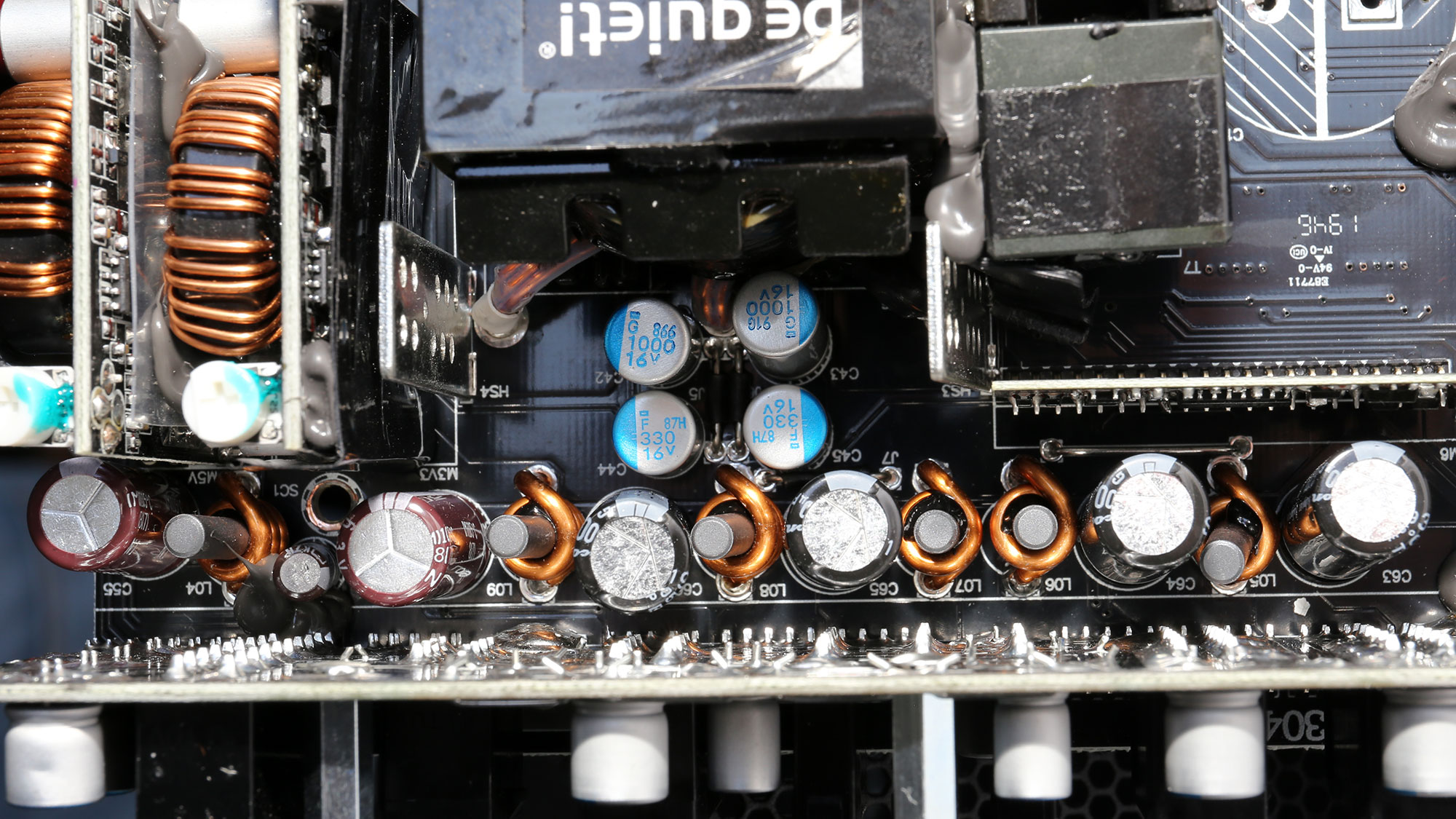
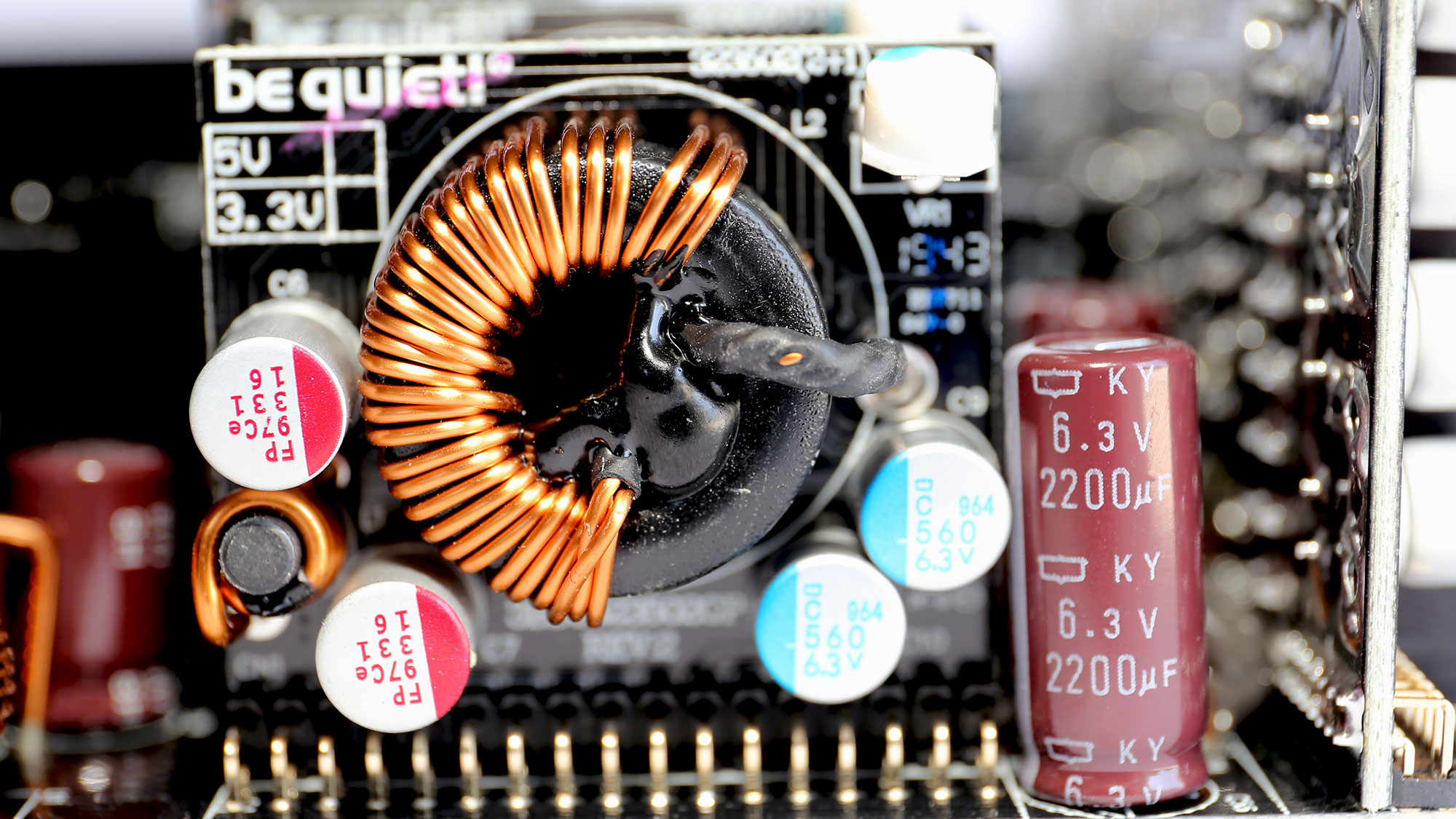
The filtering caps are of high quality. Besides electrolytic caps, a large number of polymers also handle ripple filtering.
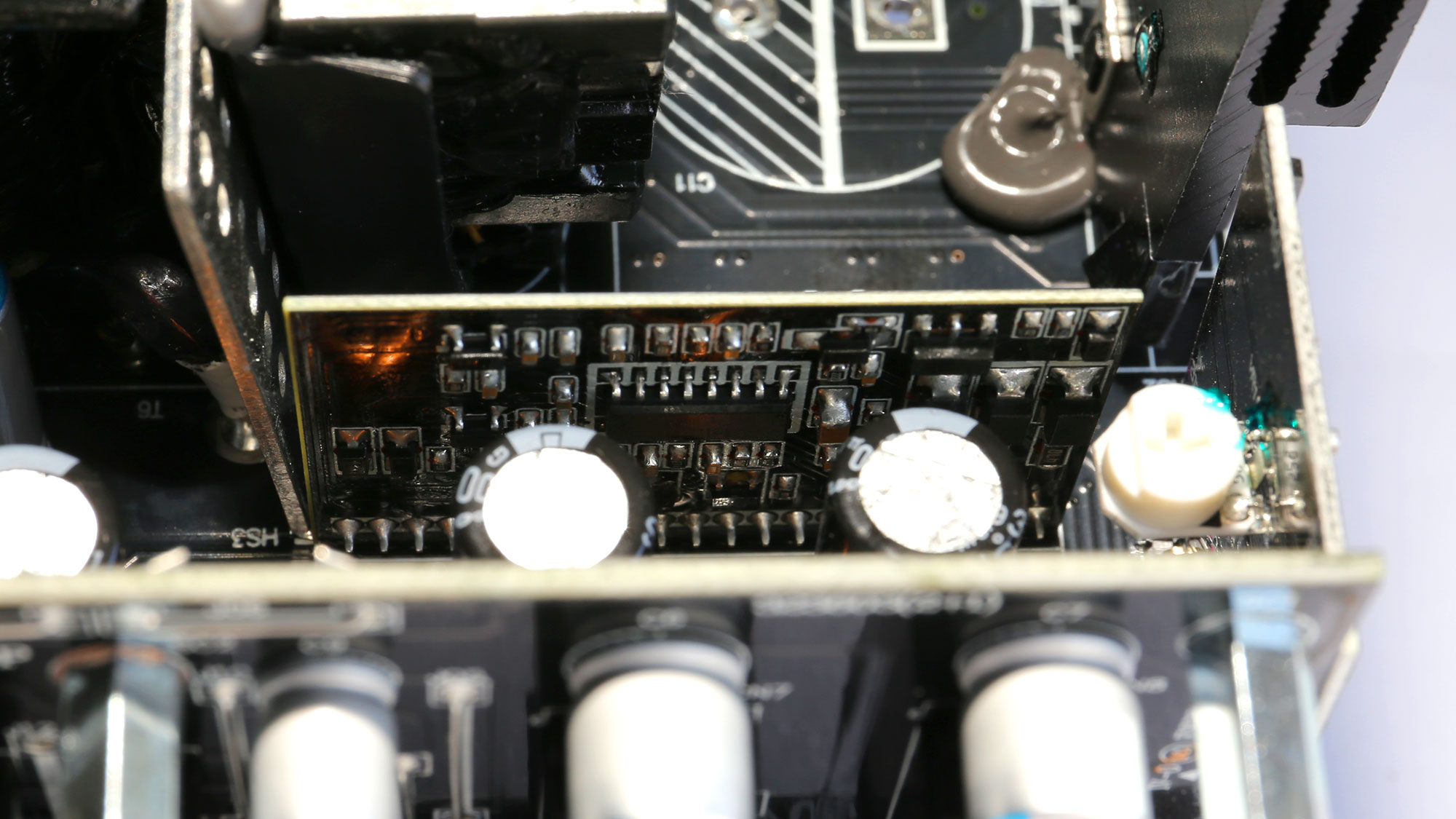
The supervisor IC is a Weltrend WT7527, which supports all protection features but OTP (Over Temperature Protection). The latter protection is implemented through another circuit, which most likely uses the WT7527, to shut down the PSU.
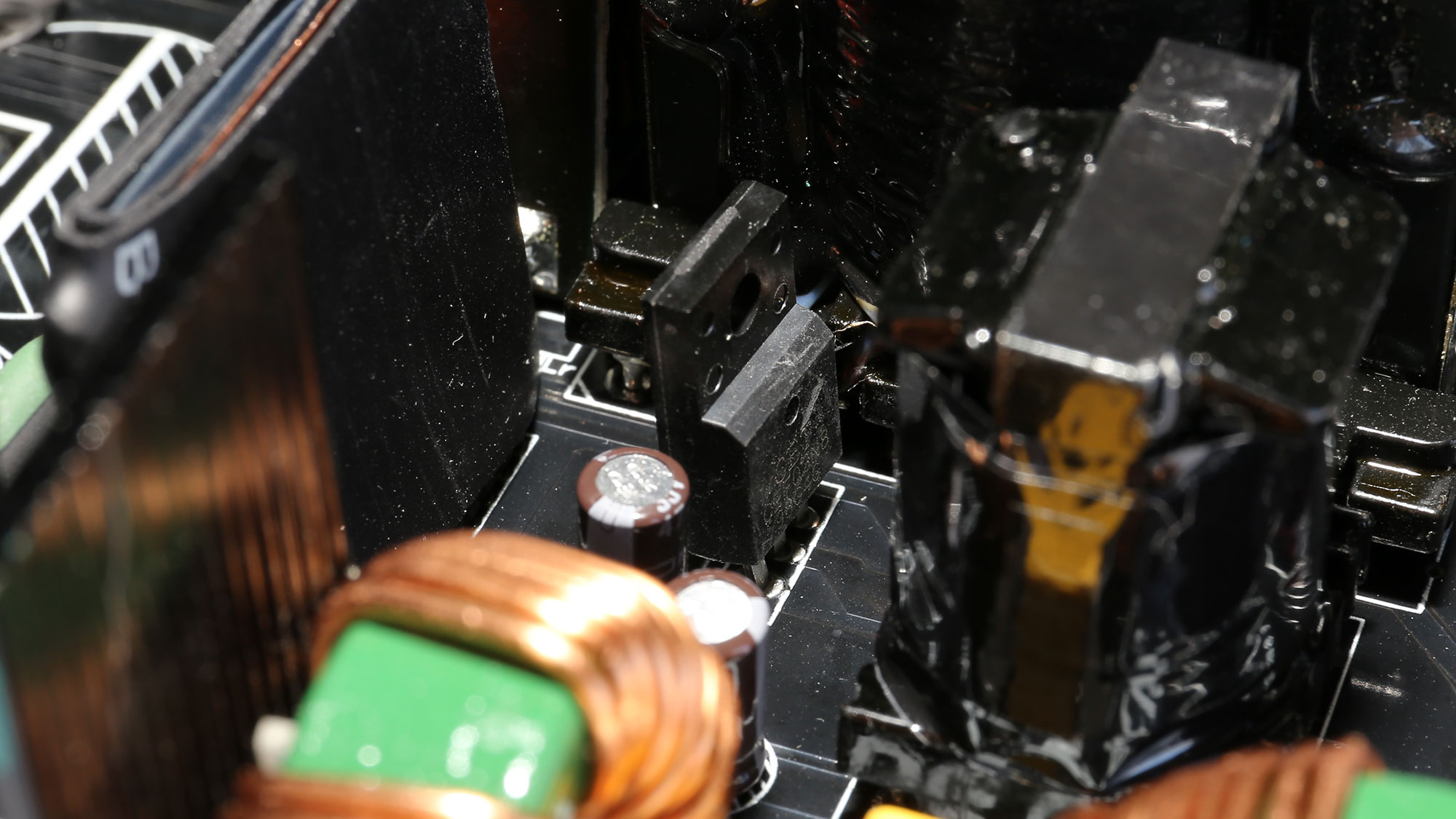
5VSB Circuit
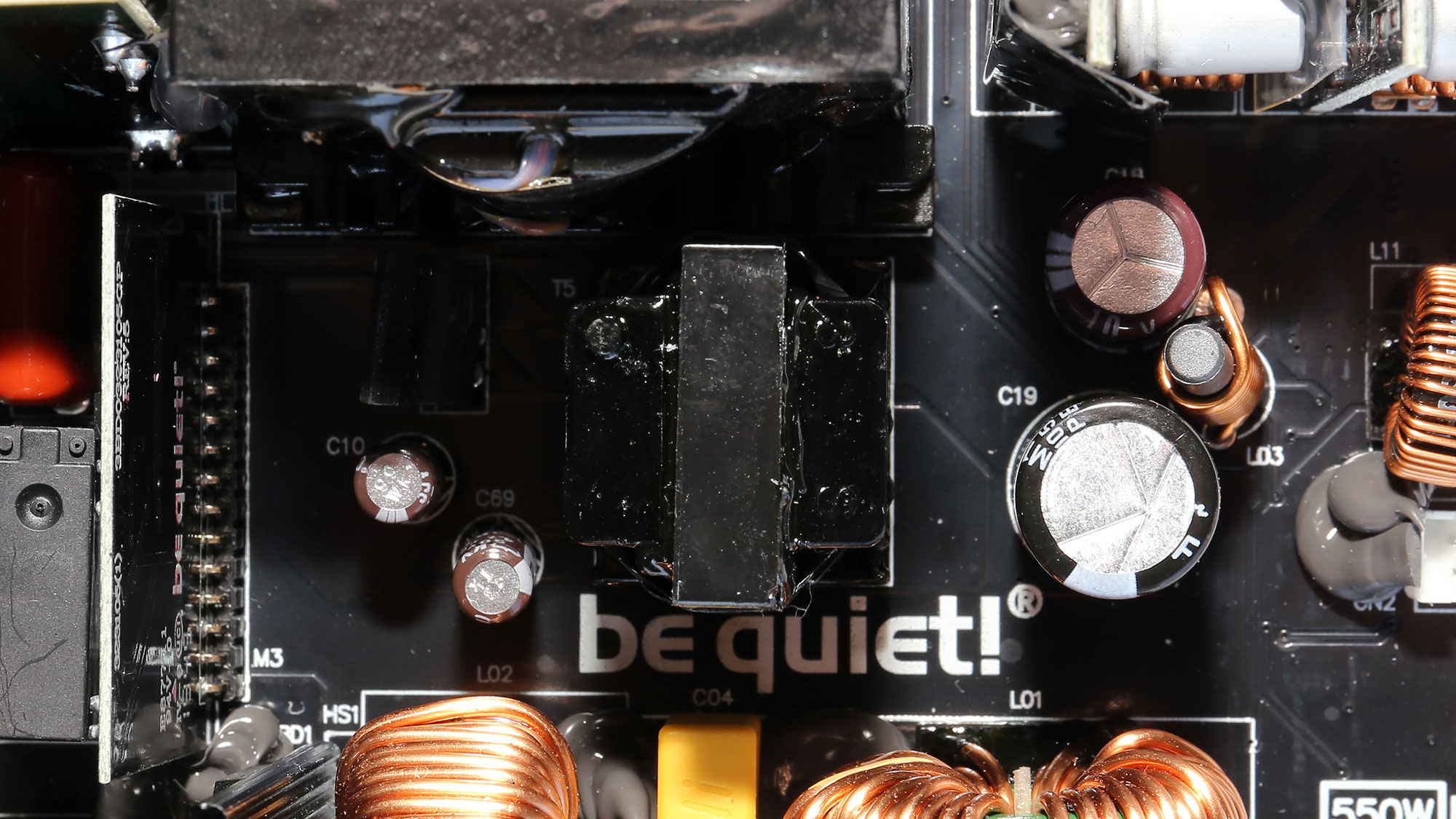
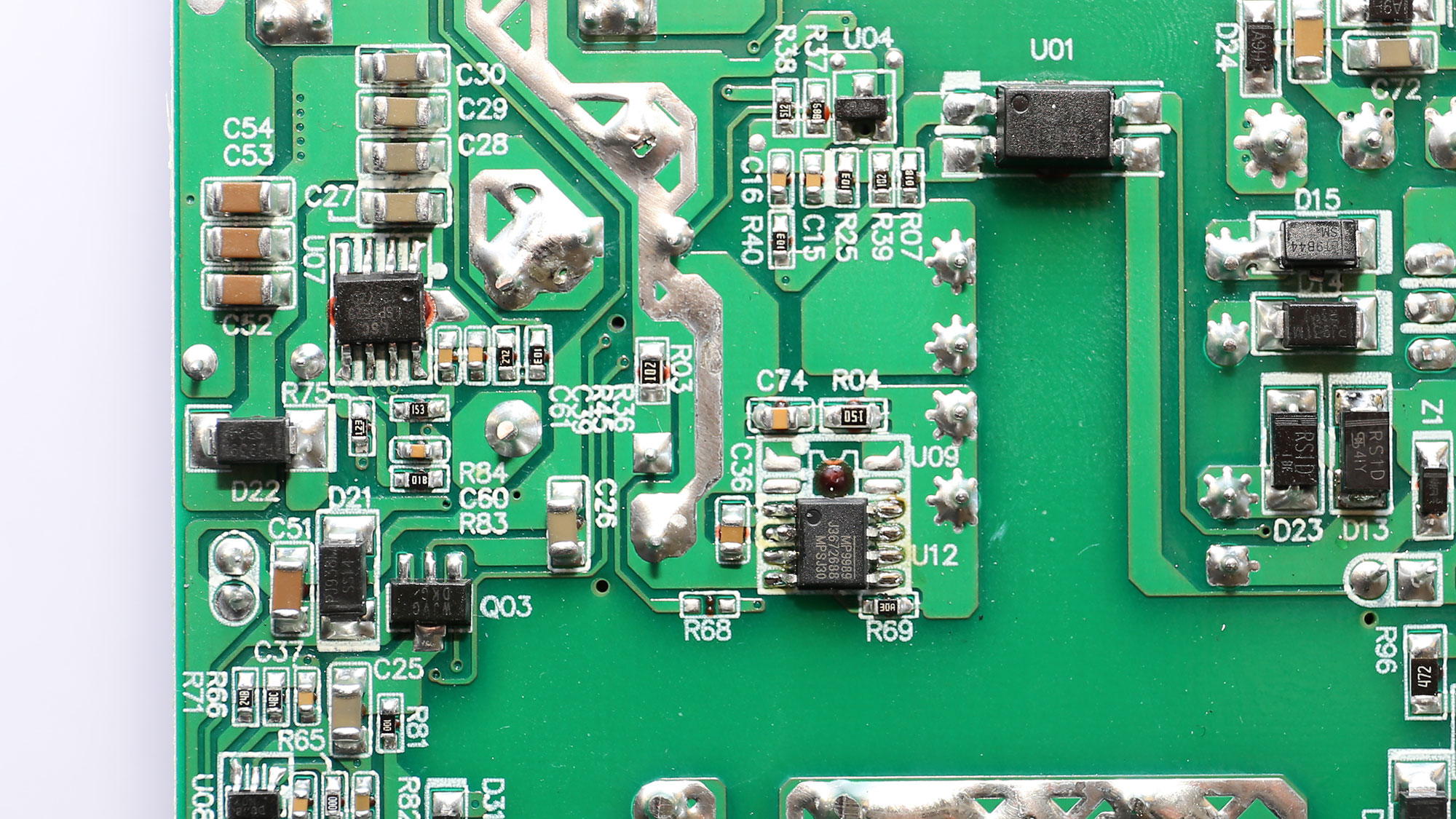
The primary rectifiers in the 5VSB circuit is a CET CEF03N8 FET, and the standby PWM controller is a Leadtrend LD7750R IC.
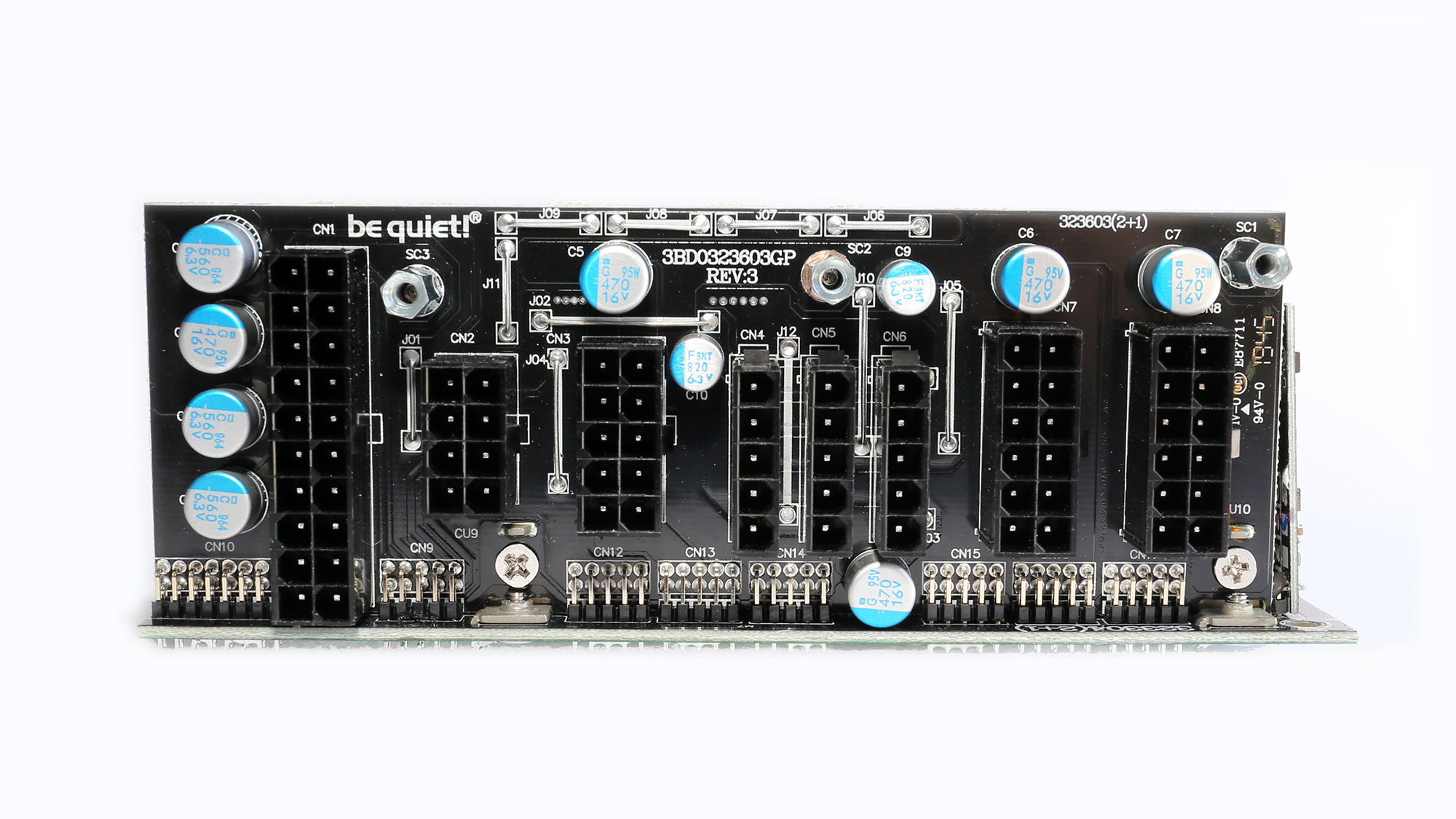
Modular board front
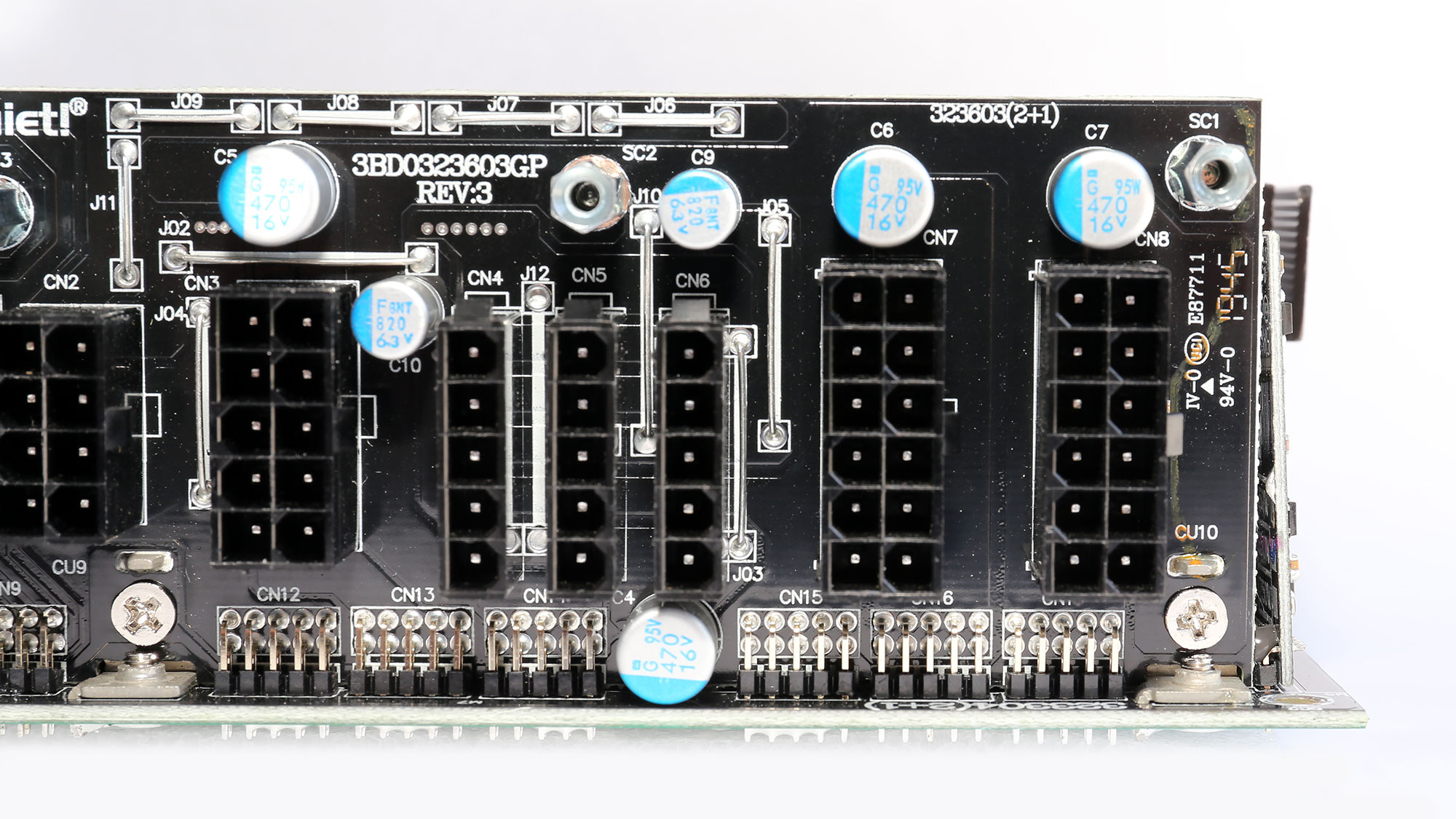
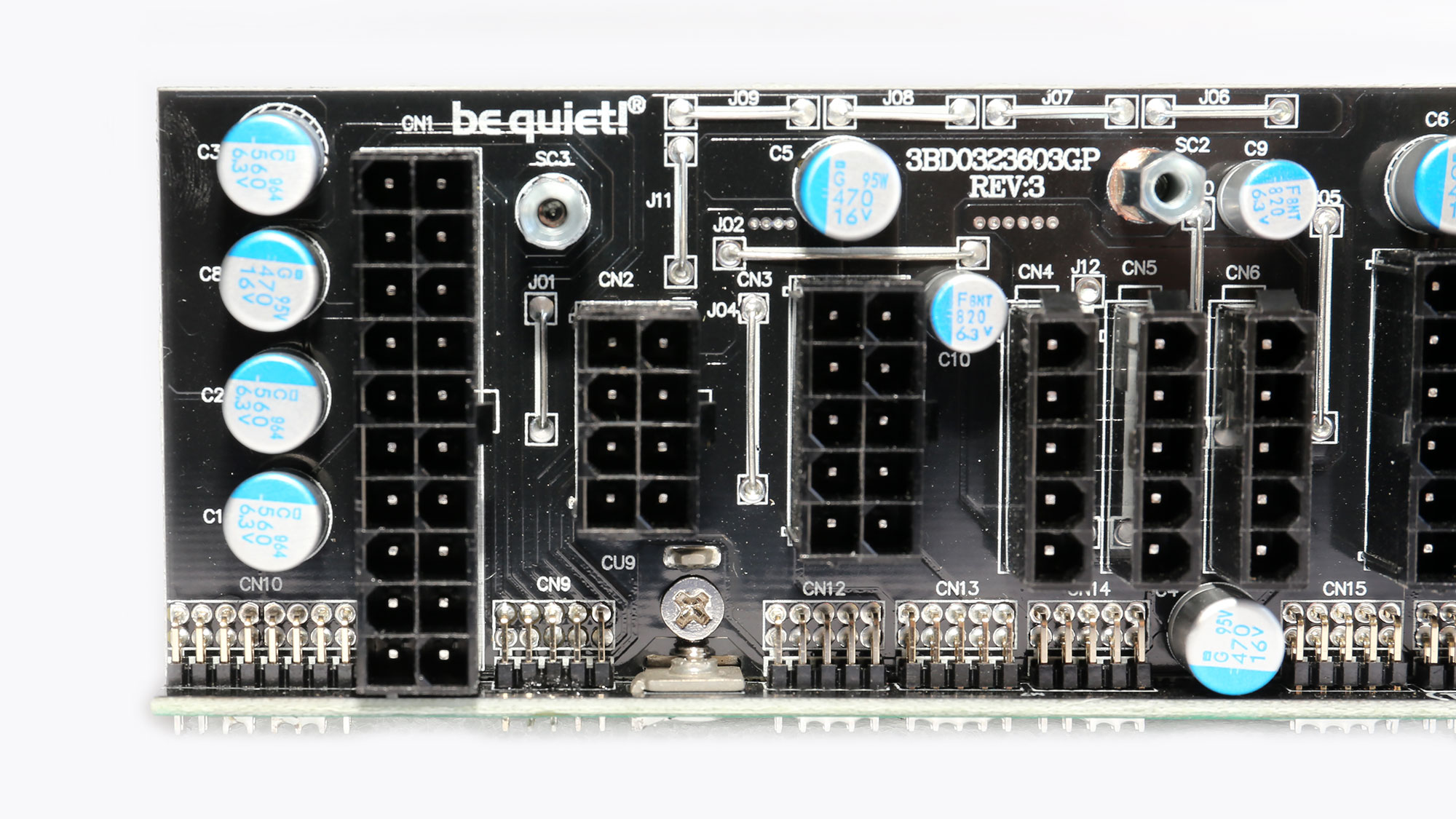
Ten polymer caps are on the face of the modular panel, for an extra ripple filter layer.
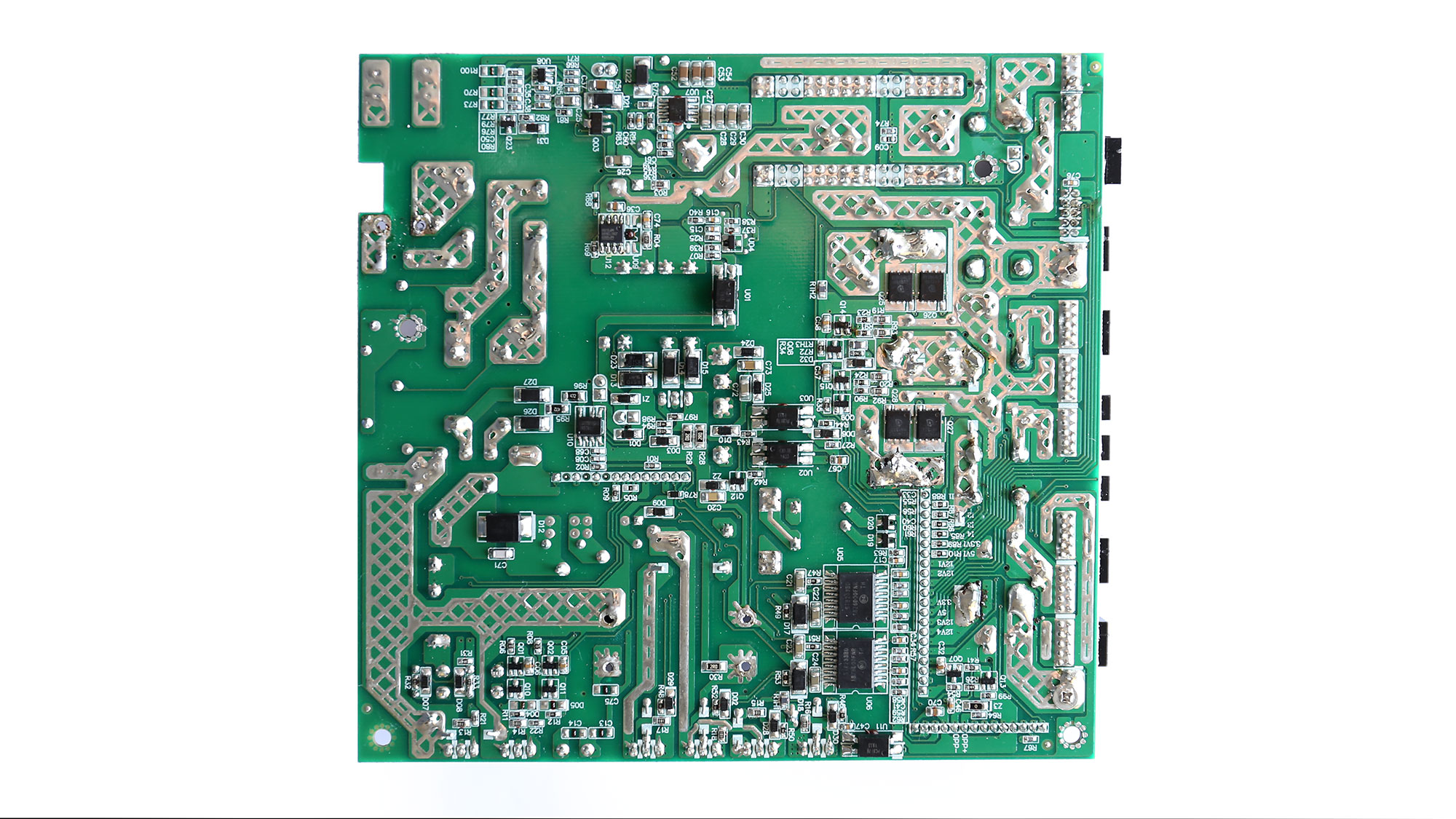
Soldering quality
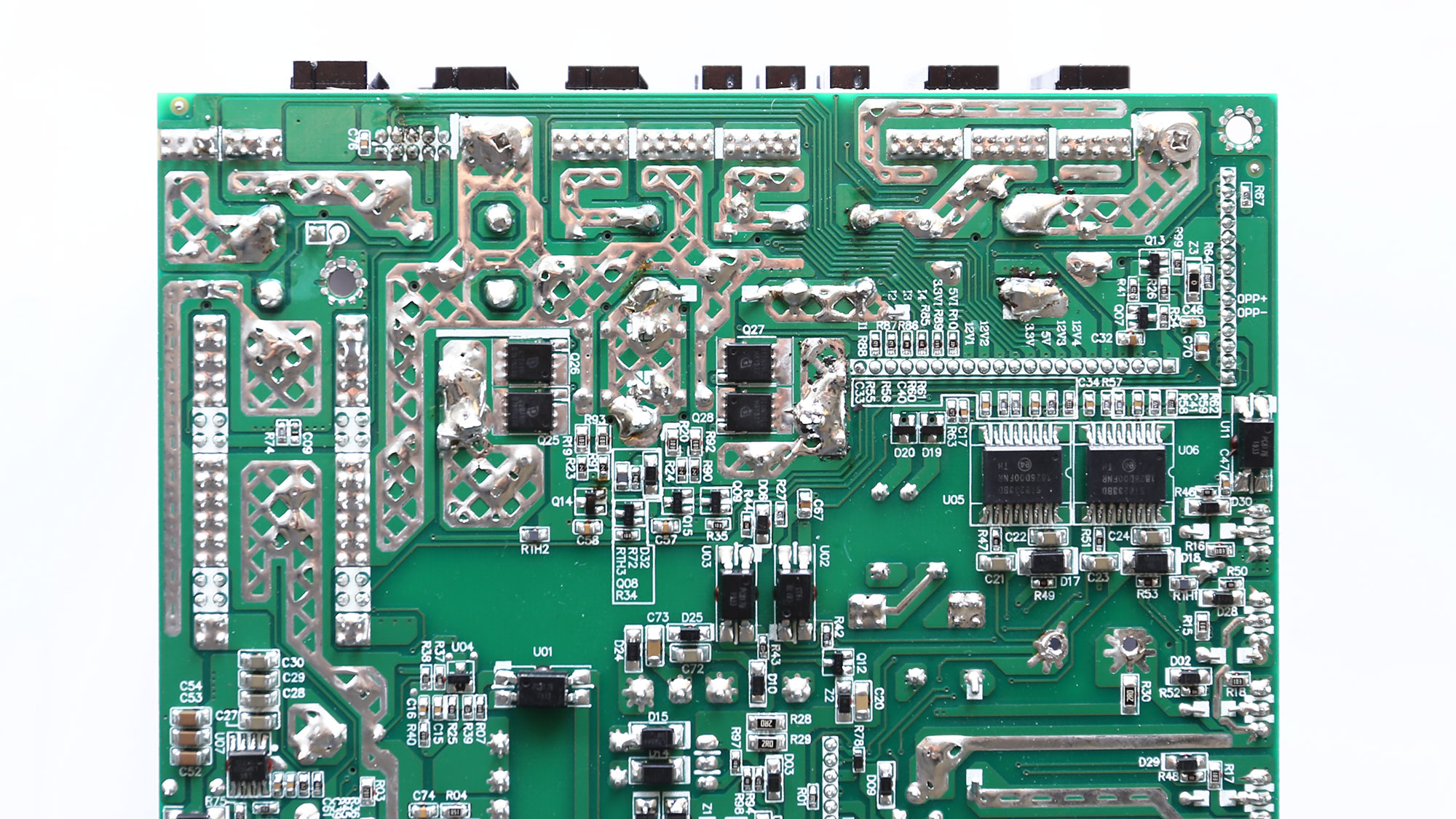
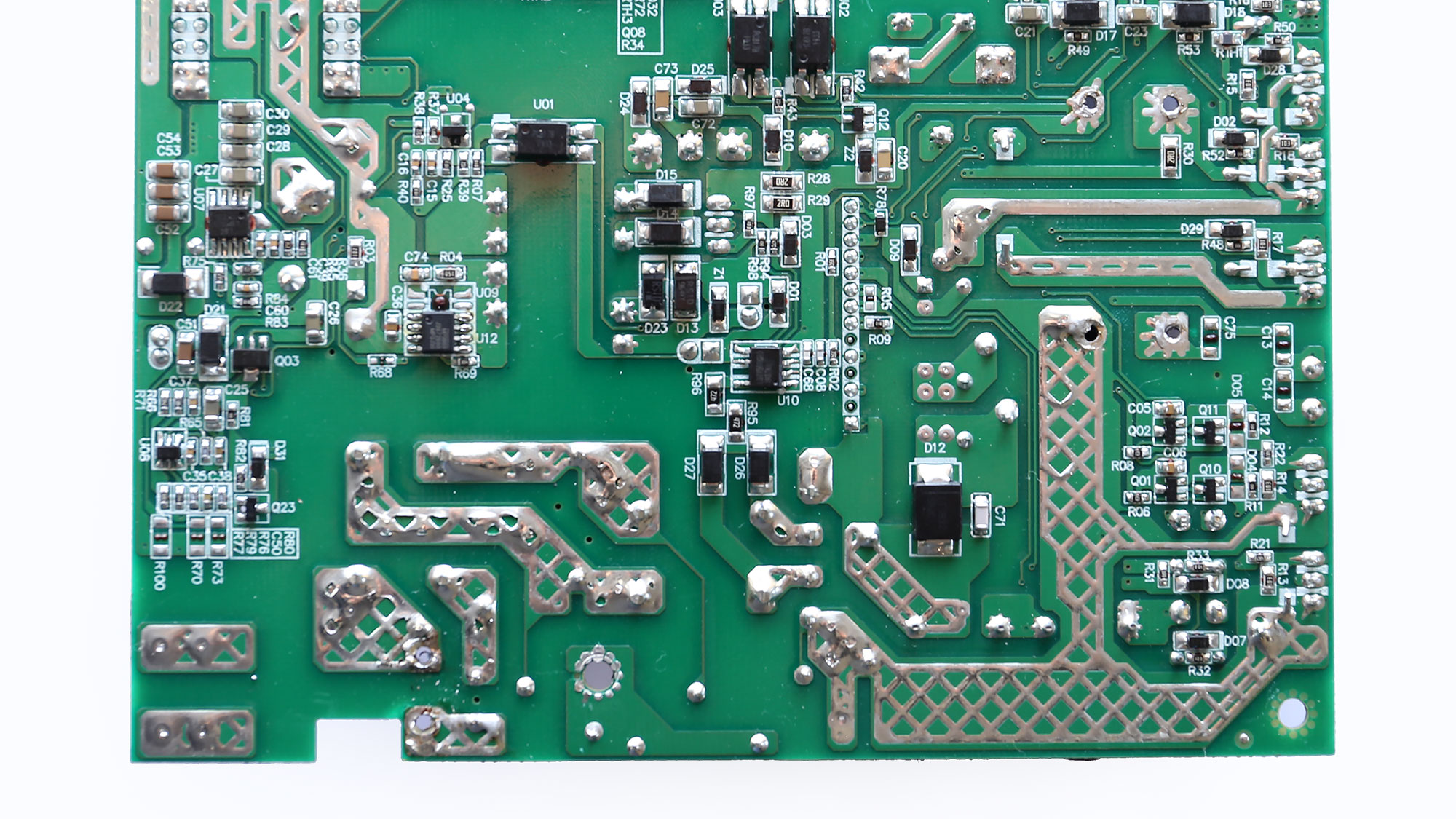
The soldering quality is mediocre. In several areas the soldering joints are sloppy.
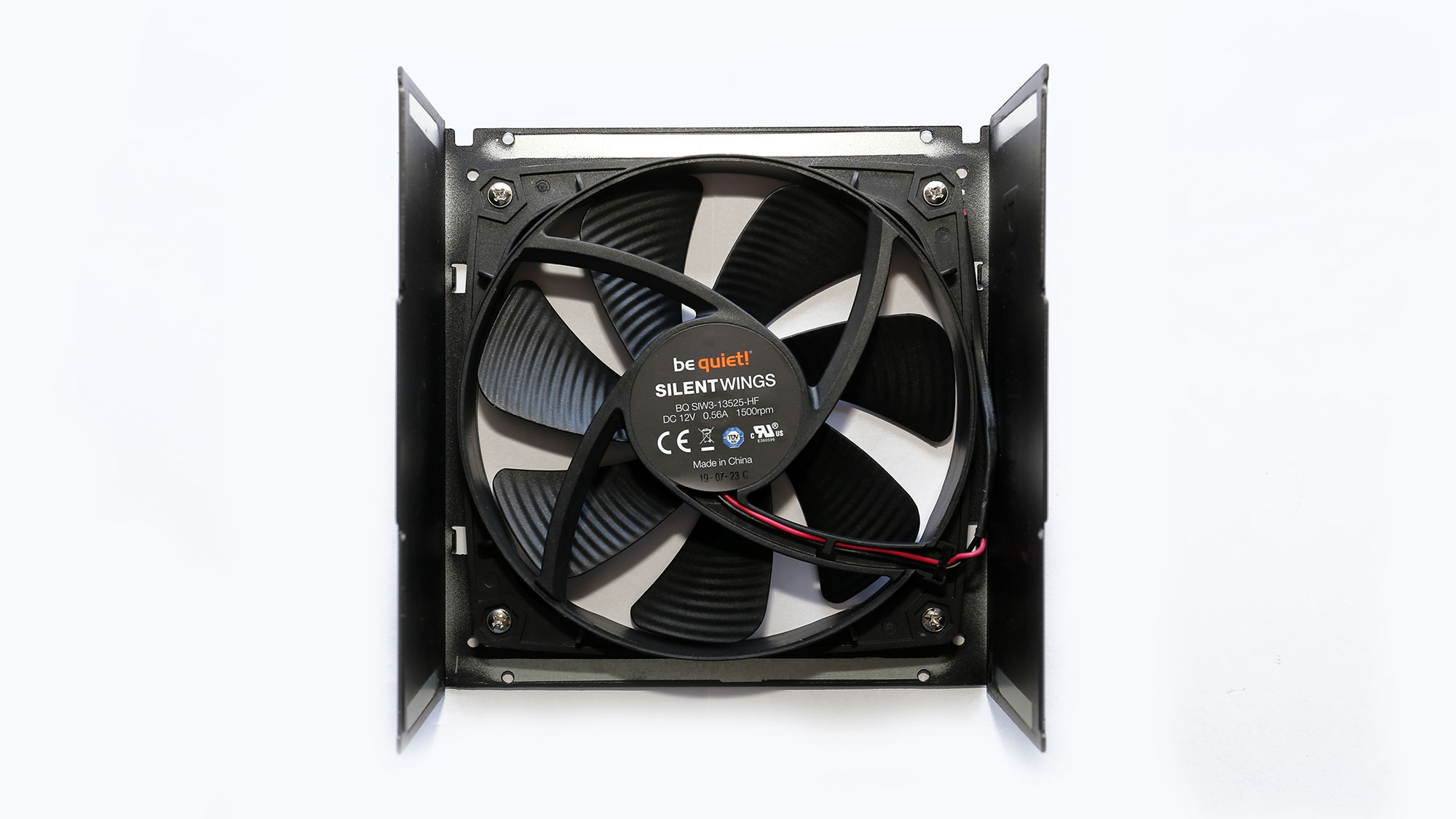
Cooling fan
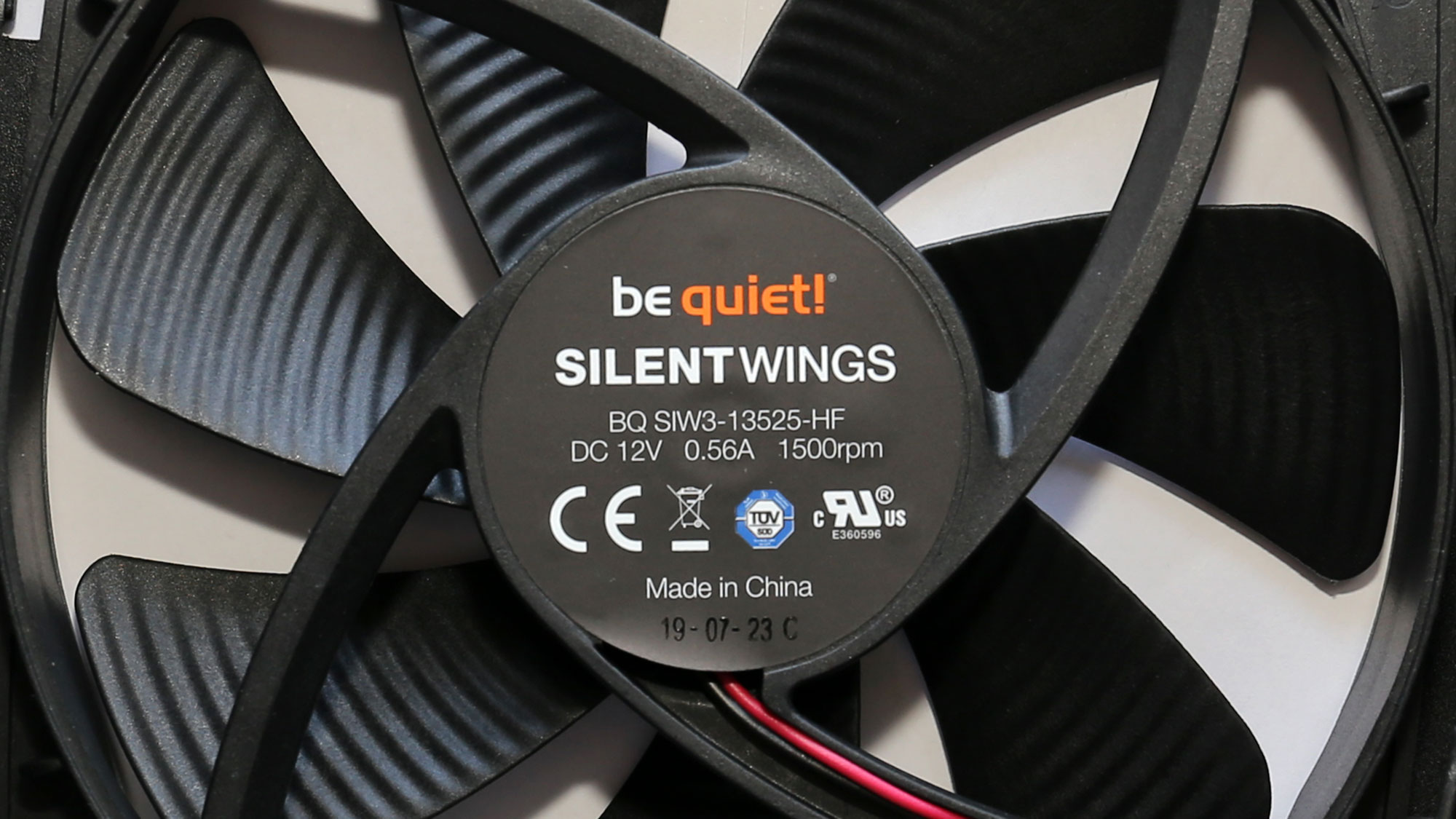
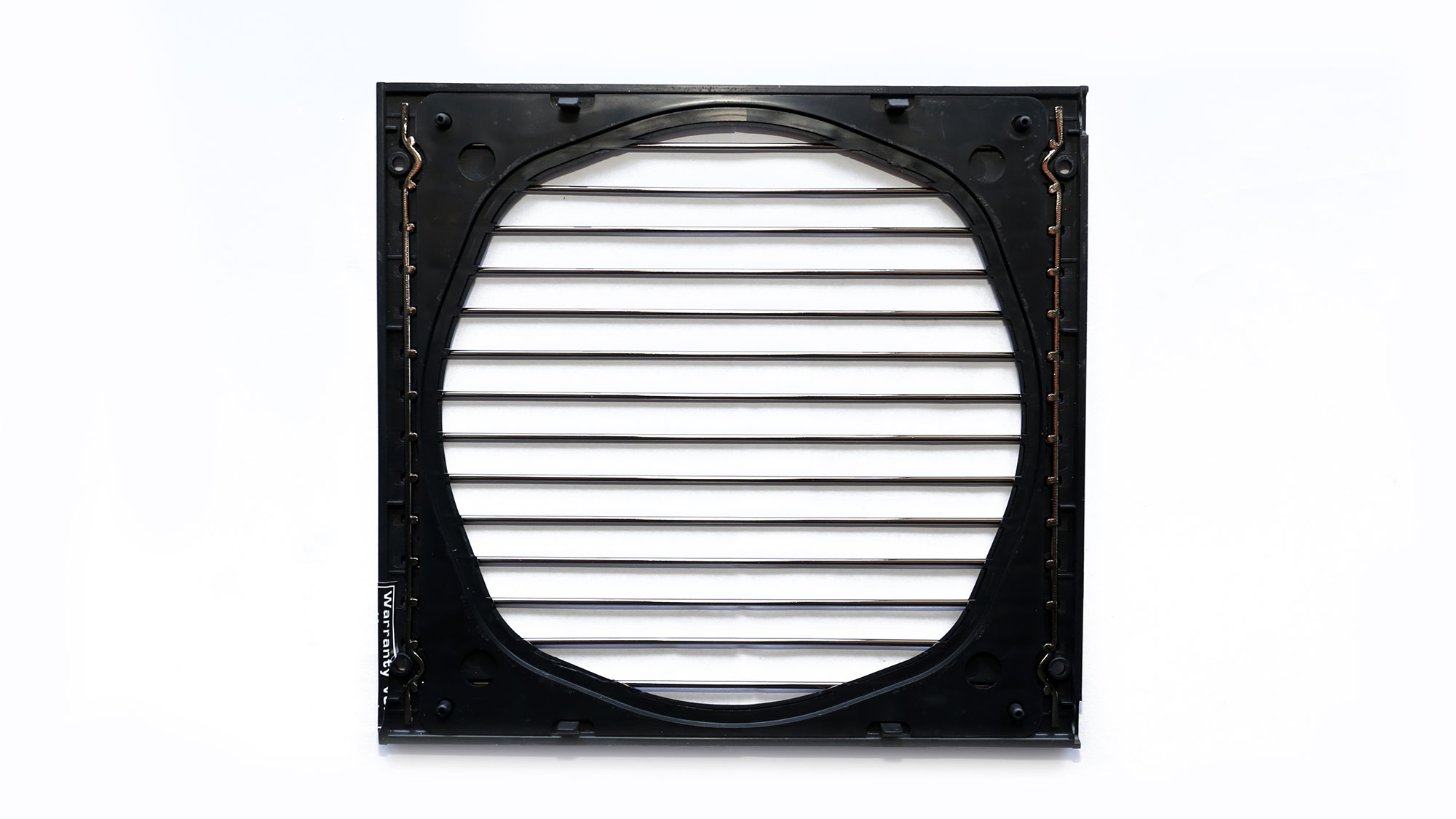
The Silent Wings 3 fan that this PSU uses is of top-notch quality. It uses a fluid dynamic bearing, so besides being silent, it will also have an increased lifetime, as long as you don't expose it to high operating temperatures.
Current page: Specifications and Part Analysis
Next Page Load Regulation, Hold-Up Time, Inrush Current, Efficiency and Noise
Aris Mpitziopoulos is a contributing editor at Tom's Hardware, covering PSUs.
-
emgarf Please consider providing sequencing and transient graphs for power-down as well as power-up. They are equally important.Reply
